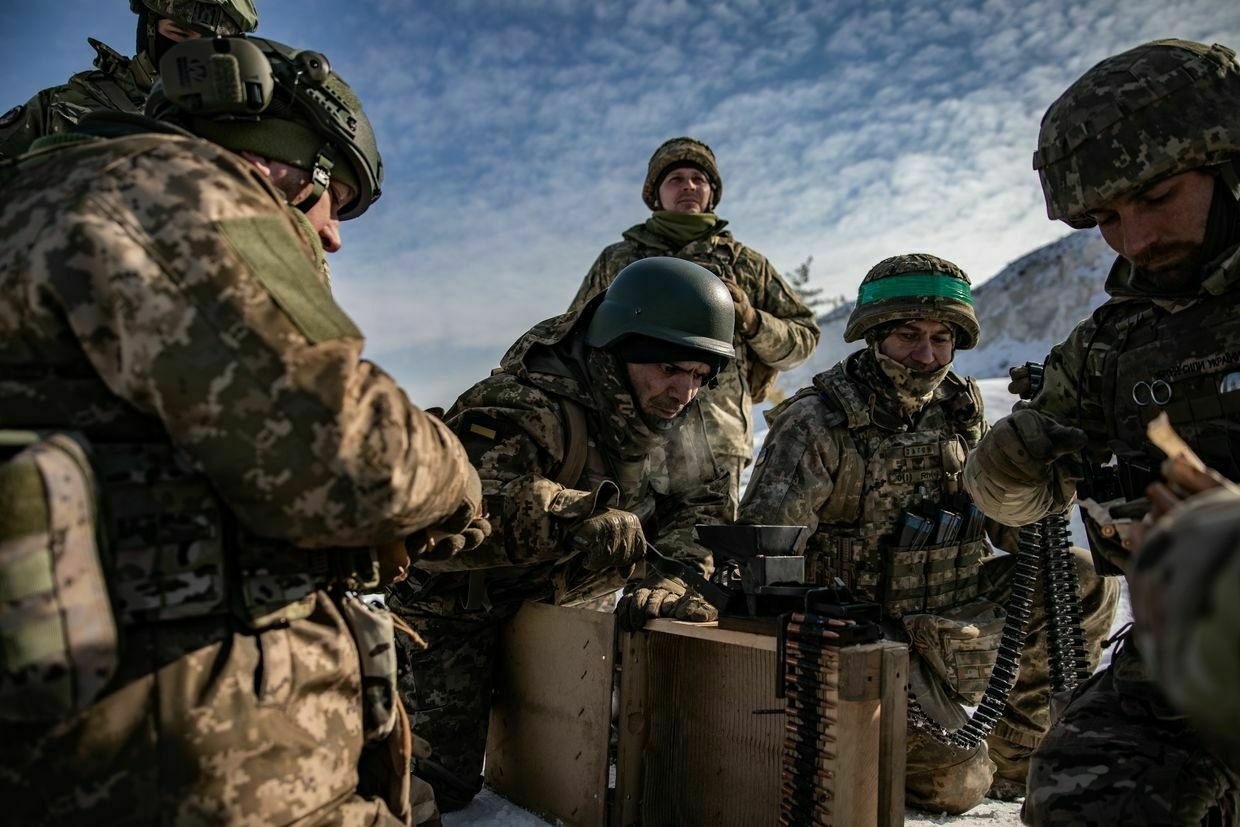-
Casualties reported following explosion at police station in Odesa Oblast
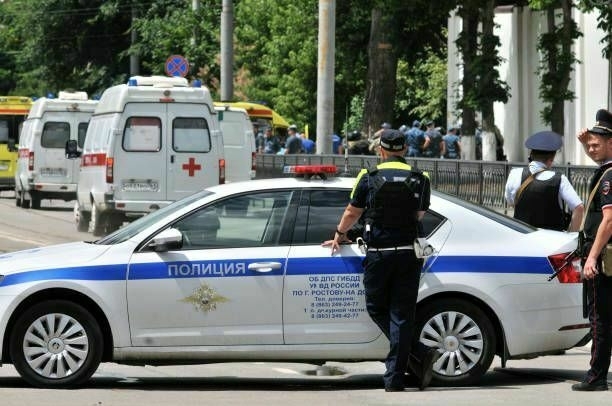
Editor’s note: This is a developing story and is being updated.
An explosion occurred at a police station in Odesa Oblast on March 23, reported regional police officials.
A woman has died as a result of the explosion and there are additional casualties, police officials added.
According to a source that spoke to local Odesa publication Dumska, an unknown individual allegedly brought a package with an improvised explosive device to the police department in the city of Bilyaivka.
The Kyiv Independent cannot verify the reported claims. Additional details are still being confirmed and will be released as they become available.
Police and security forces are working at the scene.
While the cause of the explosion is yet to be formally established, Odesa Oblast has been subject to repeated Russian attacks in recent days.
On March 21, a massive Russian drone attack on Odesa Oblast injured three people, including children, and damaged civilian infrastructure.
The day prior, Russia hit Odesa with drones while Czech President Petr Pavel was visiting the city.
Odesa Oblast is situated in southwestern Ukraine, along the Black Sea, and has been a frequent target of Russian drone and missile attacks throughout the full-scale war.
Trump says efforts to end Ukraine war ‘somewhat under control’ just hours before deadly Russian drone strike on Kyiv“I don’t think there’s anybody in the world that’s going to stop (Putin) except me,” Trump said shortly before three people were killed in Kyiv by Russian drones.The Kyiv IndependentThe Kyiv Independent news desk
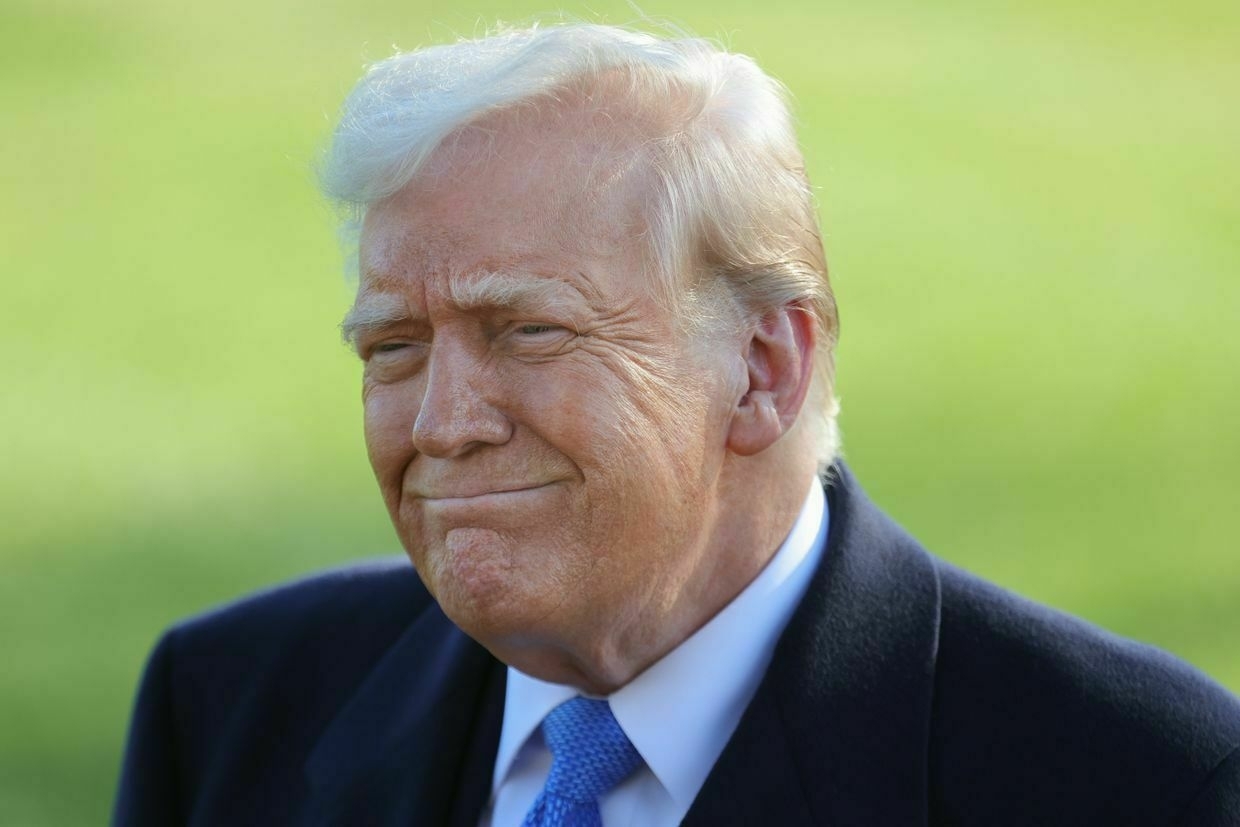
-
Witkoff trashes Starmer's Ukraine peacekeeping plan
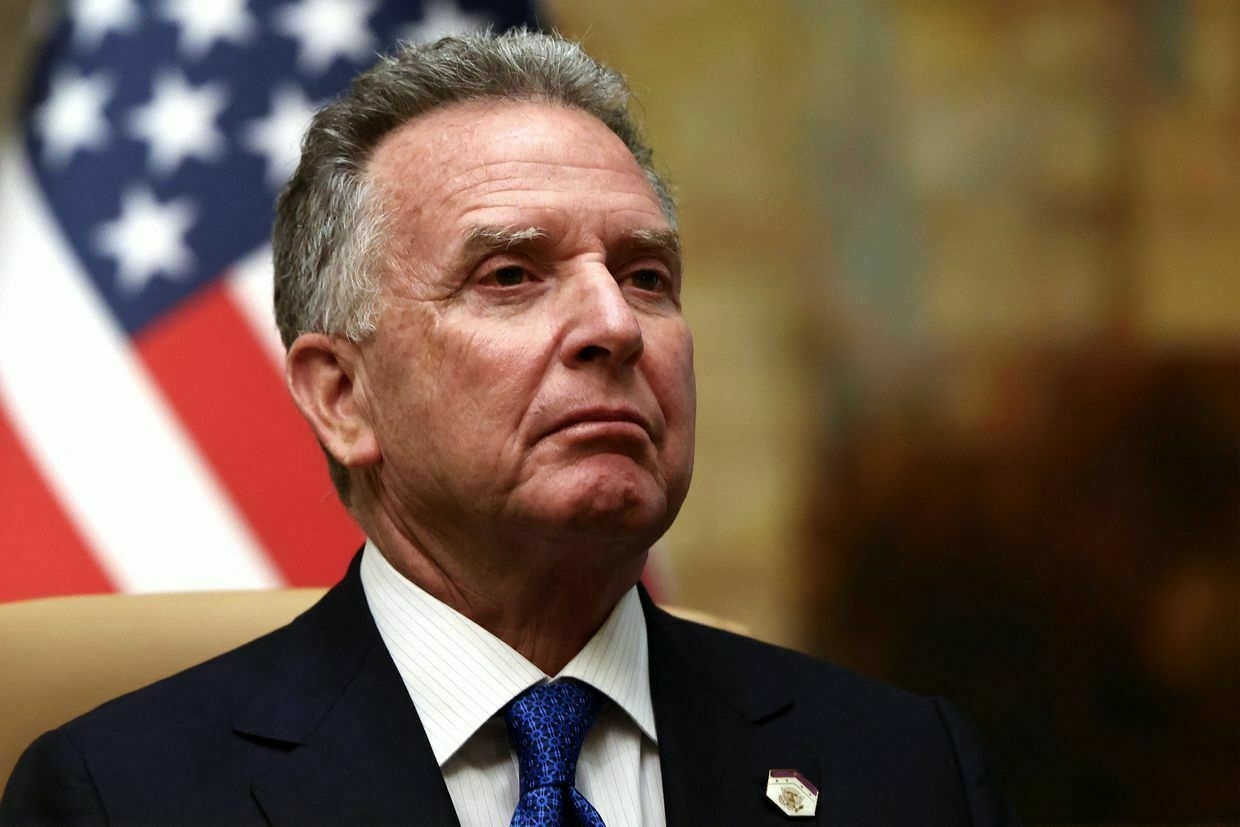
U.S. special envoy, Steve Witkoff, has rubbished British Prime Minister Keir Starmer’s plan for a special coalition force to support a ceasefire in Ukraine.
Speaking with American far-right political commentator Tucker Carlson on March 21, Witkoff called Starmer’s plan “simplistic” and a “posture and a pose.” He said he does not believe that Russia wants to further invade Europe or even absorb all of Ukraine.
“There is this sort of notion that we have all got to be like Winston Churchill. Russians are going to march across Europe. That is preposterous by the way,” he told Carlson.
Starmer has called for countries to join a “coalition of the willing” that will include “planes in the air and boots on the ground” in an effort to secure a successful ceasefire in Ukraine. He stressed that the coalition would need “strong U.S. backing” to succeed.
Over 30 countries have expressed willingness to contribute to the coalition’s peacekeeping force, Starmer’s spokesperson said on March 17, confirming that the initiative has moved into an “operational phase."
Witkoff, who is officially special envoy to the Middle East, has recently emerged as a leading figure in negotiations regarding Russia and Ukraine and met with Russian President Vladimir Putin earlier this month.
In the interview with Carlson, he applauded U.S. President Donald Trump’s efforts to negotiate with Russia, saying that he is optimistic about “bringing the two sides together.”He also praised Putin as being gracious, adding that he doesn’t regard the Russian leader and war criminal as a “bad guy."
Witkoff went on to echo Russian propaganda narratives around referendums in the occupied regions in Ukraine, claiming that people there want to be under Russian rule. He left out that the referendums were a sham and carried out at gunpoint while also forgetting the names of the partially occupied Kherson and Zaporizhzhia oblasts.
He later told Fox News that he is not taking any sides but that there is a belief in Russia that the occupied territories are now considered Russian.
Witkoff repeatedly cheered on Trump’s 30-day temporary ceasefire agreement. Both Moscow and Kyiv agreed to stop targeting energy infrastructure for a month, although it has been repeatedly violated and dozens of Ukrainian civilians have been killed in Russian attacks over the last few days.
He said that the purpose of the 30-day ceasefire was to give time to negotiate a full ceasefire. U.S. representatives will meet with Ukrainian officials in Saudi Arabia on the evening of March 23 and then with Russian officials on March 24 to discuss the ceasefire.
The U.K. will host three days of military planning sessions this week to prepare high-level plans for mobilizing the coalition.Trump says efforts to end Ukraine war ‘somewhat under control’ just hours before deadly Russian drone strike on Kyiv“I don’t think there’s anybody in the world that’s going to stop (Putin) except me,” Trump said shortly before three people were killed in Kyiv by Russian drones.The Kyiv IndependentThe Kyiv Independent news desk
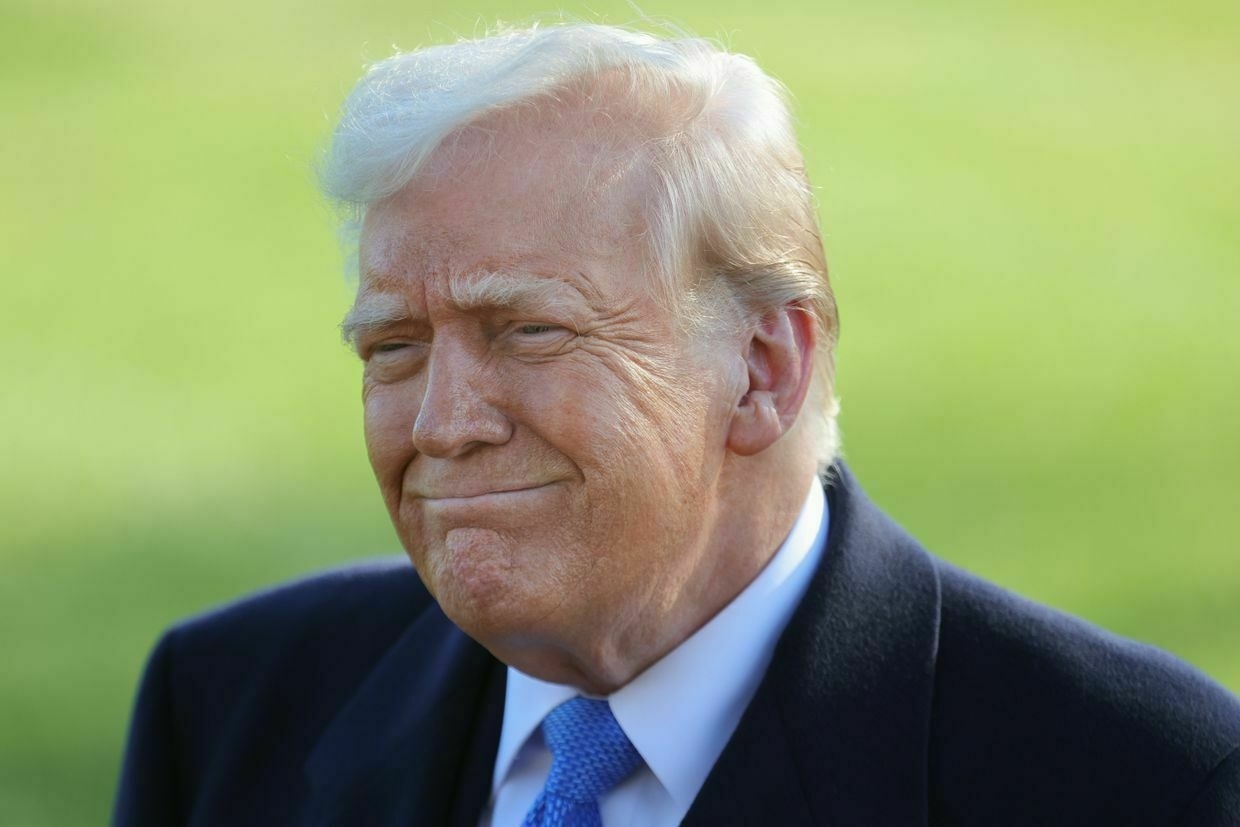
-
Ukrainian Air Force strike 'completely destroys' Russian troop position in Toretsk
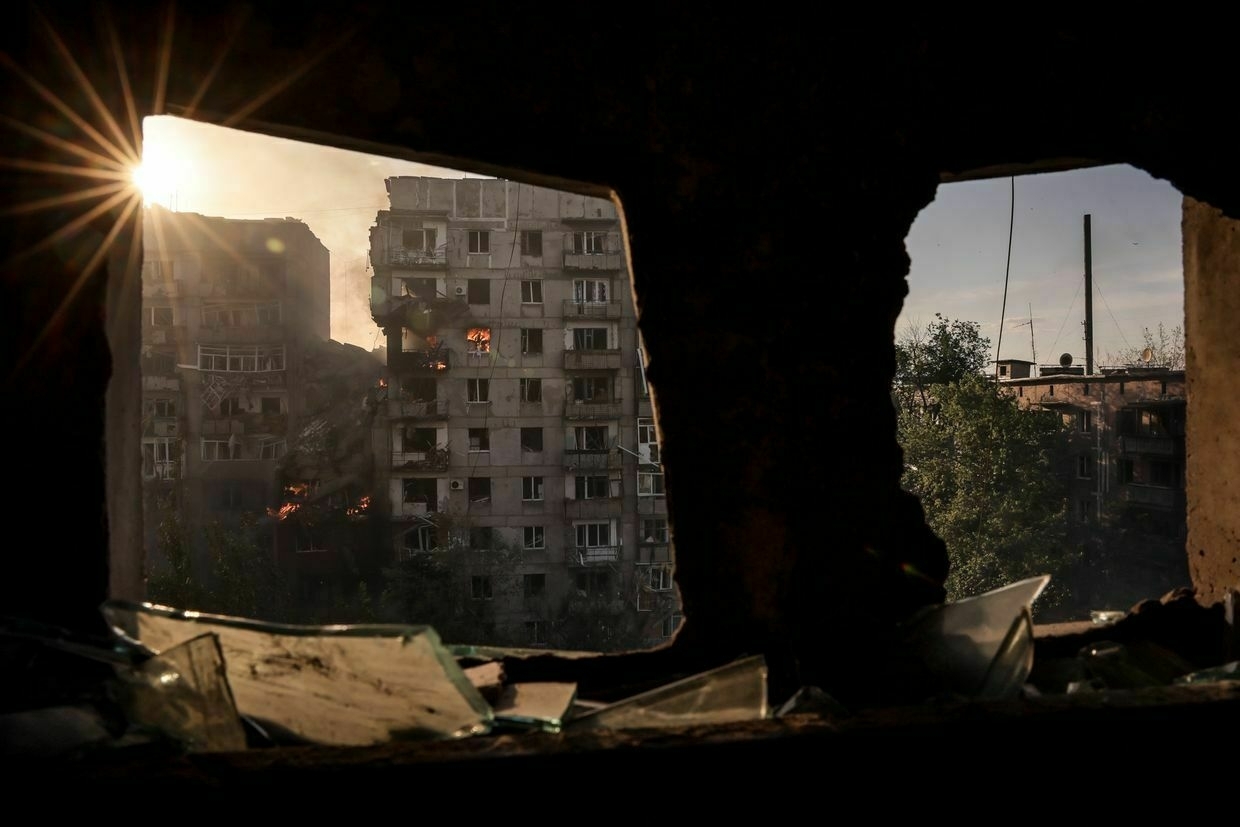
Ukraine’s Air Force struck and destroyed a concentration of Russian troops in Toretsk, Donetsk Oblast on March 21, the Armed Forces General Staff reported on March 23.
Ukraine’s attack reportedly “completely destroyed” the position of the troops from the 1st Separate Guards Motorized Rifle Brigade of the 103rd Motorized Rifle Regiment who were hiding in their shelter in the city of Toretsk.Among the casualties were airborne assault groups and drone operators, the General Staff claimed.
“Exact numbers are still being clarified, but the destruction of their shelter and personnel greatly diminishes the ability of the Russian military to operate effectively in the Toretsk axis,” the General Staff wrote in a Telegram message which was accompanied by a video of the strike.0:00/A video of the strike on a concentration of Russian troops in Toretsk, Donetsk Oblast on March 21 (General Staff) Toretsk, which lies roughly 20 kilometers southwest of Bakhmut, has seen fierce fighting in recent months and Ukraine launched a counterattack in late February and early March. The city is largely occupied by Russian troops.
President Volodymyr Zelensky visited the nearby city of Pokrovsk on March 22, where he previously said the situation had recently stabilized amid hotly contested battles. He warned that Russia is attempting renewed offensives in various parts of the front line, including in Kharkiv Oblast.
On March 23, Ukraine’s Third Assault Brigade announced it had liberated the village of Nadiya in Luhansk Oblast.
The developments take place as Ukraine meets with U.S. officials in Saudi Arabia on March 23 to discuss a ceasefire proposal. The U.S. will also meet with Russian officials in Riyadh on March 24.Trump says efforts to end Ukraine war ‘somewhat under control’ just hours before deadly Russian drone strike on Kyiv“I don’t think there’s anybody in the world that’s going to stop (Putin) except me,” Trump said shortly before three people were killed in Kyiv by Russian drones.The Kyiv IndependentThe Kyiv Independent news desk
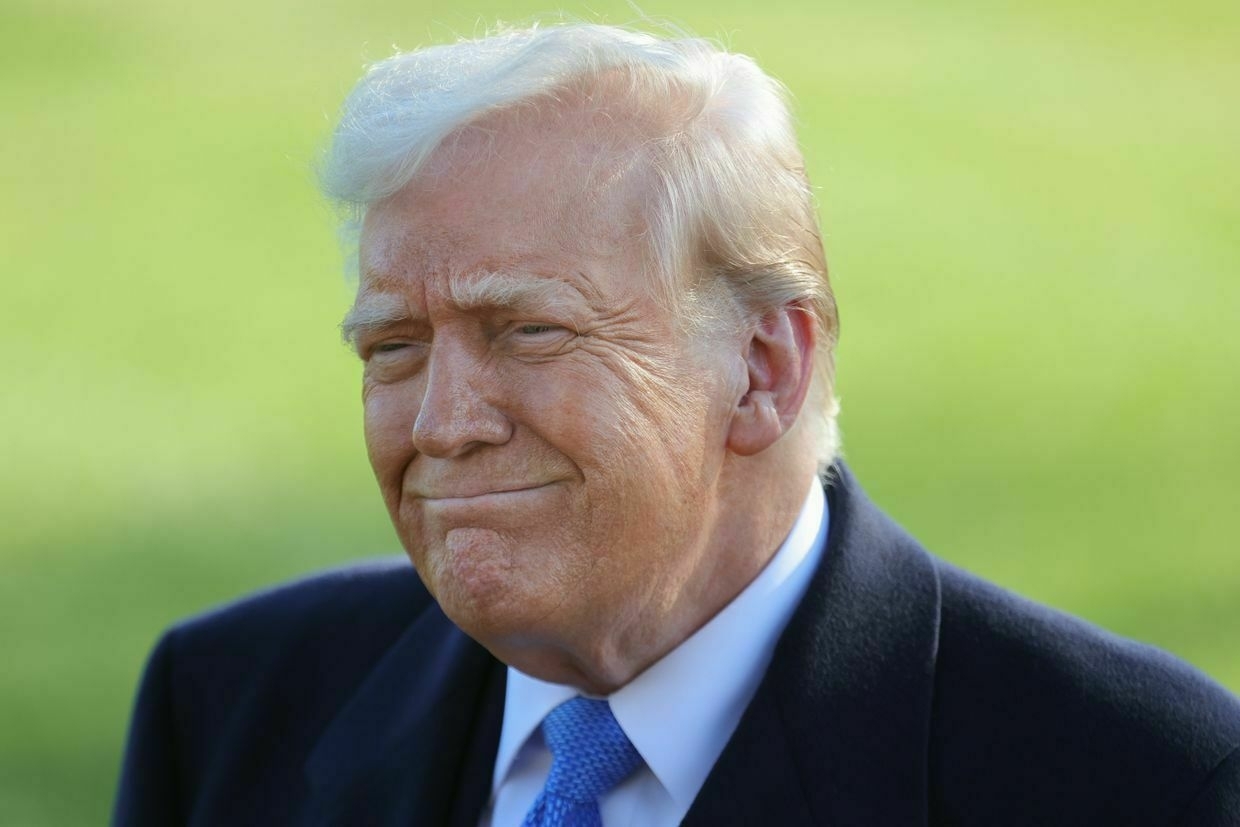
-
Ukraine's Third Assault Brigade liberates village of Nadiya in Luhansk Oblast, releases video of operation
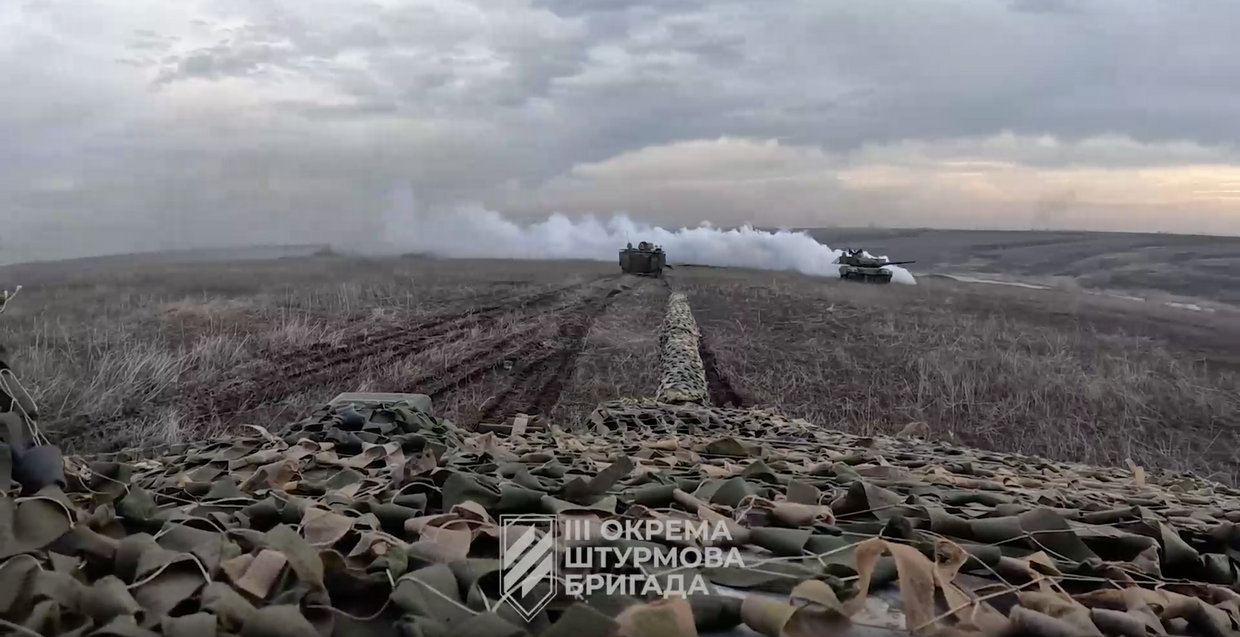
Ukrainian forces liberated the village of Nadiya in Luhansk Oblast, reclaiming three square kilometers from Russian occupation, the Third Assault Brigade reported on March 23.
The 30-hour operation was carried out by the Third Assault Brigade, in particular the 1st Assault Battalion.The brigade uploaded a graphic video from the operation — which can be watched here — showing armoured vehicles firing across an open field, and Ukrainian soldiers shooting in woods nearby derelict houses.
Several dead Russian soldiers are shown in the video, although the Brigade did not confirm the number of fatalities and casualties.
“The capture of Nadiya cost the enemy two months of effort and two wiped out mechanized regiments - the 752nd and 254th 20th Russian Army,” said Andriy Biletsky, commander of the Third Army Corps.
The village lies on the Western edge of Luhansk Oblast, around three kilometers from the border of Kharkiv Oblast. It was captured by Russia in March 2022, then liberated in Oct. 2022 before being occupied a second time.
Luhansk Oblast remains almost entirely occupied by Russian forces.
In the past day, there were 147 clashes along the front line, according to the Armed Forces General Staff.The day before, Ukraine’s Air Force successfully struck Russian troops in a shelter in Torestsk, Donetsk Oblast, killing a number of assault groups and drone operators.
Trump believes Ukraine war ceasefire could be agreed by Easter, Bloomberg reportsThe White House still believes it could achieve a truce by Easter, a symbolic date as both Western and Orthodox celebrations overlap this year, although it’s prepared for a delay given the current impasse, sources told Bloomberg.The Kyiv IndependentThe Kyiv Independent news desk
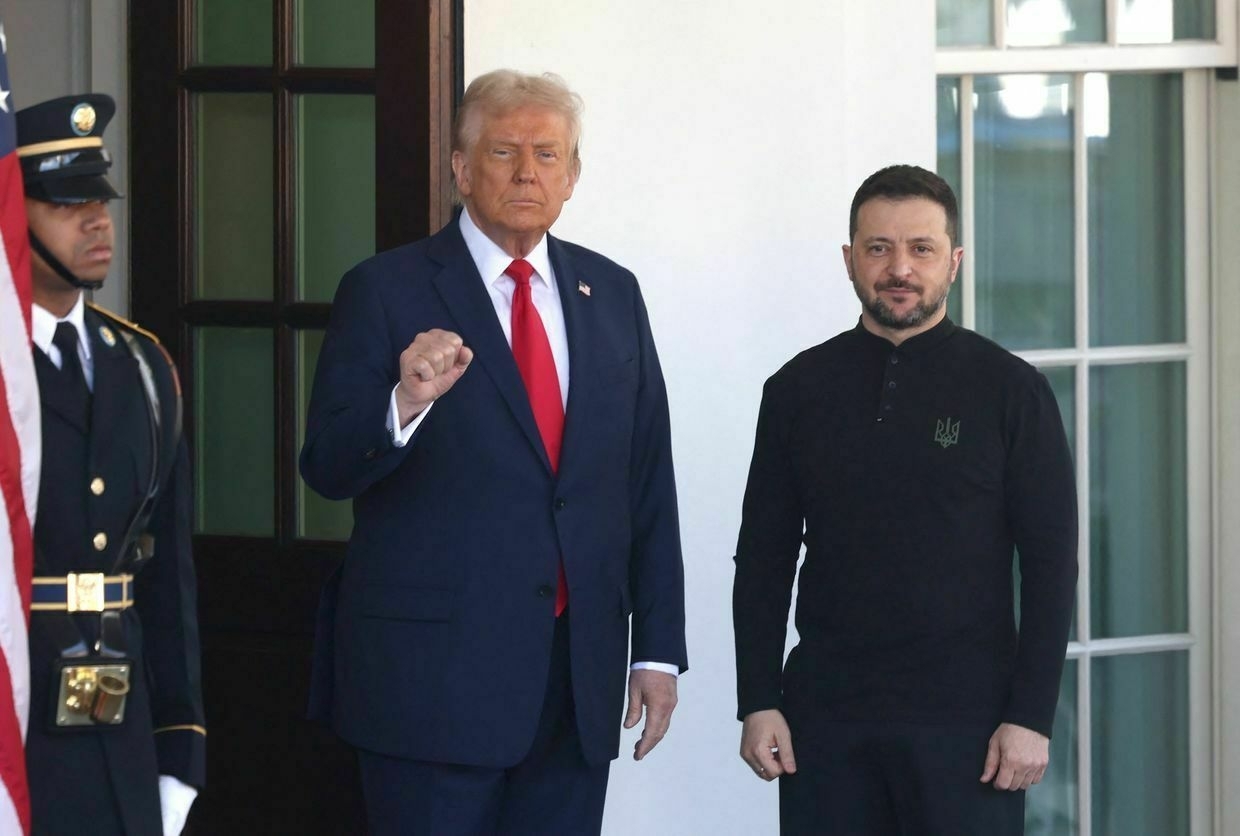
-
Trump believes Ukraine war ceasefire could be agreed by Easter, Bloomberg reports
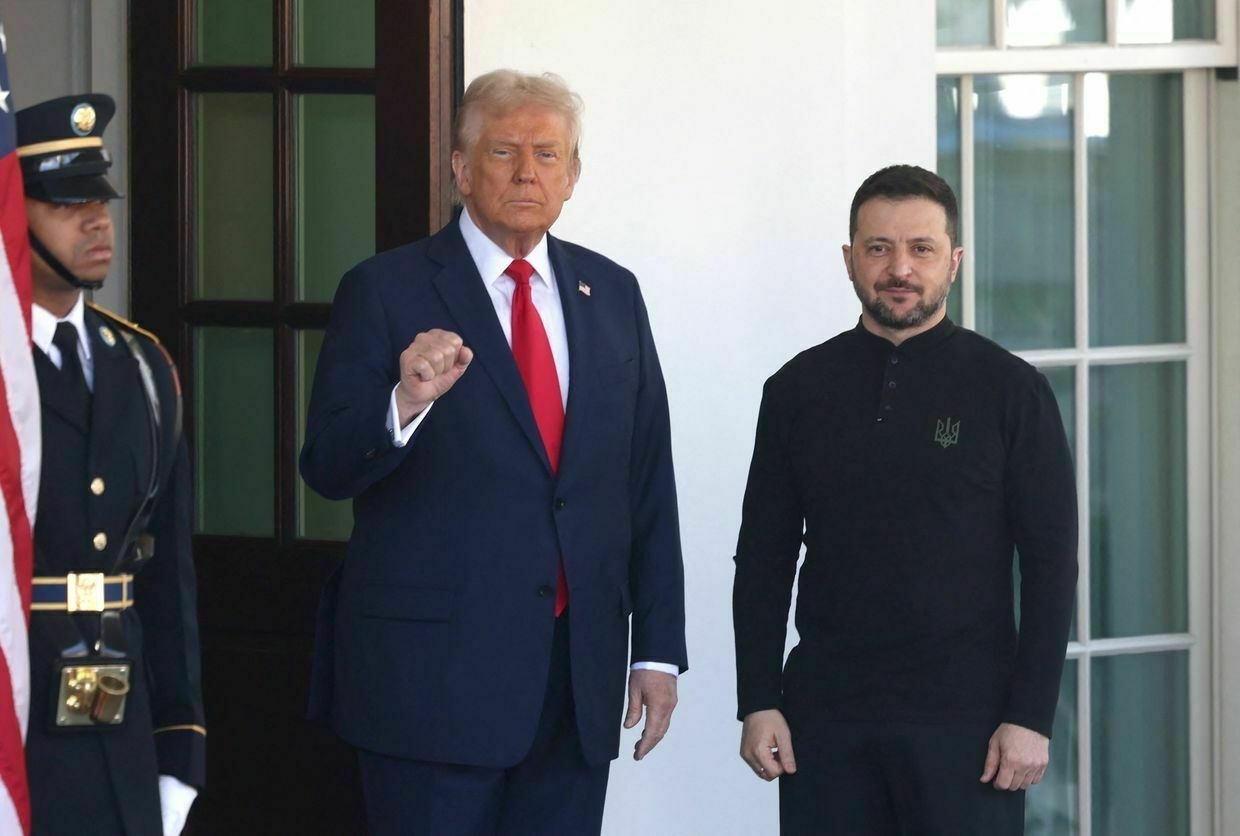
Washington is hopeful for a ceasefire by April 20, despite Russia’s ongoing attacks on Ukraine, Bloomberg reported on March 23, citing anonymous sources familiar with the matter.
U.S. President Donald Trump has pushed for a quick end to the war since taking office in January, but so far there has been very little progress.The White House still believes it could achieve a truce by Easter, a symbolic date as both Western and Orthodox celebrations overlap this year, although it’s prepared for a delay given the current impasse, sources told Bloomberg.
So far, the Trump administration has only been able to orchestrate a temporary 30-day ceasefire between Kyiv and Moscow on energy infrastructure.While Washington celebrated the agreement on March 18, Russia and Ukraine continue to exchange drone strikes, with dozens of Ukrainian civilians killed over the last week.
When asked about the continued attacks on March 21, Trump told reporters: “I believe we’re going to pretty soon have a full ceasefire.”
The latest Russian strike on March 23, killed at least three people in Kyiv, including a five-year-old girl and her father. At least 10 other people were injured.
On March 22 ust hours before the attack on Kyiv, Trump told sports media outlet OutKick that efforts to end the war in Ukraine are “somewhat under control,” and that he’s had “some very rational discussions” with Russian President Vladimir Putin.
U.S. negotiators are set to separately meet Ukrainian and Russian delegates in Riyadh on March 24 to discuss the partial ceasefire proposal.Until now, the Trump team has only held bilateral talks with each side separately, including meetings with Russia in Riyadh on Feb. 18 and Istanbul on Feb. 27, and with Ukraine in Jeddah on March 11.
Neither Moscow nor Kyiv have said they will accept each other’s demands, including Russia’s call to end arms deliveries to Ukraine. Ukrainian officials have expressed skepticism about any substantial results from the Saudi Arabia talks.‘They are Russian-speaking, and there have been referendums,’ — Witkoff parrots Russian propaganda, legitimizing Putin’s claims in UkraineU.S. special envoy to the Middle East, Steve Witkoff, who recently emerged as a leading figure in negotiations regarding Russia and Ukraine, revealed insights into ongoing ceasefire talks between Moscow and Washington. In an interview on March 21 with American far-right political commentator Tucker…The Kyiv IndependentNatalia Yermak
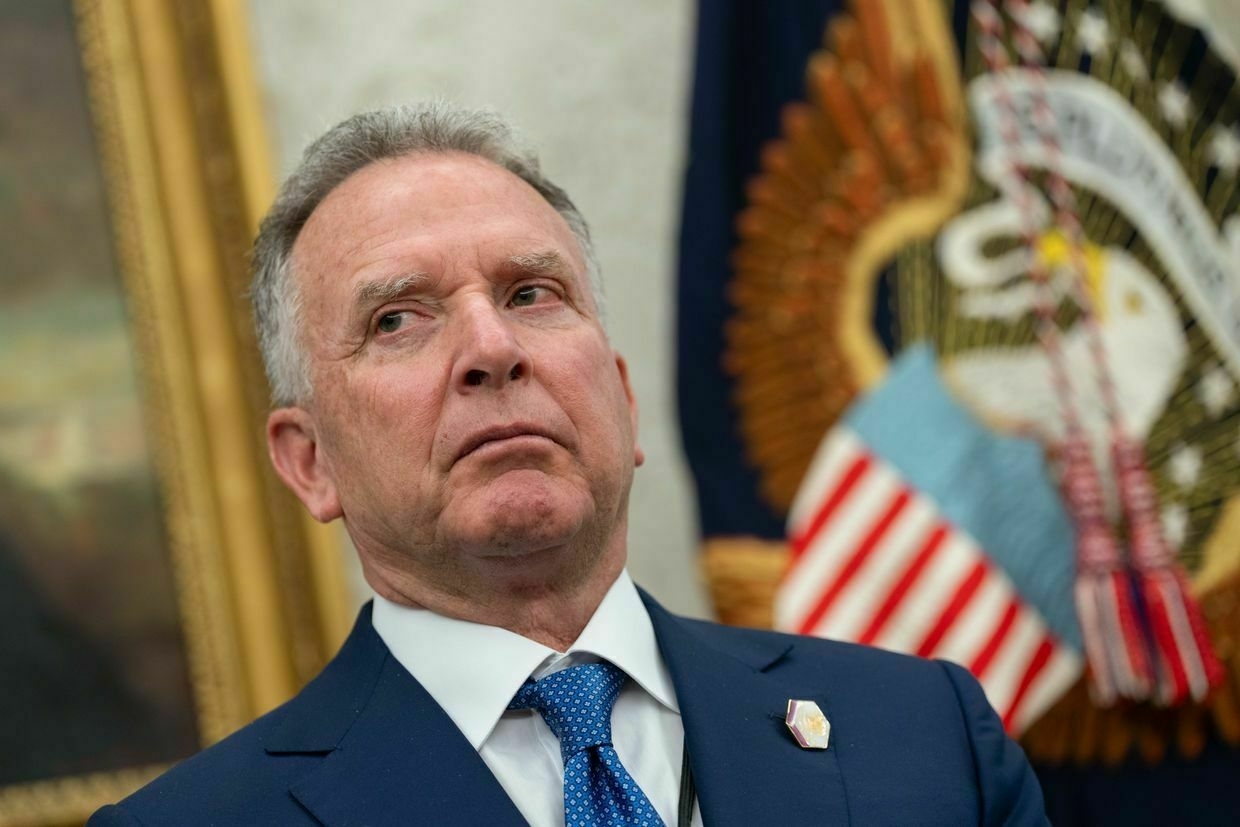
-
Starmer says he faced pressure from US to criticize Zelenksy after Oval Office clash with Trump, NYT reports
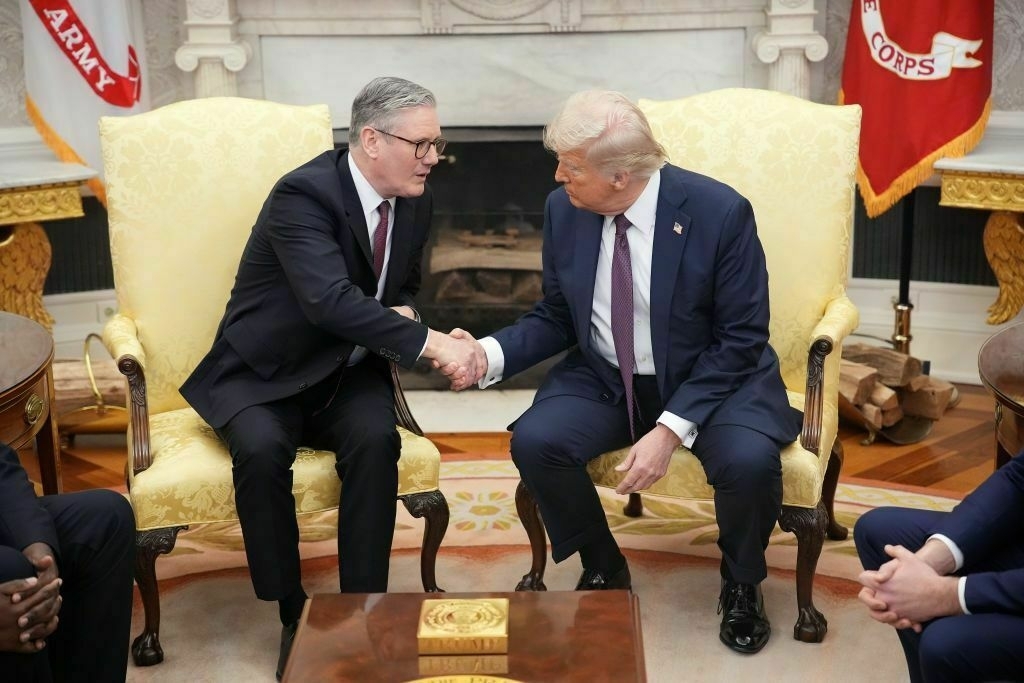
British Prime Minister Keir Starmer said he faced pressure from Washington to criticize President Volodymyr Zelensky after a showdown in the Oval Office last month led to the Ukrainian president walking out of the White House early.
In an interview with the New York Times (NYT) published March 23, Starmer said the U.K. is acting as a bridge between Ukraine and the U.S. and that President Donald Trump’s actions, such as reproaching Zelensky, have caused “a degree of disorientation.” He added that the best response is not to get provoked.
“On the day in which the Oval Office meeting between President Trump and President Zelensky didn’t go particularly well, we were under pressure to come out very critically with, you know, flowery adjectives to describe how others felt,” Starmer told the New York Times.
Starmer instead called both sides to “try and get them back on the same page.” He added that he has a good relationship with Trump and understands “what he’s trying to achieve."
Following the heated Oval Office clash on Feb. 28, Starmer sent his national security adviser, Jonathan Powell, to Kyiv to advise Zelensky on how to repair relations with Trump. The British leader later updated Trump on Kyiv’s progress, helping set up a call between the two presidents that saw Zelensky openly back Trump’s peace efforts.
Nonetheless, Ukrainian officials still remain skeptical of Washington’s attempts to cultivate a ceasefire. A U.S.-orchestrated 30-day ceasefire on energy infrastructure was agreed by Moscow and Kyiv on March 18, but Russia has continued to launch hundreds of drones at Ukraine, killing dozens of civilians.
The spat between Zelensky and Trump on Feb. 28, caused outrage in Ukraine that only escalated when Washington temporarily cut off military intelligence aid on March 5. At the same time, Trump has done little to pressure Russia, apart from threats of sanctions.
U.S. negotiators are set to separately meet Ukrainian and Russian delegates in Riyadh on March 24 to discuss the partial ceasefire proposal. Until now, the Trump team has only held bilateral talks with each side separately, including meetings with Russia in Riyadh on Feb. 18 and Istanbul on Feb. 27, and with Ukraine in Jeddah on March 11.
Starmer, an ardent supporter of Ukraine, has called for countries to join a “coalition of the willing” to support Ukraine with a peacekeeping force. He warned that Putin will breach any peace deal unless security guarantees are in place.
“It needs to be clear to Putin that there will be severe consequences if he breaches the lines,” he said on March 20.Trump says efforts to end Ukraine war ‘somewhat under control’ just hours before deadly Russian strike on Kyiv“I don’t think there’s anybody in the world that’s going to stop (Putin) except me,” Trump said shortly before three people were killed in Kyiv by Russian drones.The Kyiv IndependentThe Kyiv Independent news desk
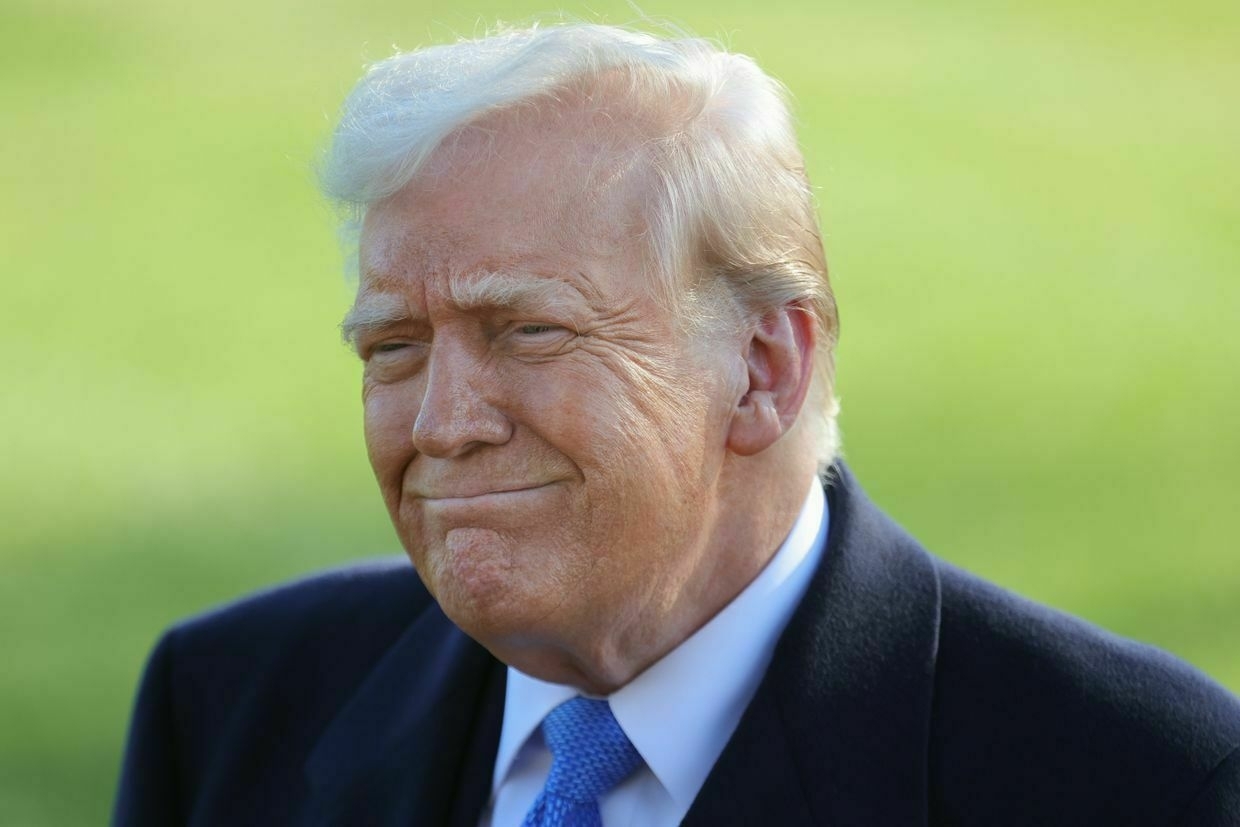
-
Trump says efforts to end Ukraine war 'somewhat under control' just hours before deadly Russian strike on Kyiv
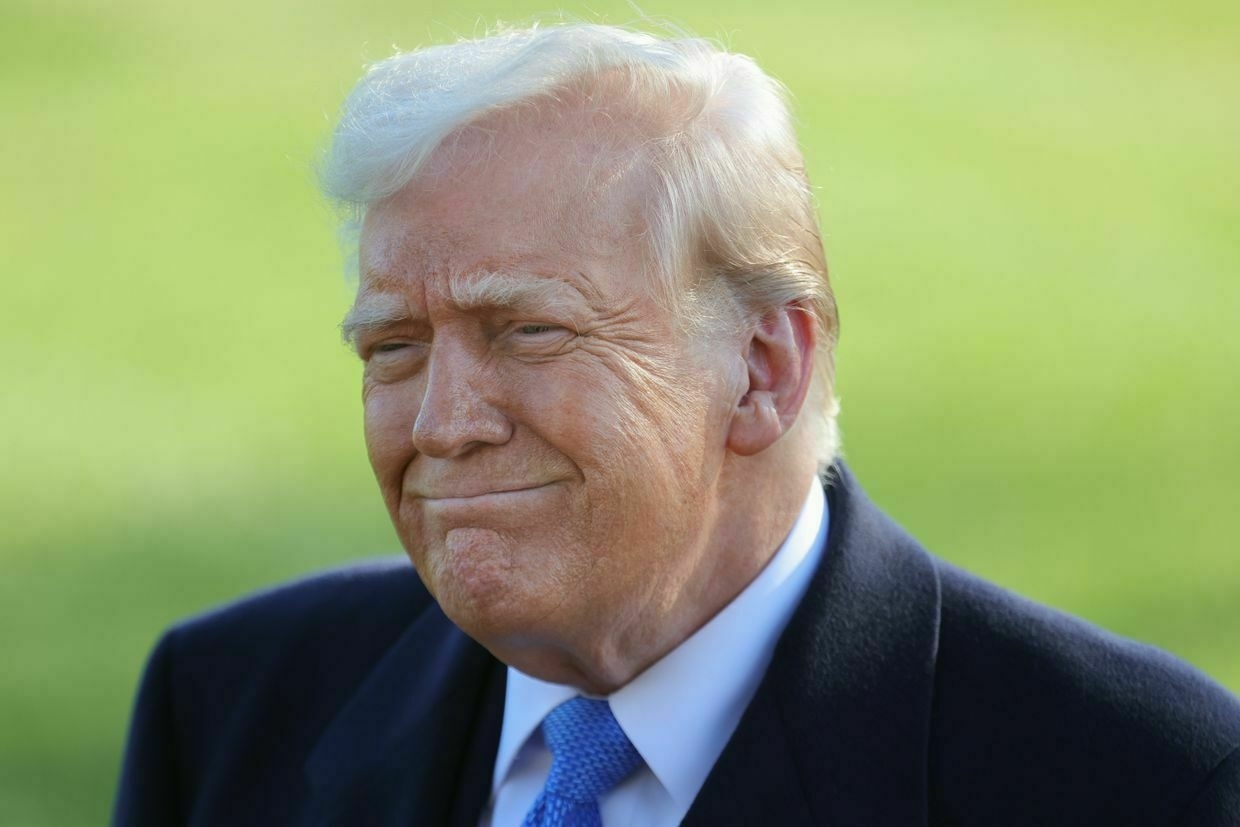
U.S. President Donald Trump has said efforts to end the war in Ukraine are “somewhat under control” just hours before a massive Russian drone strike on Kyiv killed three people including a five-year-old girl and her father.
Speaking to the sports media outlet OutKick on March 22, Trump said he has had “very rational discussions” with Russian President Vladimir Putin.
“I don’t think there’s anybody in the world that’s going to stop (Putin) except me, and I think I’m going to be able to stop him,” Trump told Travis during the interview on board Air Force One.
“We’ve had some very rational discussions, and I just want to see the people stop getting killed."
Just a few hours after the interview, Kyiv was hit by multiple Russian kamikaze drones, killing three people and injuring 10 others.
Trump has been promising a ceasefire in Ukraine since he took office in January but talks with Russia have so far yielded weak results.
On March 18, Moscow announced it had agreed to a U.S.-proposed 30-day ceasefire on Ukrainian energy infrastructure following a call between Putin and Trump.
While the White House celebrated the partial ceasefire, dozens of civilians in Ukraine have been killed by Russian attacks since its implementation.
Trump told OutKick founder Clay Travis that he has a good relationship with both Putin and President Volodymyr Zelensky, despite a fiery exchange in the Oval Office last month that led to Zelensky walking out of the White House early without signing a deal for Ukraine’s minerals.
U.S. negotiators are set to separately meet Ukrainian and Russian delegates in Riyadh on March 24 to discuss the ceasefire proposal.
Ukrainian officials told the Kyiv Independent that they are skeptical that the talks will lead to any substantial results. Until now, the Trump team has only held bilateral talks with each side separately, including meetings with Russia in Riyadh on Feb. 18 and Istanbul on Feb. 27, and with Ukraine in Jeddah on March 11.
Russia aims to make ‘some progress’ during upcoming talks in Saudi ArabiaRussian senator Grigory Karasin, who will lead Moscow’s delegation, told local Zvezda TV that he and FSB advisor Sergey Beseda would enter the negotiations with a “combative and constructive” approach.The Kyiv IndependentOlena Goncharova
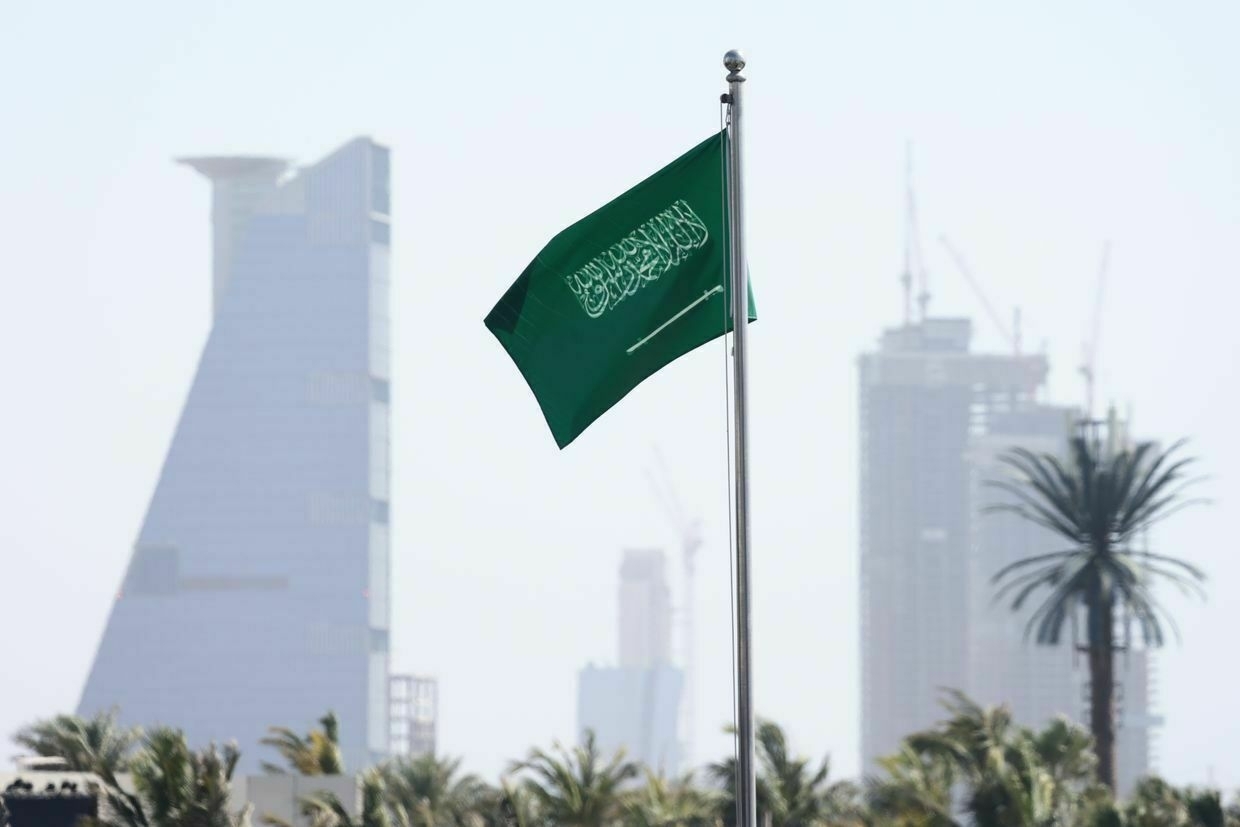
-
Russia aims to make 'some progress' during upcoming talks in Saudi Arabia
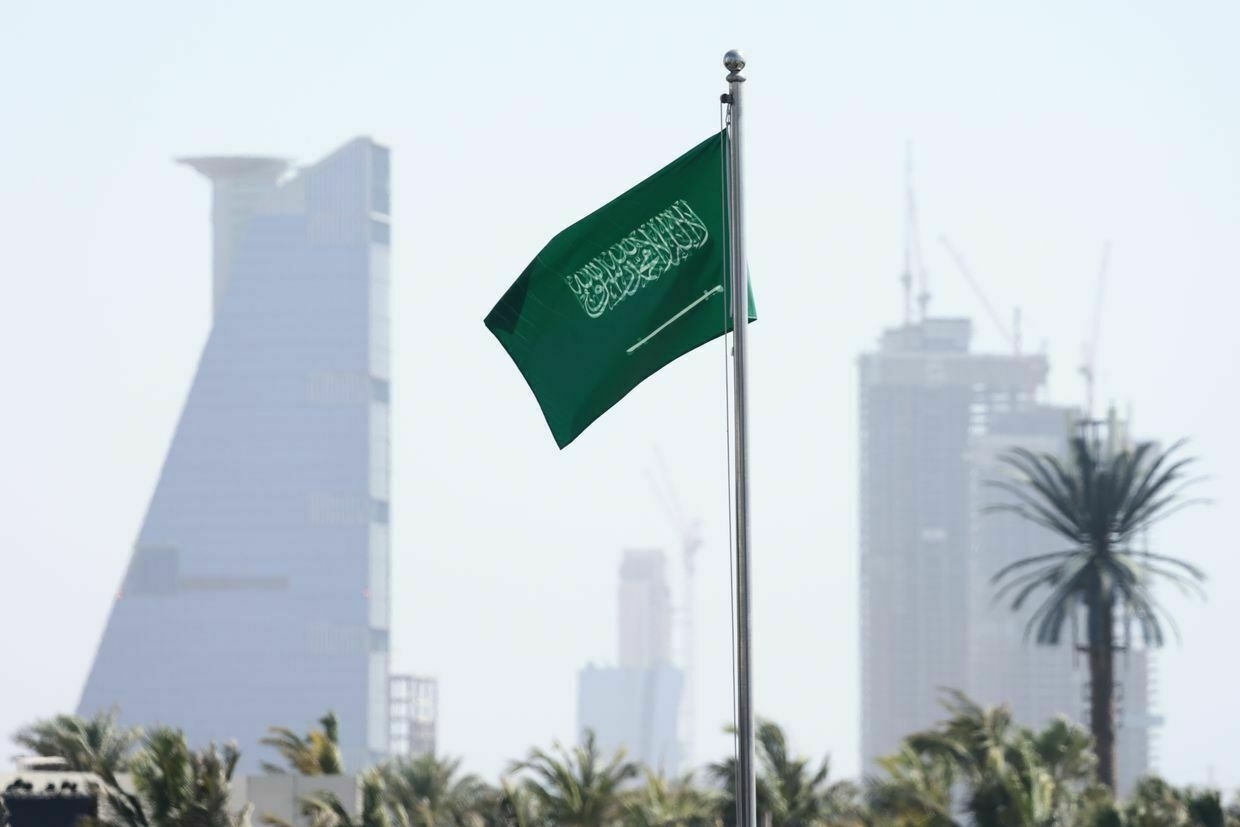
Moscow is hoping for “some progress” in upcoming talks in Saudi Arabia, a Russian negotiator told state media ahead of Monday’s meetings between U.S., Ukrainian, and Russian delegations.
The U.S. is engaging in what U.S. envoy Keith Kellogg described as “shuttle diplomacy” to seek a resolution to the full-scale invasion, now in its fourth year, but Russia has already rejected a proposed 30-day unconditional ceasefire, instead offering only to halt aerial strikes on energy facilities.
A Russian strike on Zaporizhzhia late on March 21, mere days before the upcoming talks, killed a family of three, drawing sharp condemnation from Ukrainian officials. The Ukrainian Air Force reported that Russia fired 179 drones in its latest wave of overnight attacks.
Russian senator Grigory Karasin, who will lead Moscow’s delegation, told local Zvezda TV that he and FSB advisor Sergey Beseda would enter the negotiations with a “combative and constructive” approach. He did not specify what kind of progress Russia hoped to achieve.
The selection of negotiators has raised questions, as neither Karasin nor Beseda are from Russia’s key diplomatic institutions such as the Kremlin, foreign ministry, or defense ministry.
Ukraine has accused Russia of insincerity in peace efforts, pointing to continued strikes despite President Vladimir Putin’s recent claim that he ordered a halt to attacks on Ukrainian energy infrastructure.
Meanwhile, White House envoy Steve Witkoff, a close Trump ally, praised Putin in an interview with Tucker Carlson on March 22, calling him a “great” leader seeking to end the war. “I don’t regard Putin as a bad guy,” Witkoff said. “That is a complicated situation, including war and all the ingredients that led up to it. It’s never just one person."
‘They are Russian-speaking, and there have been referendums,’ — Witkoff parrots Russian propaganda, legitimizing Putin’s claims in UkraineU.S. special envoy to the Middle East, Steve Witkoff, who recently emerged as a leading figure in negotiations regarding Russia and Ukraine, revealed insights into ongoing ceasefire talks between Moscow and Washington. In an interview on March 21 with American far-right political commentator Tucker…The Kyiv IndependentNatalia Yermak
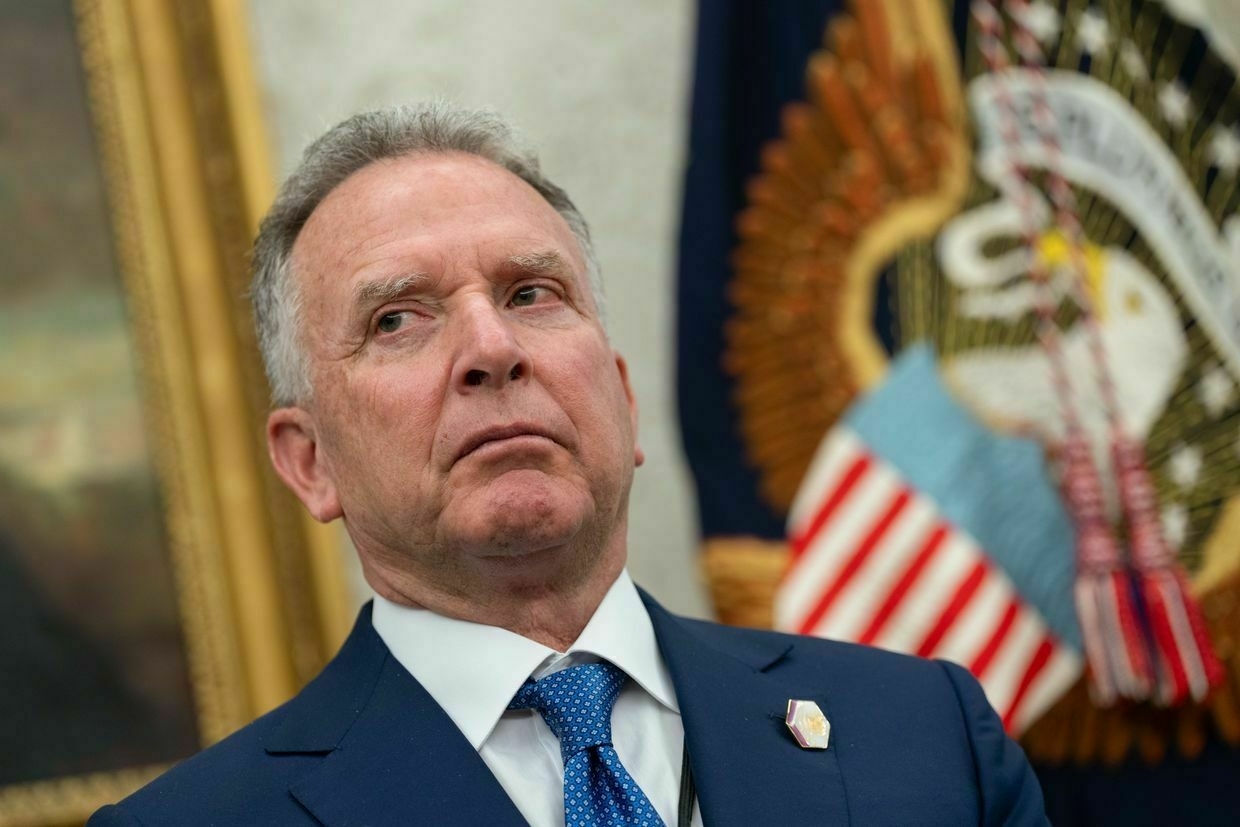
-
'No high expectations' — Ukrainian officials skeptical about upcoming Riyadh talks
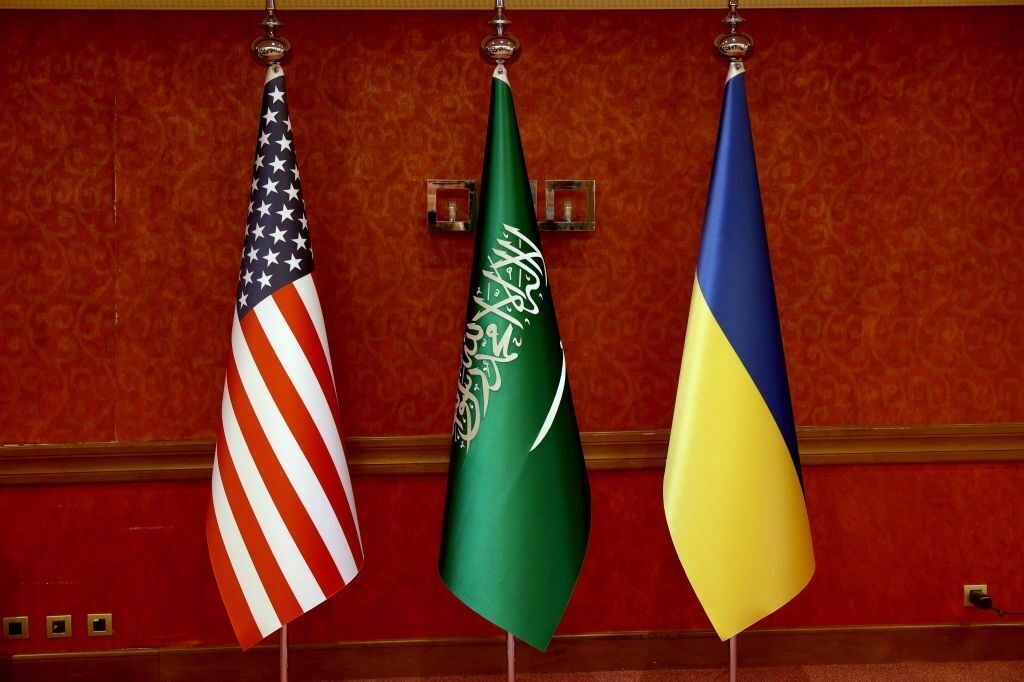
U.S. negotiators are set to separately meet Ukrainian and Russian delegates in Riyadh on March 24, and contours of a potential partial ceasefire proposal are beginning to form.
The upcoming discussions are meant to flesh out technical details on what this ceasefire, either limited to strikes against energy facilities or a more comprehensive plan involving a halt on all air and sea warfare, should look like.
U.S. President Donald Trump has strived to broker a swift peace deal in Ukraine, pressuring Kyiv to the negotiating table by temporarily halting military and intelligence aid while doing little to pressure Moscow apart from verbal threats of sanctions.
So far, Trump’s efforts have only secured a promise from Russia for the 30-day pause on energy strikes—an idea backed also by Kyiv.
The Kremlin’s promise had been broken immediately, with Russian drones attacking cities and villages all over Ukraine.
As a result, Ukrainian officials remain skeptical about the talks, hinting that they would result in a lot of statements, yet little of substance.
“I personally don’t have high expectations because, in my opinion, we can change (Russian President Vladimir) Putin’s behavior not as much through negotiations as through exerting more pressure on Russia,” Oleksandr Merezhko, head of the parliament’s Foreign Affairs Committee, told the Kyiv Independent.
“Putin will be using negotiations only for propaganda. He wants to look equal to the U.S. and not politically isolated. He is not interested in a stable ceasefire."
‘Shuttle Diplomacy’As Russia and Ukraine have not held direct high-level talks since early 2022, the U.S. will instead hold separate — and possibly parallel — talks with both parties in the Saudi capital early next week.
Until now, the Trump team has only held bilateral talks with each side separately, including meetings with Russia in Riyadh on Feb. 18 and Istanbul on Feb. 27, and with Ukraine in Jeddah on March 11.
“They’re gonna be proximity discussions, meaning one group’s gonna be in this room, one group in this room, and they’ll sit and talk, go back and forth, sort of like shuttle diplomacy,” Keith Kellog, Trump’s special envoy for Ukraine, said on ABC News.
Ukraine’s delegation will be led by Defense Minister Rustem Umerov and Pavlo Palisa, the deputy head of the President’s Office, an undisclosed Ukrainian source told Sky News. Both of these two officials were present at the U.S. talks in Jeddah.
According to President Volodymyr Zelensky, Kyiv is sending “technical teams” to flash out specifics of a potential partial ceasefire. Ukraine also made it clear that no Ukraine-Russia communications would be held in Riyadh.
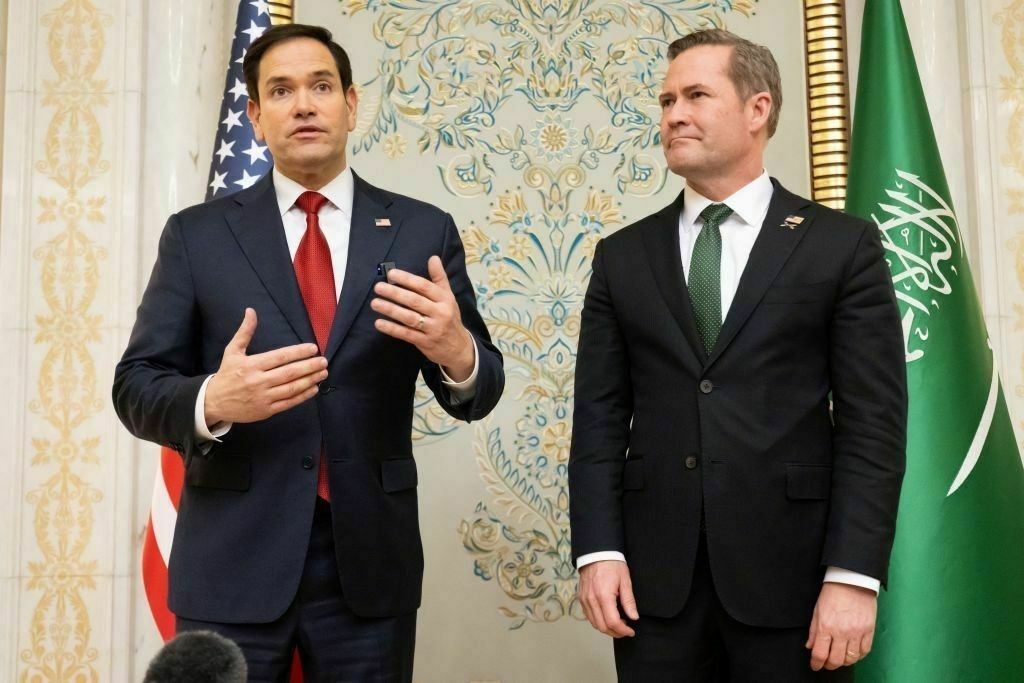
U.S. Secretary of State Marco Rubio (L) and U.S. National Security Advisor Mike Waltz (R) arrive to speak with the media following meetings with a Ukrainian delegation in Jeddah on March 11, 2025. (Saul Loeb/POOL/AFP via Getty Images) In turn, Russia is dispatching Grigory Karasin, chairman of the Federation Council Committee on International Affairs, and Sergei Beseda, an advisor to Federal Security Service (FSB) director Alexander Bortnikov.
The choice of Beseda stands out. The 70-year-old colonel general previously led the 5th FSB Service, a department responsible for gathering intelligence on Ukraine before the full-scale war began.
Beseda reportedly fell out of favor and was even placed under house arrest early in 2022 after the Kremlin realized that the 5th Service was providing faulty intelligence.
The U.S. has yet to reveal the composition of its team, though U.S. special envoy to the Middle East, Steve Witkoff, Secretary of State Marco Rubio, and National Security Advisor Mike Waltz have so far headed diplomatic efforts on Russia and Ukraine.
Trump wants a ceasefire between Ukraine and Russia – which side would gain more?U.S. President Donald Trump held a phone call with his Russian counterpart Vladimir Putin on March 18 to discuss a U.S.-backed ceasefire proposal. Putin claimed Russia would pause attacks on Ukraine’s energy infrastructure for 30 days, but did not commit to a broader ceasefire. Russia has declinedThe Kyiv IndependentOleg Sukhov
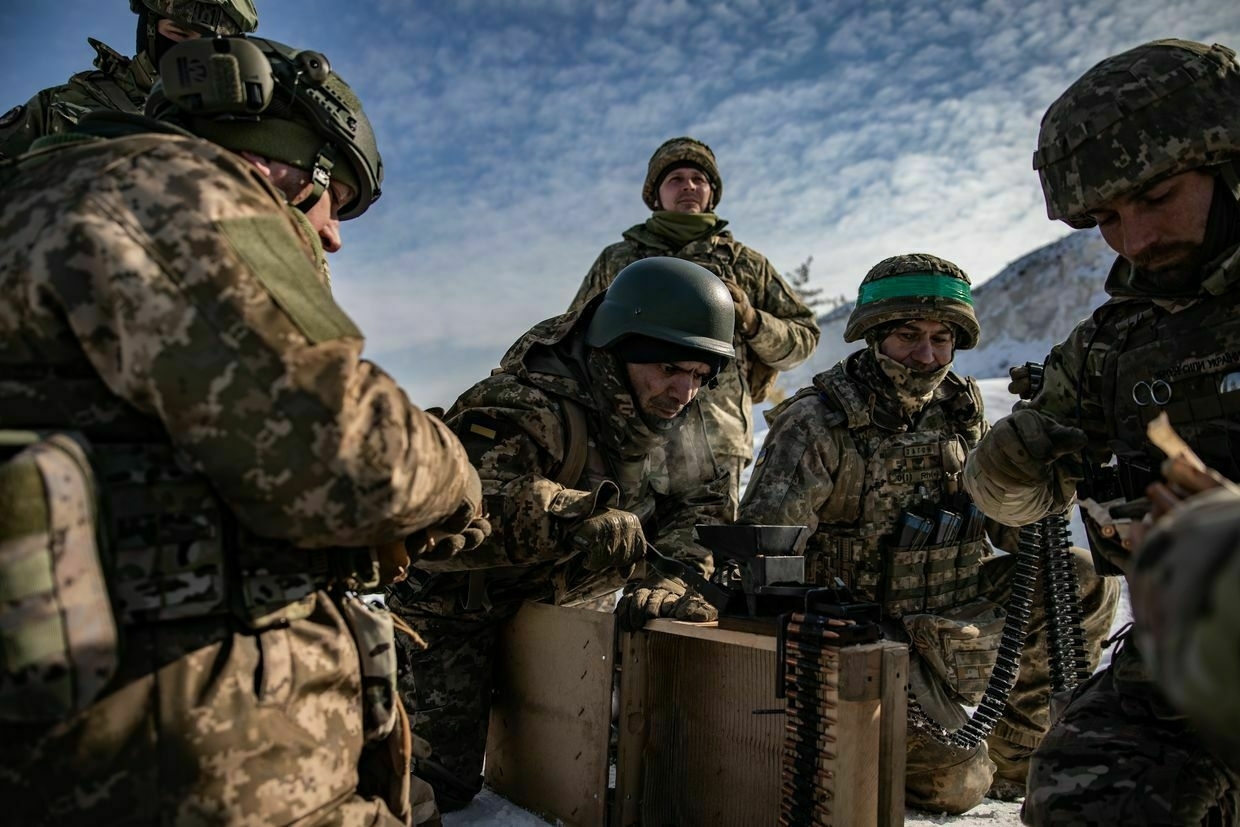
Technical discussions, shape of a ceasefireThe proposed 30-day mutual pause on strikes against energy facilities and possibly other civilian infrastructure is to be the focus of next week’s talks.
“We agreed our technical teams would meet in Riyadh in the coming days to focus on implementing and expanding the partial ceasefire President Trump secured from Russia," Waltz said.
The agreement followed a phone call between Trump and Putin on March 18, when the Russian president rejected the U.S.-proposed full ceasefire unless it included conditions rendering Kyiv more vulnerable to further attacks.
Zelensky, after his phone call with Trump, backed the energy truce but pointed out that Russia’s aerial strikes on Ukraine’s infrastructure have continued unabated despite Putin’s claim of ordering the pause. Moscow has also accused Ukraine of striking its energy facilities in Krasnodar Krai and near Sudzha, the latter of which Kyiv denied.
The Ukrainian president promised to draft a list of energy and other facilities that should be protected under the proposed ceasefire. “And if the Russians don’t hit our facilities, we won’t hit their facilities,” he added.
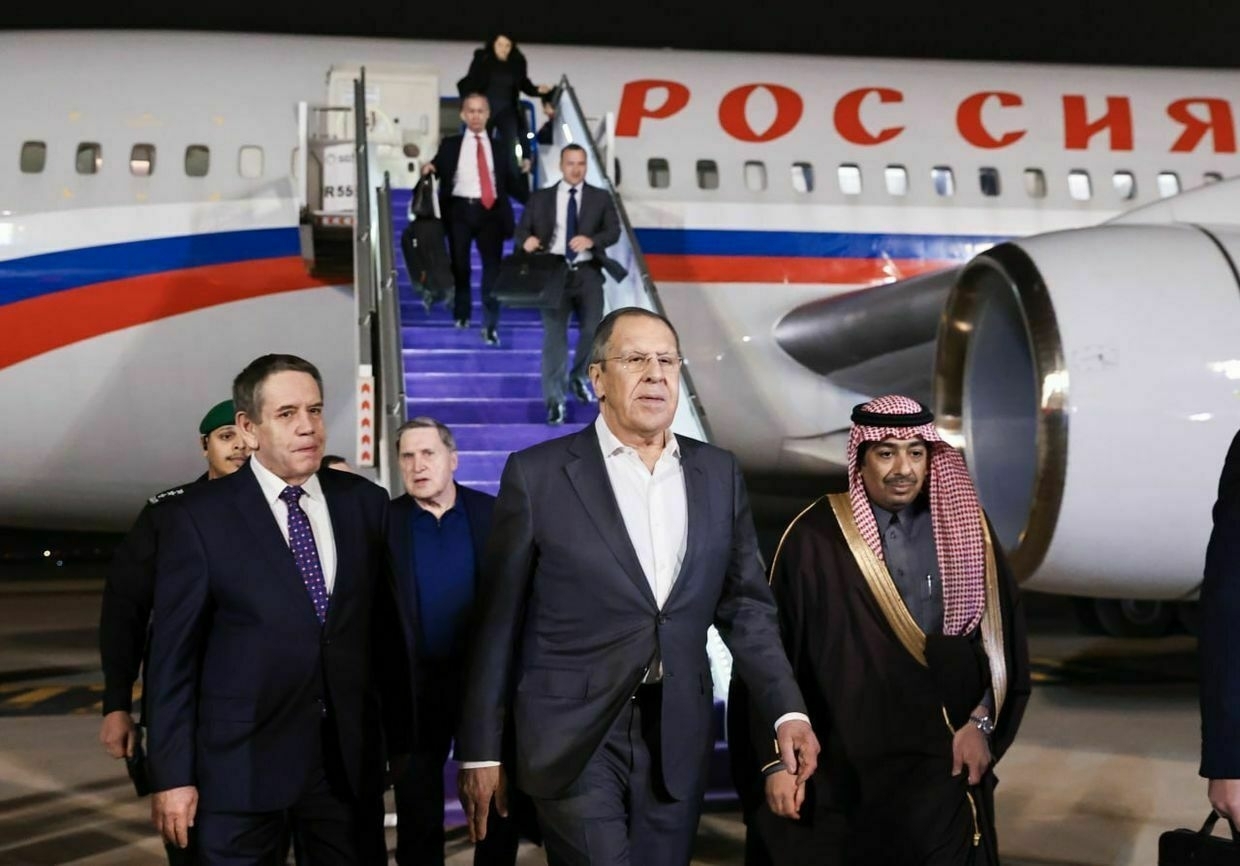
The Russian delegation, led by Foreign Minister Sergey Lavrov (front), arrives in Riyadh, Saudi Arabia, to meet with their American counterparts on Feb. 17, 2025. (Russian Foreign Ministry / Handout / Anadolu via Getty Images) “This is not a political meeting but a technical one. A meeting to determine parameters for various ceasefire proposals that are on the table,” Ukrainian Foreign Ministry spokesperson Heorhii Tykhyi said at a press briefing.
“Technical level and technical discussions. There will be a military component,” he added.
Ukraine’s campaign of long-range strikes against Russian oil and gas facilities, key sources of revenue for Moscow’s war chest, has often been hailed as one of its main wartime achievements.
In turn, Russia has destroyed a large part of Ukraine’s energy grid in massive waves of drone and missile attacks throughout the war — though the country was able to pass the winter without major blackouts.
The strikes on energy facilities may not be the only issue on the table.
Maria Mezentseva, a lawmaker from Zelensky’s party and the chairperson of the PACE delegation, expects discussions about a “comprehensive” ceasefire regime, as Kyiv and Washington have already agreed on this.
“It is also important to press on humanitarian issues: the release of all military and civilian prisoners, the return of illegally deported children,” she told the Kyiv Independent.
After the phone call between Trump and Putin, Ukraine and Russia carried out a 175-for-175 prisoner exchange on March 19, in addition to 22 Ukrainian soldiers brought back home in a separate deal.
Moscow further revealed that the talks will concern the safety of Black Sea shipping, an issue reportedly touched upon in the phone call between Trump and Putin.
The Turkey and U.N.-mediated Black Sea Grain Initiative, which ensured safe passage for merchant ships, broke down after Russia unilaterally withdrew from the treaty in 2023. However, this development seems to have only a limited effect on Ukraine’s ability to ship out its grain and other products after Kyiv forced the reopening of a new Black Sea corridor by force.
There are a number of other topics and points of interest that were mentioned by the Trump administration.
The U.S. signaled interest in taking control of Ukraine’s Zaporizhzhia Nuclear Power Plant, Europe’s largest nuclear power station that is currently under Russian occupation. Debates about a mineral deal, on hold since the public spat between Zelensky and Trump in the White House on Feb. 28, might also reemerge.
But Ukraine is tempering expectations as to whether the meeting can bring any sort of result.
Why Trump’s Ukraine plan will fail to drive a wedge between Russia, ChinaIt’s no secret that U.S. officials have been trying to drive a wedge between Russia and its key ally, China. Former United States Special Envoy for Ukraine and Russia Keith Kellogg was among the government officials who made the intention public, saying that the U.S. would try toThe Kyiv IndependentKarol Luczka
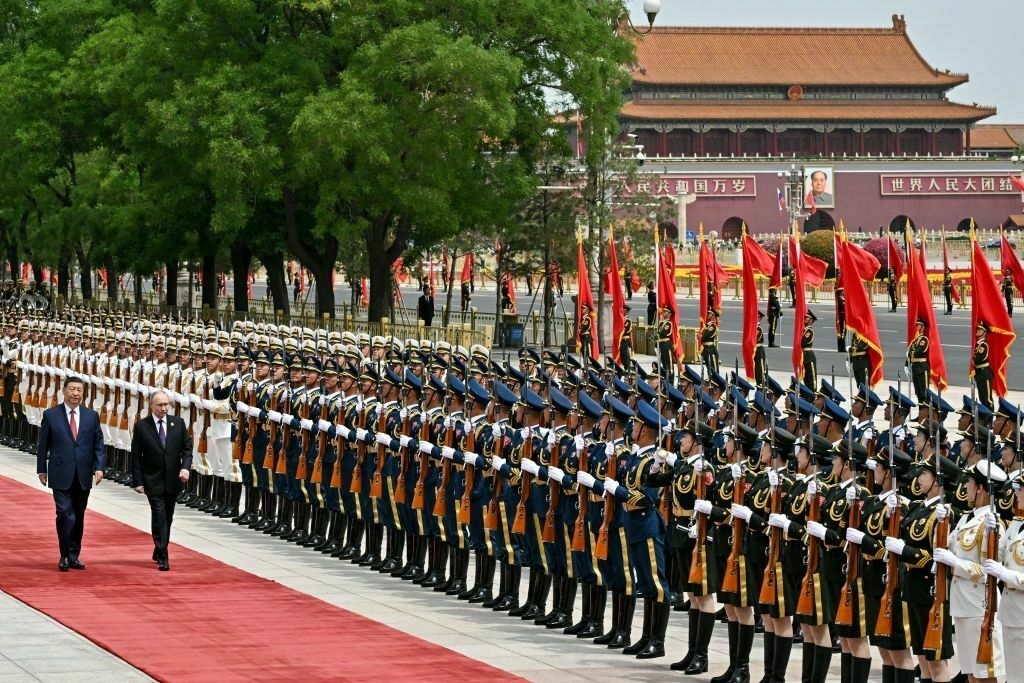
Path toward peace unclear“I don’t expect any breakthroughs in following negotiations in Saudi Arabia,” said Volodymyr Ariev, Ukrainian lawmaker from the opposition European Solidarity party who served as the vice president at PACE in 2018.
Even if progress is made on the ceasefire issue, a comprehensive peace treaty seems miles away.
There are no indications that Putin is ready to abandon his maximalist goals — Kyiv’s military neutered, NATO membership off the table, and a halt on any foreign support for Ukraine.
The Kremlin also continues to demand Ukraine to withdraw from the partially occupied Donetsk, Luhansk, Kherson, and Zaporizhzhia oblasts and seeks to extract official recognition of its conquests.
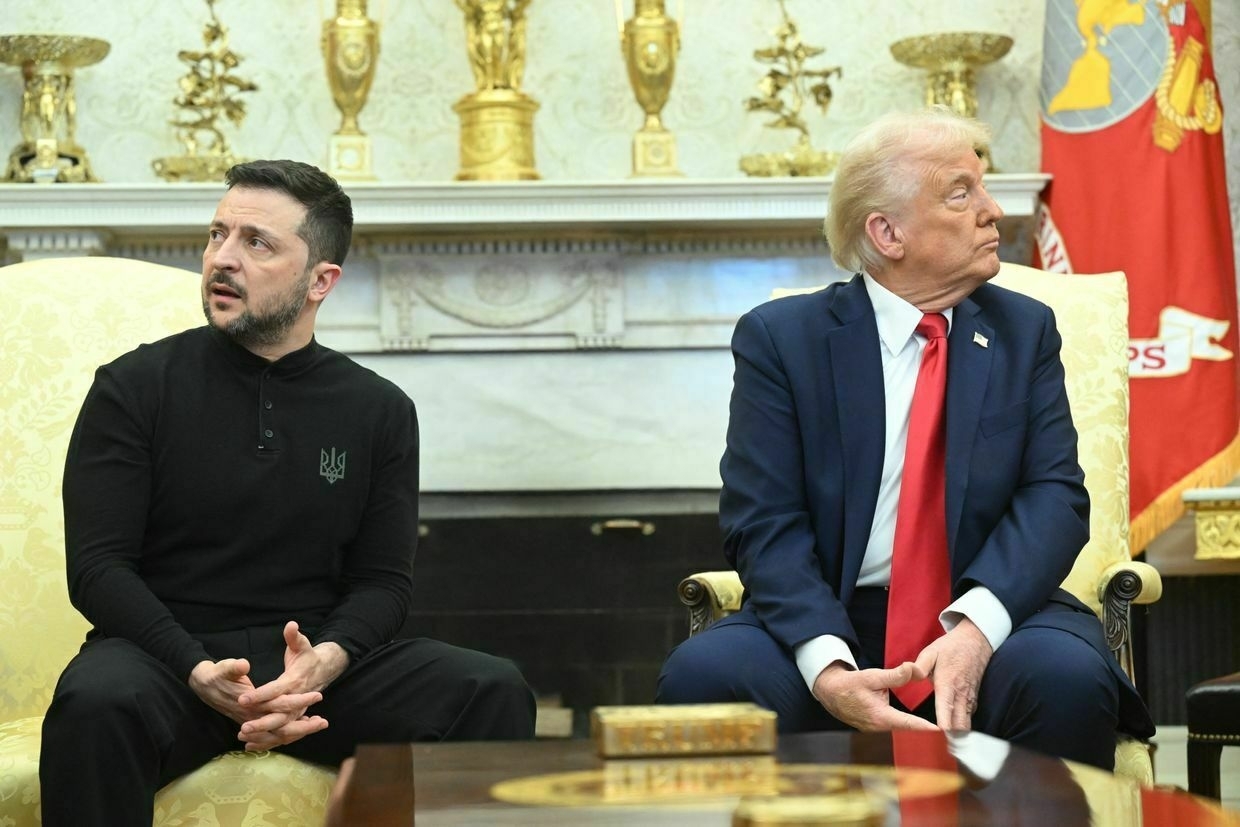
U.S. President Donald Trump and President Volodymyr Zelensky meet in the Oval Office of the White House in Washington. Feb. 28, 2025. (Saul Loeb/AFP via Getty Images) U.S. officials taking part in the negotiations with Russia seem to agree with Putin’s demands.
“I think the largest issue in that conflict are these so-called four regions, Donbas, Crimea … and there’s two others,” Witkoff said, referring to partly Russian-occupied Donetsk, Luhansk, Kherson, Zaporizhzhia oblasts, and Crimea, fully occupied by Russia since 2014.
“They are Russian-speaking, and there have been referendums where the overwhelming majority of the people have indicated that they want to be under Russian rule,” Witkoff added, omitting the circumstances surrounding Russia’s sham referendums at gunpoint in occupied Ukraine.
The Trump administration has signaled that it expects some territorial concessions on Ukraine’s part, calling a return to its pre-2014 borders unrealistic.
Ukraine earlier said that giving up territory controlled by Kyiv is a line that it would not cross. Zelensky has also made clear that Ukraine would never recognize Russian occupation but acknowledged that discussions about territory would be “difficult."
“I hope that the Ukrainian delegation will maintain the position not to cross red lines on territorial integrity matters, (and) to maintain its rights for entering military unions to defend itself,” Ariev said.
Kyiv also rejected any limitations on the size of its military and ban on joining international alliances, seeing them as key security guarantees that would prevent Russia from violating agreements in the future.
“All our experience of dealing with Putin testifies that Putin will never keep his word. He is a pathological liar and provocateur,” Merezhko said.
“To use Trump’s metaphor of playing cards, the principle should be not to start at all playing cards with a professional cheater and crook… You cannot win against a crook because he is cheating and violating the rules of the game while you are trying to follow the rules."
‘They are Russian-speaking, and there have been referendums,’ — Witkoff parrots Russian propaganda, legitimizing Putin’s claims in UkraineU.S. special envoy to the Middle East, Steve Witkoff, who recently emerged as a leading figure in negotiations regarding Russia and Ukraine, revealed insights into ongoing ceasefire talks between Moscow and Washington. In an interview on March 21 with American far-right political commentator Tucker…The Kyiv IndependentNatalia Yermak
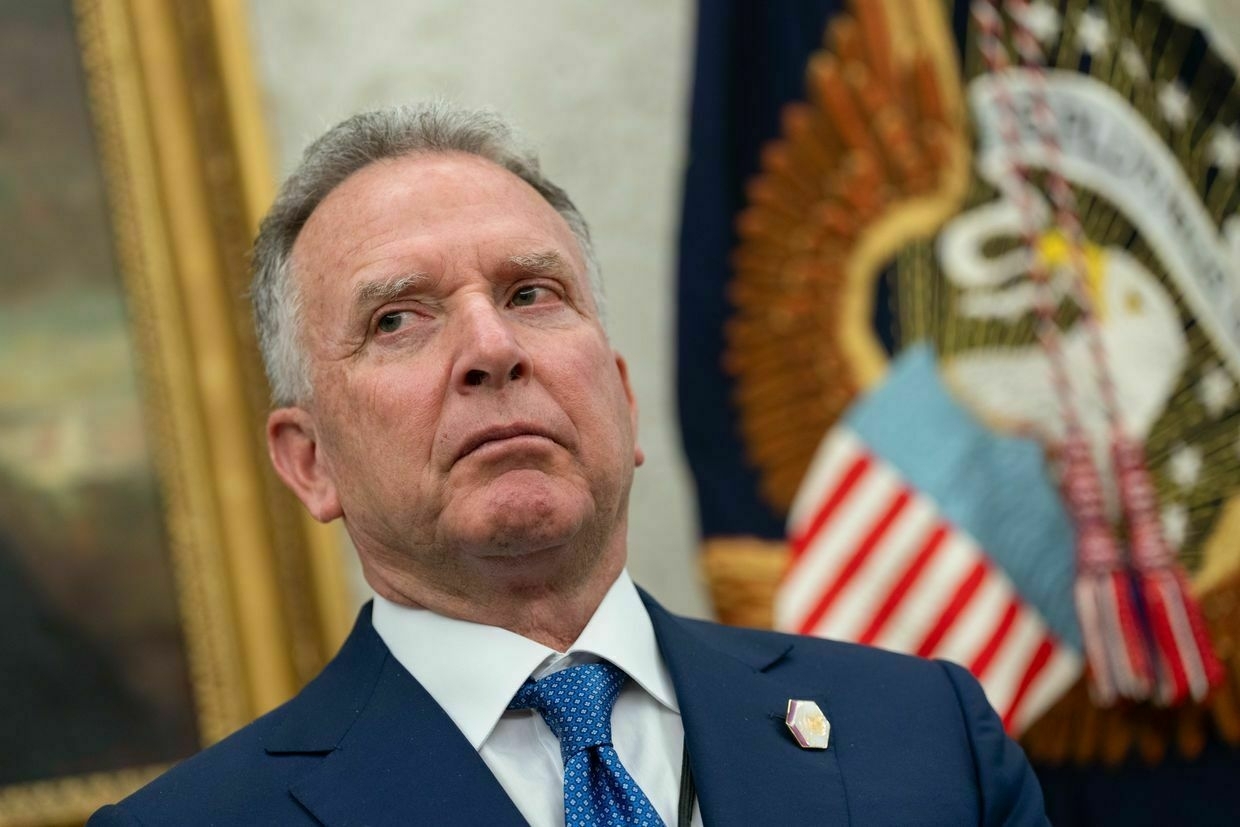
-
Trump's envoy reveals details of Putin meeting: gift exchange and Ukraine peace talks
In an official visit to Moscow on March 13, U.S. President Donald Trump's special envoy, Steven Witkoff, revealed exclusive details to American journalist Tucker Carlson about his meeting with Vladimir Putin.
According to Witkoff, Putin presented Trump with a “touching gift” through a portrait commissioned from a "leading Russian artist." "This became a personal matter," Witkoff said. "It's a beautiful portrait of President Trump. He literally handed it to me and asked me to take it home to President Trump. I delivered it to him, and Trump was truly moved."
The identity of the artist remains undisclosed, yet Russian Academy of Arts academician Nikas Safronov suggested the portrait is an "invaluable piece of art".
During their meeting, Putin also expressed his deep concern for Trump during an attempted assassination last July. "He shared a story with me, Tucker, about how he went to his local church and met with his priest to pray for the president. Not because he became the President of the United States, but because they were friends, and he prayed for his friend," Witkoff recounted.
On the issue of peace in Ukraine, Witkoff emphasized that captured territories and the annexed Crimea are central to the peace discussions. He mentioned that the residents of occupied regions in Donetsk, Luhansk, Kherson, and Zaporizhzhia, along with annexed Crimea, reportedly want to remain under Russian control, as indicated by the "referendum" results held there.
However, the fate of these territories involves "constitutional issues" within Ukraine regarding whether concessions could be made for peace. "The question is whether the world will acknowledge these as Russian territories. Can Zelensky politically survive if he does so? This is the crux of the conflict," Witkoff stressed.
The envoy further noted that Ukrainian authorities agreed to hold presidential elections, and both President Volodymyr Zelensky and his chief of staff, Andriy Yermak, have "largely acknowledged they will not become NATO members," even after the war concludes.
-
'They are Russian-speaking, and there have been referendums,' — Witkoff parrots Russian propaganda, legitimizing Putin's claims in Ukraine
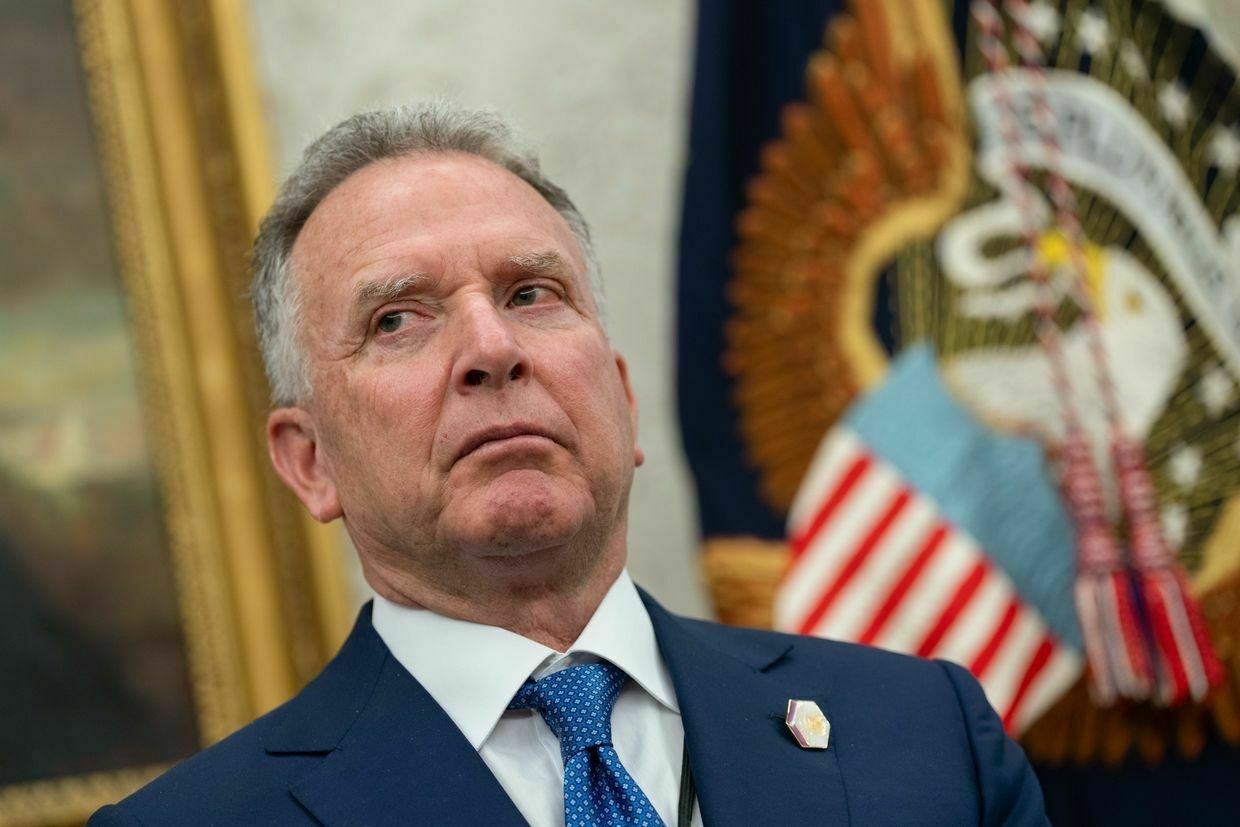
U.S. special envoy to the Middle East, Steve Witkoff, who recently emerged as a leading figure in negotiations regarding Russia and Ukraine, revealed insights into ongoing ceasefire talks between Moscow and Washington.
In an interview on March 21 with American far-right talk show host Tucker Carlson, Witkoff openly parroted Russian propaganda and agreed with most of the Kremlin’s talking points, further casting doubt on whether Ukraine can expect to gain a ceasefire on its terms.
“I think the largest issue in that conflict are these so-called four regions, Donbas, Crimea … and there’s two others,” Witkoff said, apparently referring to partly Russian-occupied Donetsk, Luhansk, Kherson, Zaporizhzhia oblasts, and Crimea, fully occupied by Russia since 2014.
“They are Russian-speaking, and there have been referendums where the overwhelming majority of the people have indicated that they want to be under Russian rule,” Witkoff added in English, omitting the circumstances surrounding Russia’s sham referendums “at gunpoint” in occupied Ukraine.
Following the start of Russia’s all-out war, Moscow occupied parts of Ukraine’s southern Zaporizhzhia and Kherson oblasts in 2022 by killing thousands of people and destroying cities and towns.
The same happened in Ukraine’s east, where Russia further advanced in Donetsk and Luhansk oblasts, a portion of which it held since 2014.
In September 2022, Russia annexed the four Ukrainian oblasts following sham referendums at gunpoint rejected by the international community as null and void. In videos published online, the vote was secured by the Russian military and under duress.
In the occupied regions, Russian forces systemically terrorized Ukrainian civilians with abductions and killings, committing war crimes such as rape and torture. Russia continues to consistently erase people’s Ukrainian identity and prosecutes opponents of enforced Russification while also forcibly conscripting men to fight in the Russian army.
Ukraine continues to control regional capitals Zaporizhzhia and Kherson, with the later being liberated in November 2022. Following the liberation of the regional capital, thousands of people took to the streets in celebration, while thousands of others who were forced to leave were able to return home.
Dispatch from Kherson: Celebrating locals share stories, welcome ZelenskyWhen liberation came, many Kherson residents could barely believe the ordeal was over. Kherson was the only regional capital that Russians managed to capture, back in the first days of the full-scale invasion. A brutal occupation then ensued, with many residents being suppressed, robbed,…The Kyiv IndependentIgor Kossov
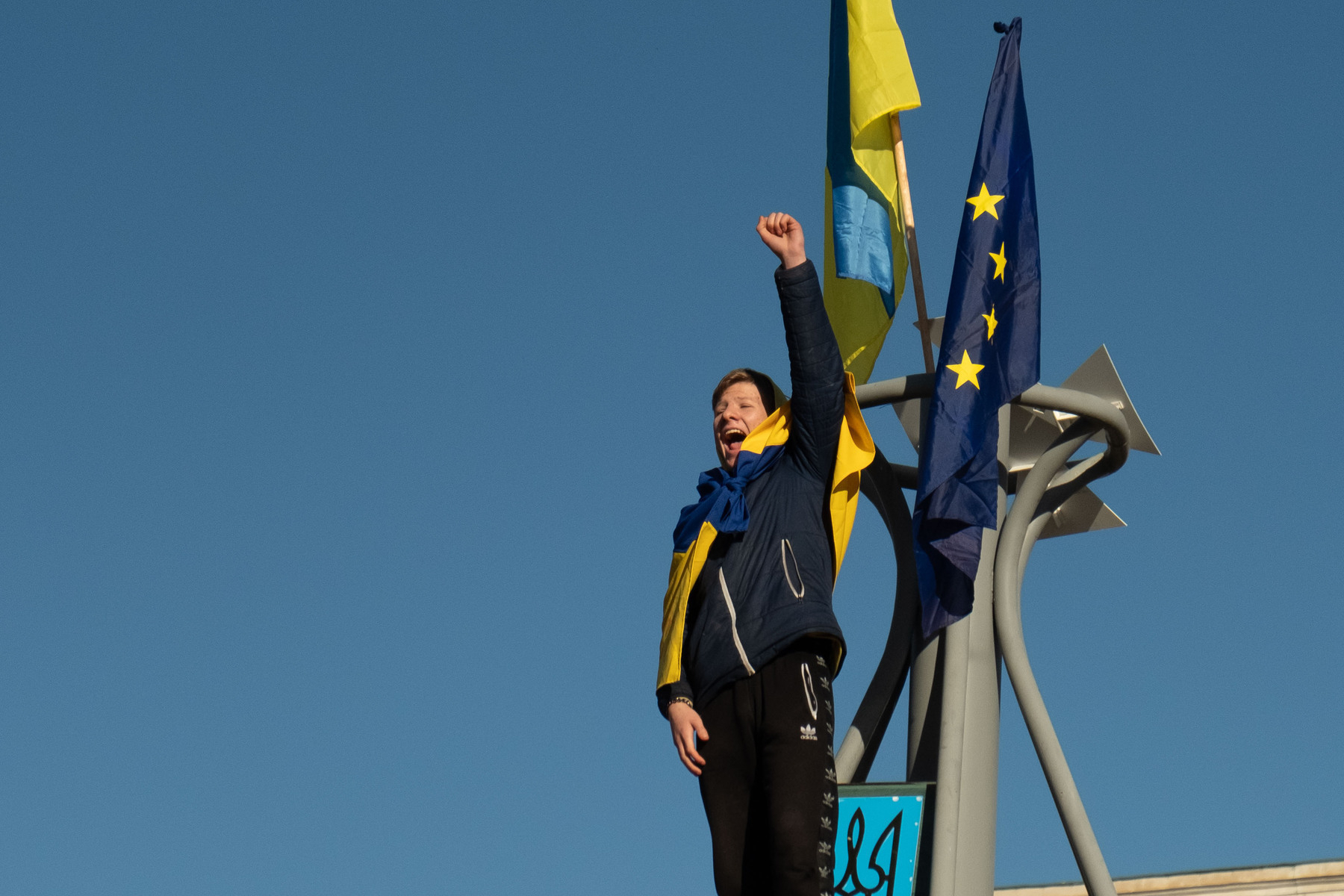
On the liberated territories, a number of Russian torture chambers were found.
Equating Ukrainian Russian speakers to Russians who support the war and using language as a way to justify its war against Ukraine is a common theme of Russian propaganda.
According to Witkoff, the problem around Russian-occupied oblasts is the Ukrainian administration’s resistance to political fallout in case “the world (would) acknowledge that those are Russian territories."
“Can (President Volodymyr) Zelensky survive politically if he acknowledges this? This is the central issue in the conflict,” Witkoff said.
How Russia has attempted to erase Ukrainian language, culture throughout centuriesEditor’s Note: This is episode 3 of “Ukraine’s True History,” a video and story series by the Kyiv Independent. The series is funded by the Institute for War and Peace Reporting within the program “Ukraine Forward: Amplifying Analysis.” The program is financed by the MATRA Programme of the Embassy o…The Kyiv IndependentDaria Shulzhenko
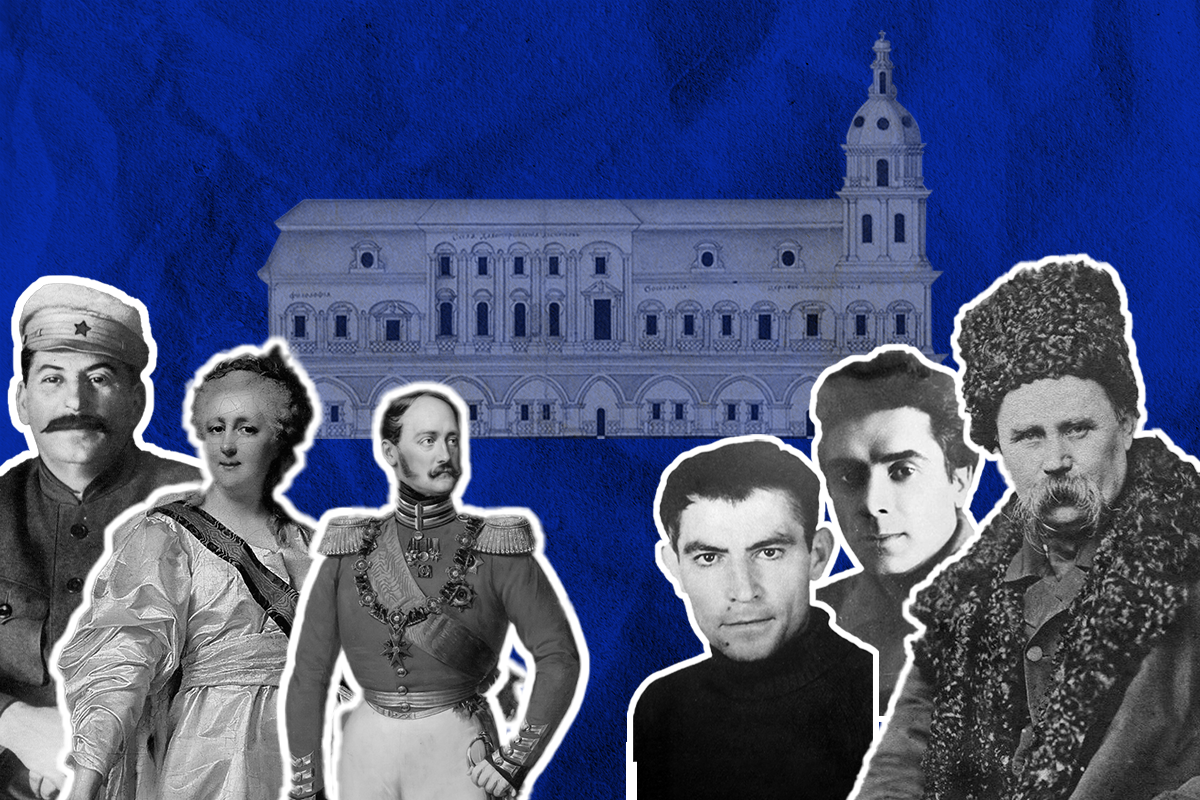
Witkoff also claimed that Ukraine will hold presidential elections. His statement came after Carlson echoed a Russian narrative, saying that Moscow considers Zelensky “not elected” and, therefore, “can’t sign any kind of treaty."
Witkoff alleged that Ukrainian leadership had “largely conceded that they are not going to be a member of NATO” but added the discussion is open on whether Ukraine could have a degree of NATO-member protection from the U.S. and European countries.
Witkoff added that Russia “100%” doesn’t want to wage a war in Europe or “absorb Ukraine” fully.
"(Russia’s) reclaimed these five regions. They have Crimea, and they’ve gotten what they want. So why do they need more?” Witkoff added, not mentioning that Russia had made similar claims of not invading Ukraine prior to its full-scale invasion.
Witkoff empathized that Trump is focused on reviving their relationship with Putin over the course of peace talks.
“Who doesn’t want to have a world where Russia and the United States are doing collaboratively good things together?” he said, mentioning the prospect of doing business as usual with Russia with “energy policies in the Arctic,” selling natural gas to Europe and collaborating on AI.
“That is a complicated situation, including war and all the ingredients that led up to it. It’s never just one person,” Witkoff added.
Witkoff downplayed Russian President Vladimir Putin’s role in the full-scale invasion.
With regards to a partial ceasefire that would halt strikes against infrastructure and moratorium on maritime hits in the Black Sea, Witkoff claimed that they are “going to be implemented in the next week or so."
Witkoff also said that Putin claimed to have prayed for “his friend” Trump in a local church after an attempt on Trump’s life in July 2024 and gave Witkoff a commissioned portrait of Trump as a gift for the U.S. president.
“This is the kind of connection that we’ve been able to reestablish (with Russia) through a simple word called communication, which many people would say I shouldn’t have had because Putin is a bad guy. I don’t regard Putin as a bad guy,” Witkoff added.
“This might be the stupidest thing I’ve ever seen,” right-wing commentator Richard Hanania posted on X (Twitter) along with this segment of the interview.
Trump’s envoy Witkoff claims Ukraine will hold presidential electionsUkraine has not held elections during Russia’s full-scale war because they are prohibited under martial law, which was declared on Feb. 24, 2022.The Kyiv IndependentOlena Goncharova
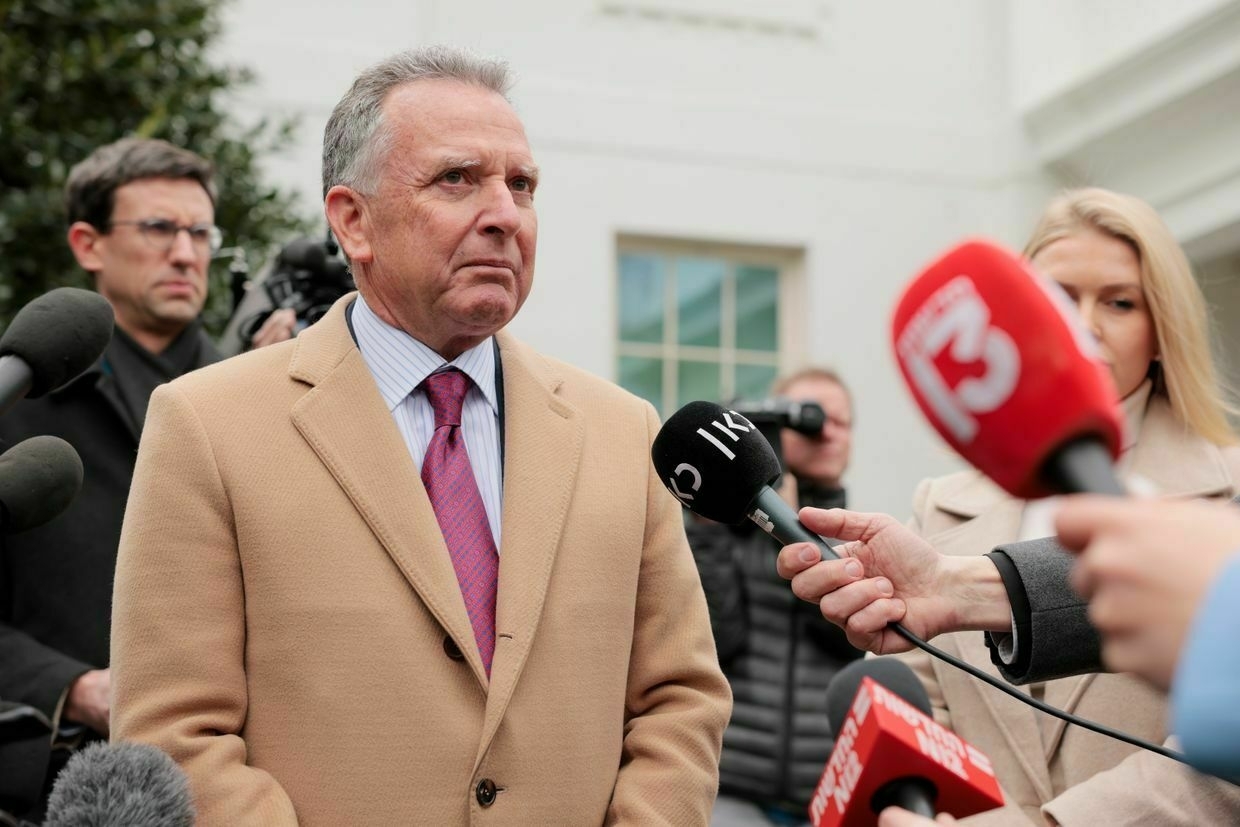
-
Ukraine’s HIV patients face crisis: Trump aid halt
Editor’s Note: The Counteroffensive exists to explore the human side of war – going beyond headlines to show how real people experience it.
We cover Ukraine not just as a battlefield but as a country with a rich culture, history, and traditions. Want to support this unique coverage? Upgrade today!
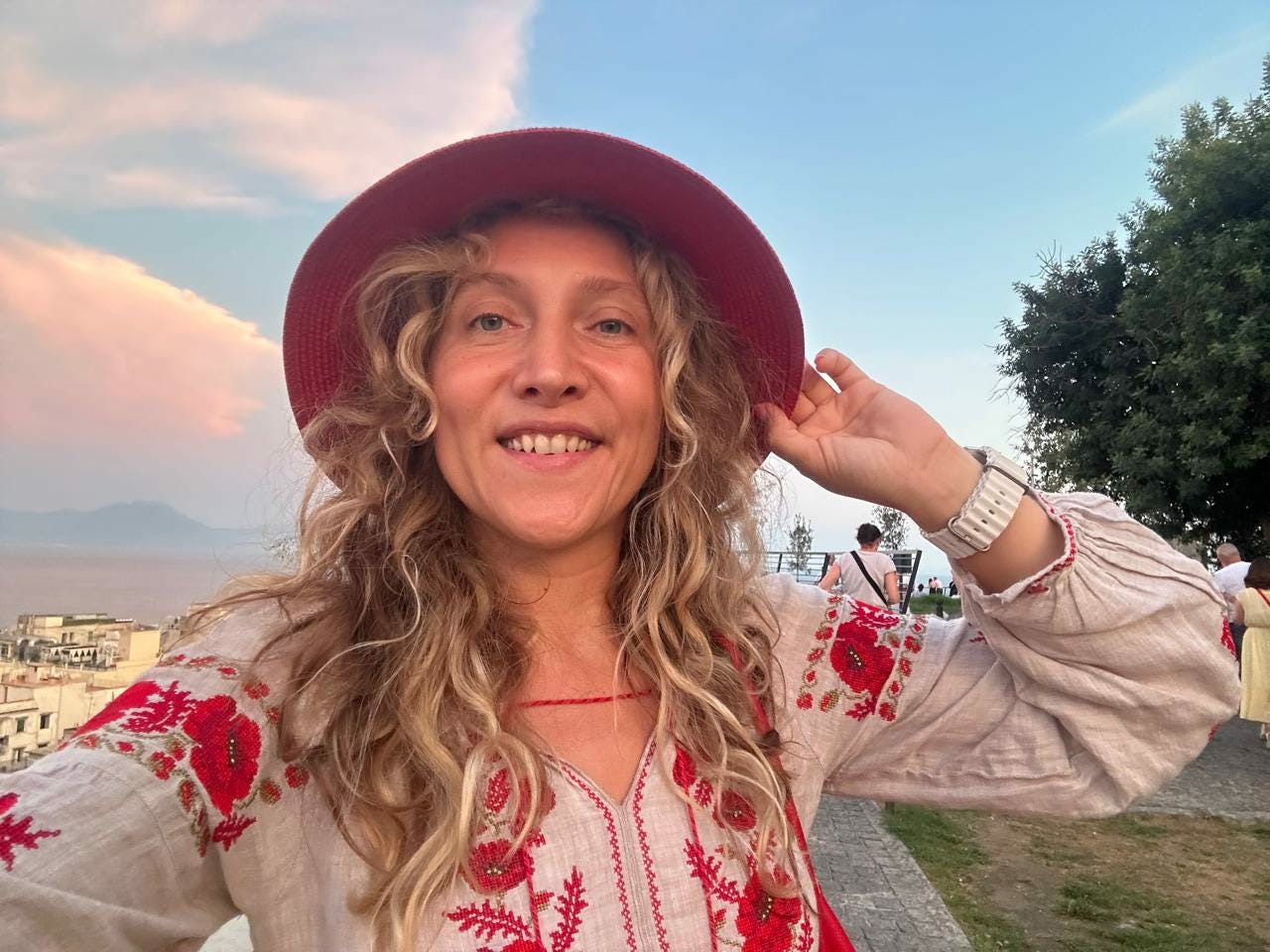
Valeriia Rachynska has been living with HIV for the last 15 years of her life. Photo: Valeriia Rachynska Valeriia feels the familiar tendrils of fear through her body as she walks into the hospital for her routine checkup.
Her HIV diagnosis is no longer a death sentence – one jar of pills means another month of life-saving medication. But today, the doctor slid just three blister packs across the counter instead of the usual six jars.
Stocks are dwindling. No one can tell her when, or if, more will come.
About 120,000 HIV-positive people are facing the same crisis across Ukraine. Since Trump took office in January, he has cut American foreign aid, which was key for Ukraine to obtain supplies for HIV treatment.
The Wall Street Journal reported that the U.S. government is also considering cutting domestic HIV prevention programs, which threatens to undo twenty years of efforts to fight the virus.
It's not just about aid - it's about a global health crisis caused by politics. Without prevention and treatment, new infections will increase, people will die, and the impact will be felt far beyond Ukraine, demonstrating how decisions in Washington can jeopardize public health around the world.
“Every time I go to bed, I am grateful I have these pills. Thanks to them, I have lived today and will live tomorrow. And usually, I know that I will live another six months or a year of my life, so I have medicine. But now it's only three months. And it scares me,” Valeriia said.
Valeriia Rachynska, 48, has been living with HIV for 15 years. She discovered it when a doctor suggested she and her husband take an HIV test amid a months-long illness of her husband that had remained undiagnosed for several months.
Both tests were positive.
HIV cannot be cured, but it is possible to reduce the viral load in the body so as to effectively eliminate the chances for transmission and minimize any symptoms. With a carefully planned cocktail of drugs, an HIV-positive patient can contain the condition.
As of this year, there were 336.1 HIV-positive patients per 100,000 people in Ukraine. Meanwhile in the United States, this figure is 388 per 100,000 in 2022.
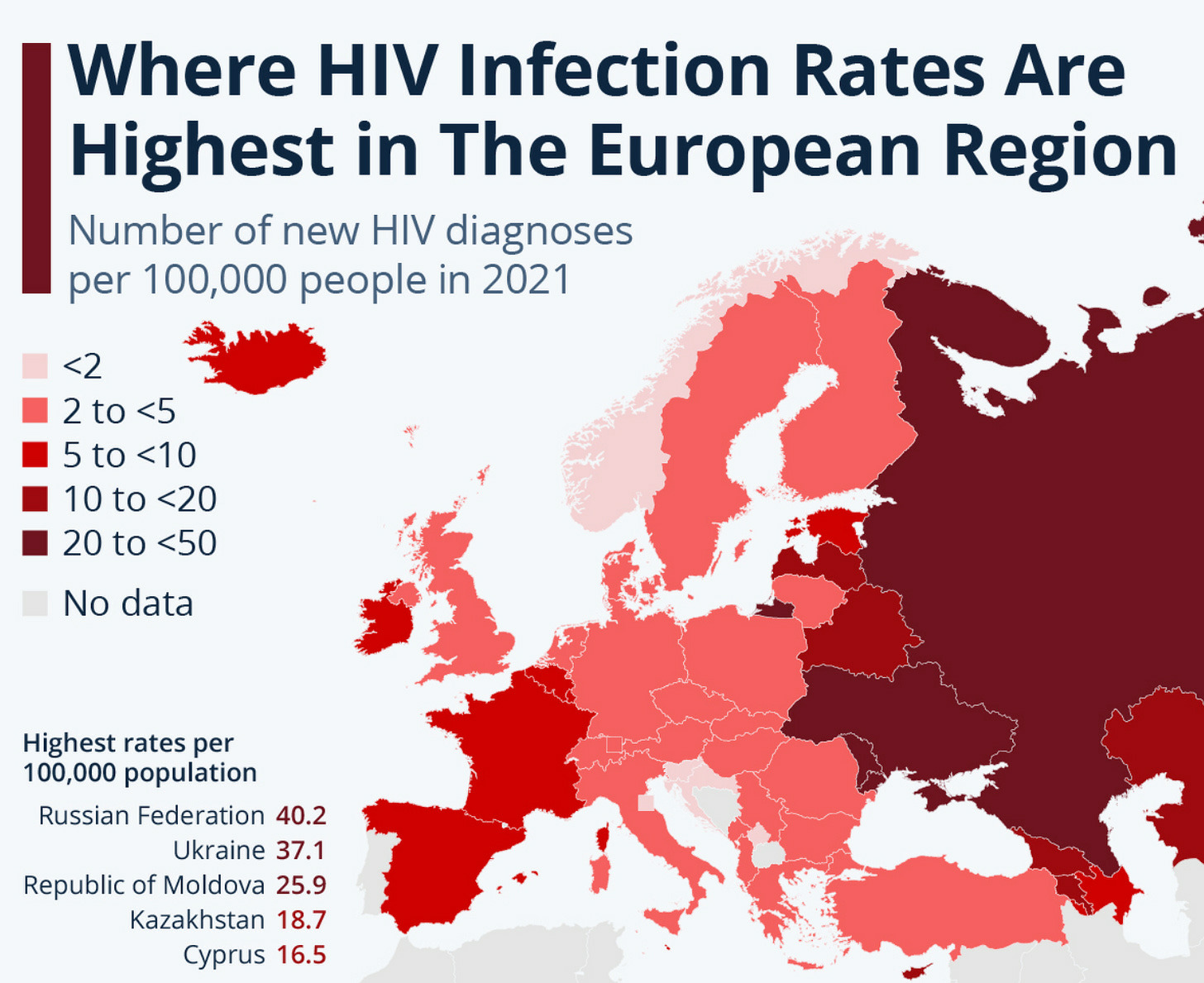
Source: European Center for Disease Prevention and Control, WHO and Statista. For the past decades, international NGOs have been sending supplies to treat HIV to Ukraine, as Kyiv’s economy does not have the capacity to produce its own. A few years before Russia’s full-scale invasion, Ukraine’s government assigned a portion of its state budget to begin producing the medicine locally.
However, following Russia’s attack in 2022, NGOs considered it too risky to continue sending supplies to Ukraine.
There was a risk that about 120,000 HIV-positive Ukrainians would be left without medication at the beginning of the full-scale invasion, Yevheniia Rudenka, head of procurement at the ‘100% Life’ charity organization, said.
Suppliers did not want to risk going to Ukraine, she added.
“Back then [in 2022], at the most critical moments, they [doctors] would only give us medicine for a month. I know there were cases when doctors were forced to give out medicines for only two weeks because if they gave them for a month, someone would not have them tomorrow,” Valeriia said.
Through USAID, the United States stepped up its efforts to provide treatment in Ukraine, Rudenka said.
“The situation was critical then, but the United States came to the rescue,” Yevheniia said. “And thanks to this, this catastrophic pause did not happen in 2022. The support also continued in 2023 and 2024,” she said.

People hold empty packages of medications as they are lined up in a symbolic queue for HIV treatment during a protest outside the Cabinet of Ministers in Kyiv on July 1, 2015. Photo credit: SERGEI SUPINSKY/AFP via Getty Images When Valeriia was diagnosed with HIV, Ukraine was forced to ration its antiretroviral medications due to a lack of ability. Supplies were prioritized for those in a more advanced and critical stage.
Doctors monitor a patient's CD4 cell counts, which show how healthy your immune system is. Since Valeria's count was within the normal range at the beginning of her diagnosis, she was not provided any medication.
Yet, at the end of 2010, the year she was diagnosed with HIV, her CD4 count dropped sharply to just 147. Healthy adults will have a measurement anywhere from 500 to 1,500.
She should have started treatment immediately after being diagnosed with the condition, she said.
“It was clear that I should have started treatment even before the tests. I felt sick all the time and lost 10% of my weight. I also had herpes that wouldn't go away and several other problems. It seemed to be nothing serious, but I was sick all over,” Valeriia said.
After her CD4 count dropped, Valeriia began treatment, taking five pills in the morning and six in the evening. In two months, her symptoms had disappeared. As the years went by, HIV treatment became more sophisticated, requiring patients to only need one pill a day to contain the symptoms.
Yet, treatment is only effective if it's not interrupted, and medications are taken consistently.
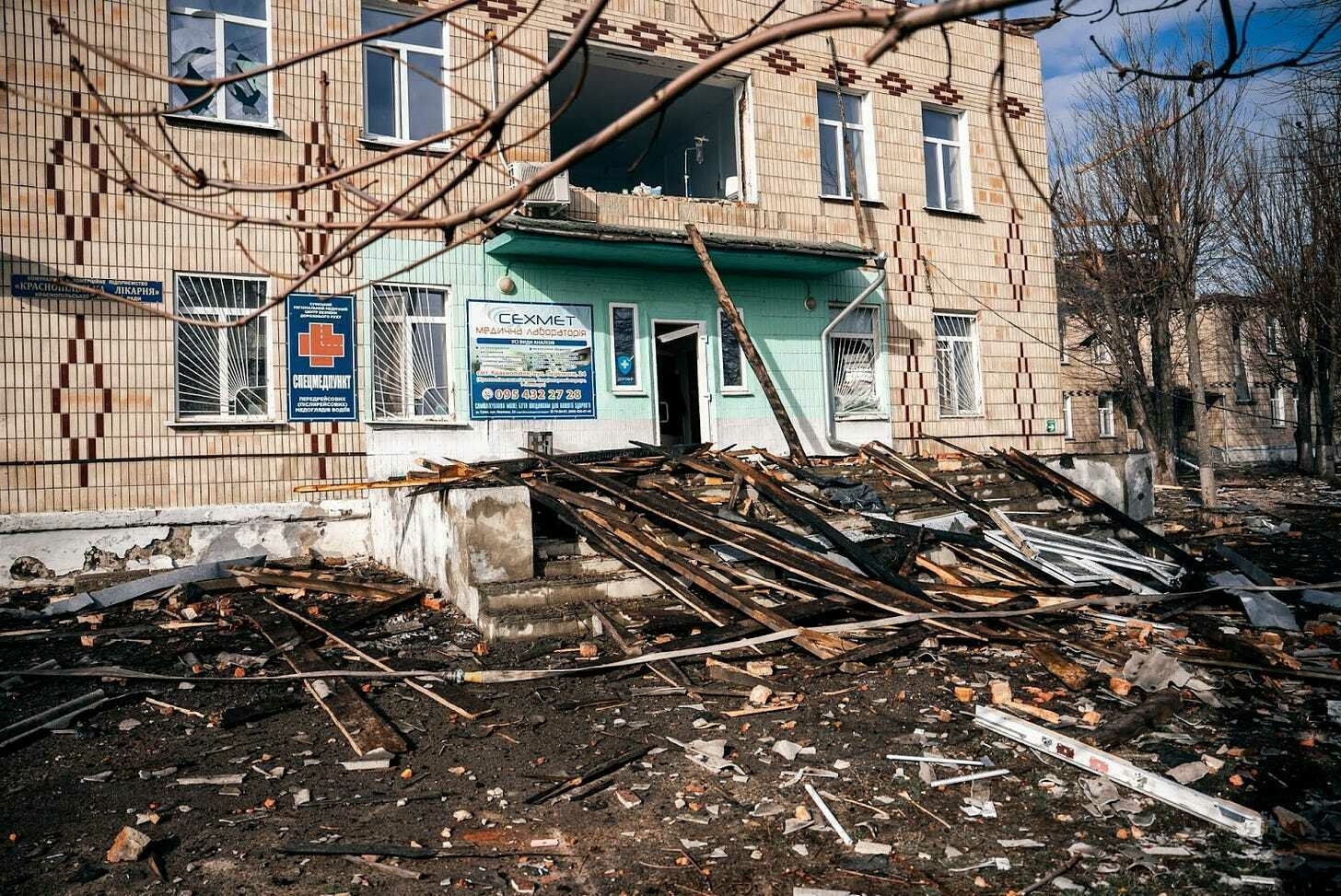
A view of a destroyed hospital building after a Russian drone attack on March 19, 2025, in Krasnopillia, Sumy Oblast. A view of a destroyed hospital building after a Russian drone attack on March 19, 2025, in Krasnopillia, Sumy Oblast, Ukraine. In January, Trump decided to suspend all international support for 90 days. The American government was expected to deliver $20 million worth of medicine to Ukraine in 2025, Yevheniia said.
“Currently, deliveries of 16 million [dollars] worth of goods have been suspended, and the remaining four million are in the process of delivery,” Yevheniia added.
The World Health Organization said this month that Trump’s decision to pause U.S. foreign aid will also affect HIV treatments in Haiti, Kenya, Lesotho, South Sudan, Burkina Faso, Mali, and Nigeria.
At the moment, HIV patients in Ukraine can use any of the 21 available HIV medications. Kyiv has stock for most of them for just six months, Yevheniia said.
If Ukrainians do not find alternative funding sources to resume supplies, the situation could become critical for well over 100,000, experts warn.
“People who make such decisions must realize their full responsibility. This may not just let the epidemic that we have been fighting for the last 20 years get out of control. It can lead to death. And this is not an empty word. Specific people will die, some very quickly, and some very slowly,” Valeriia said.
Now, Valeriia is hoping the crisis will be solved before the fall, and that she will be able to receive her usual six jars of pills the next time she goes to the doctor.
“I used to know I had another six months or a year to live, but now I realize that my life is limited to three months,” Valeriia said.
NEWS OF THE DAY:
Good morning to readers; Kyiv remains in Ukrainian hands.
UKRAINE MAY HOLD PRESIDENTIAL ELECTIONS: A decision regarding elections in Ukraine has already allegedly been made, and they will take place, U.S. Special Representative Steve Witkoff said in an interview with Tucker Carlson. He emphasized that Russia does not recognize Zelenskyy as the legitimate president, which is why the Kremlin "can't sign any kind of treaty with him." According to the Constitution of Ukraine, any elections are not lawful during martial law.
Meanwhile, Witkoff stated that he does not consider Putin to be a "bad person." During his second visit to Russia, Putin allegedly ordered a portrait of Trump from a leading Russian artist and asked to have it delivered to him.
"He [Putin] told me a story, Tucker, about how when the president [Trump] was shot, he went to his local church, met with his priest, and prayed for the president—not because he could become the president of the United States, but because he has a friendship with him and he was praying for his friend," Witkoff recounted.
VOA SUES TRUMP: Journalists from Voice of America and their unions have filed a lawsuit against the Trump administration, Reuters reported. They claim that the closure of news agencies violates the Constitution, infringing workers' right to freedom of speech.
Voice of America became the latest victim of the Trump administration’s large-scale campaign to reduce the federal government, which allegedly spends taxpayer money in ways that do not align with U.S. interests. As a result, a week ago, agency employees were sent on administrative leave. This could mean the de facto closure of Voice of America.
RUSSIA MAY RETURN TO THE OLYMPIC GAMES: The International Olympic Committee is considering allowing Russians back into the Olympic Games, according to a newly elected IOC President, Kirsty Coventry, in an interview with Sky News. She is against banning athletes from participating in competitions due to conflicts.
Russian and Belarusian athletes participated in the 2024 Summer Olympic Games in Paris despite Ukraine's protests. However, they competed under a neutral flag, and their participation was individual, not representing their countries.
CAT OF CONFLICT
Today's cat of conflict is Simba, who took over Mariana's workspace for a peaceful lunch nap, preventing her from working on her next story for The Counteroffensive.
Stay safe out there.
Best,
Mariana -
Voice of America journalists sue Trump administration following president's order to gut free press
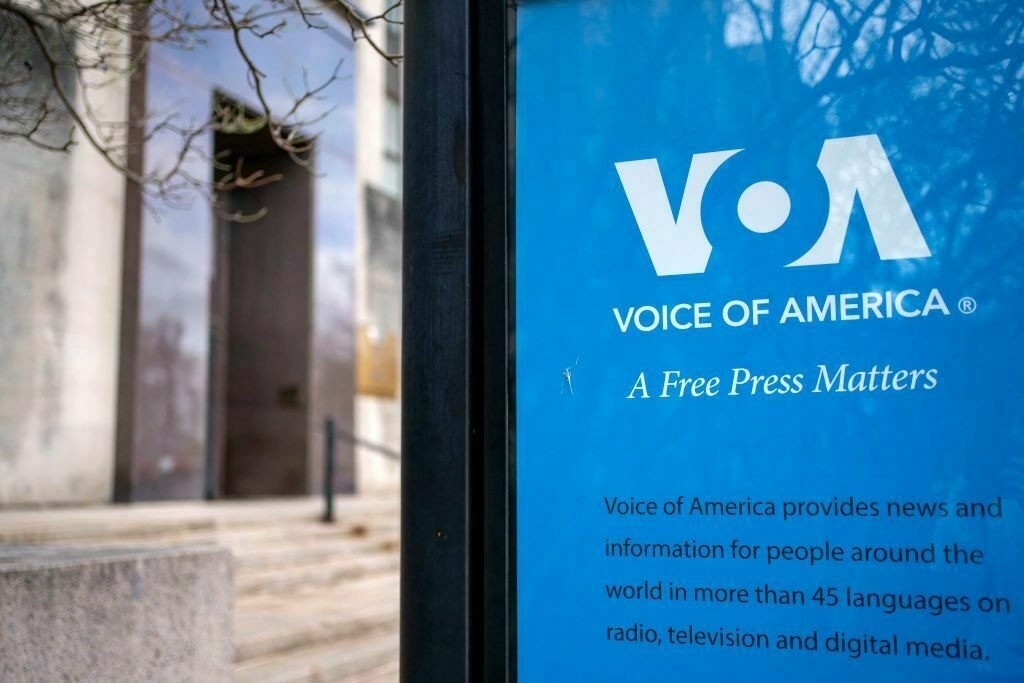
Voice of America (VoA) journalists sued the Trump administration on March 21, accusing it of unlawfully shutting down the U.S.-funded network that for decades has supplied news around the world.
The lawsuit comes after U.S. President Donald Trump signed an executive order to gut funding for U.S. Agency for Global Media (USAGM), which oversees Voice of America and Radio Free Europe/Radio Liberty (RFE/RL).
Earlier, RFE/RL sued the United States Agency for Global Media (USAGM) over the termination of grant funding, arguing that the step violates federal laws and the Constitution.
The lawsuit was brought against the USAGM and Kari Lake, who works as Trump’s special adviser there, by six VoA reporters together with an international non-profit and non-governmental organization Reporters Without Borders and unions representing federal employees, journalists, and foreign policy staffers in the U.S.
“Waste, fraud, and abuse run rampant in this agency and American taxpayers shouldn’t have to fund it,” Lake said as she announced the cuts on March 15.
As a result of the move, more than 900 full-time network employees were placed on indefinite leave and 550 contractors were terminated from their jobs, NPR reported.
According to NPR, at least two unnamed reporters who filed a suit might be forced to return to their home counties if USAGM is not operational, where they face risk of prosecution.
Trump’s crackdown against RFE/RL and VoA has been celebrated by Russian propagandists, who long saw free media as their main threat.
RFE/RL sues Trump administration over funding cutsRadio Free Europe/Radio Liberty (RFE/RL) sued the United States Agency for Global Media (USAGM) on March 18 over the termination of grant funding, calling the action unconstitutional.The Kyiv IndependentMartin Fornusek
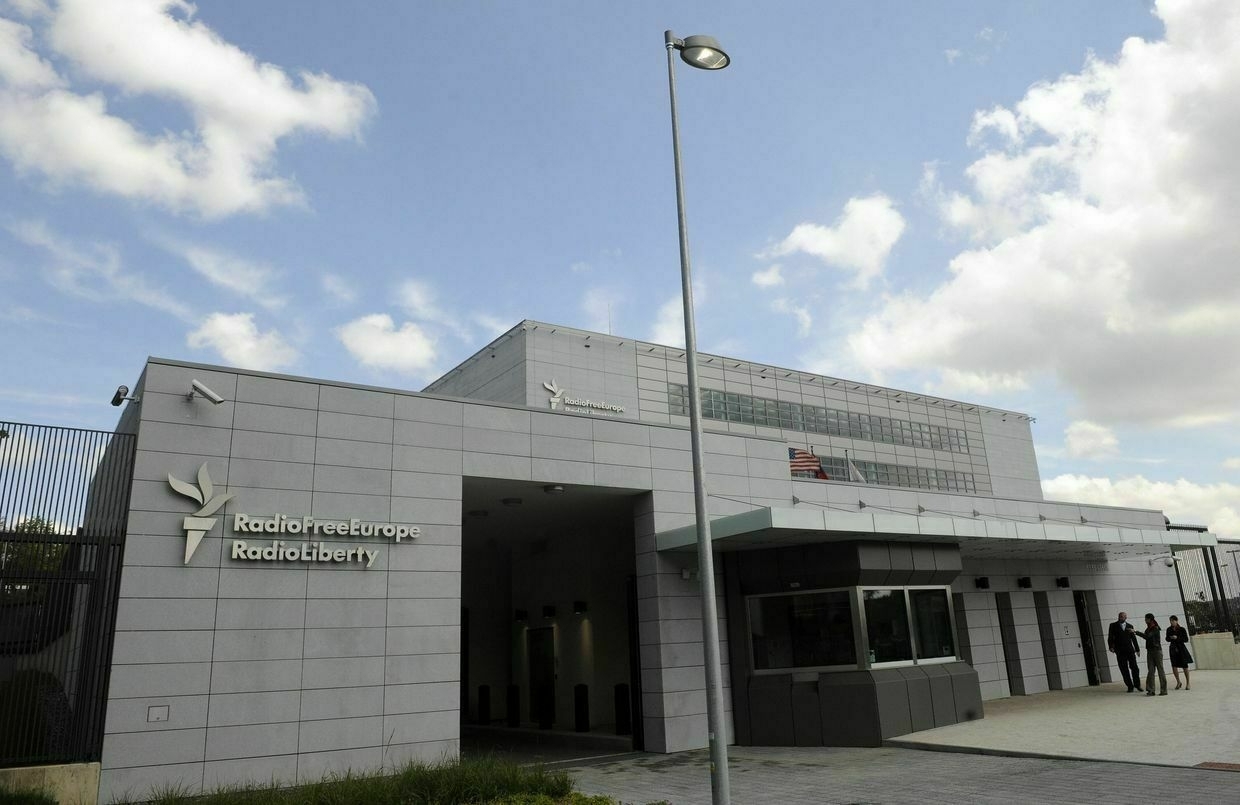
-
Trump's envoy Witkoff claims Ukraine will hold presidential elections
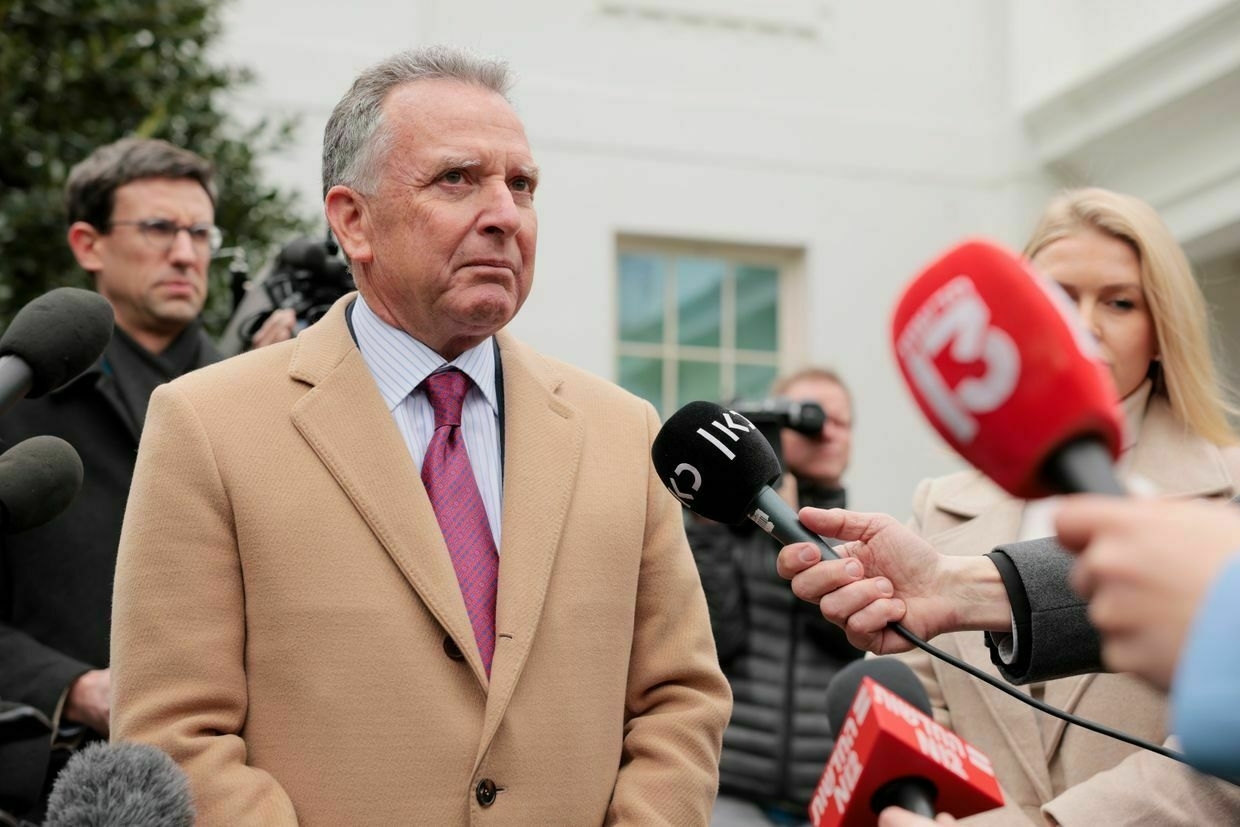
U.S. President Donald Trump’s special envoy to the Middle East, Steve Witkoff, told American journalist Tucker Carlson in an interview on March 21 that Ukraine’s leadership has agreed to hold a presidential election.
Carlson echoed a Russian narrative saying that Moscow considers President Volodymyr Zelensky “not elected” and, therefore, “can’t sign any kind of treaty.”
“Do you think there will be elections in Ukraine?” Carlson asked. “Yes. There will be. They’ve agreed to it. There will be elections in Ukraine,” Witkoff responded without providing further details.
The Kyiv Independent could not immediately verify these claims.
The Kremlin has long tried to portray Zelensky as illegitimate to undermine Kyiv.
On Feb. 18, Kremlin spokesperson Dmitry Peskov said Russian President Vladimir Putin is ready for talks with Zelensky but insisted that “legal aspects related to his legitimacy” must be considered. Meanwhile, Putin himself has ruled Russia for over 20 years.
Ukraine has not held elections during Russia’s full-scale war because they are prohibited under martial law, which was declared on Feb. 24, 2022, just hours after the invasion began. Ukrainian law also requires elections to be safe, equal, and uninterrupted—conditions that are impossible to meet while Russia continues its attacks on civilians and critical infrastructure.
Witkoff also noted that he is completely certain Russia will not attack Europe, dismissing concerns about a potential Russian advance across the continent as unfounded.
Confused about Zelensky’s legitimacy? Here’s what you need to knowU.S. President Donald Trump claimed on Feb. 19 that President Volodymyr Zelensky was a “modestly successful comedian” turned “dictator” who “refused to have elections.” This was the latest in a series of false accusations Trump has made about Ukraine while his team is engaging in peace negotiations…The Kyiv IndependentElsa Court
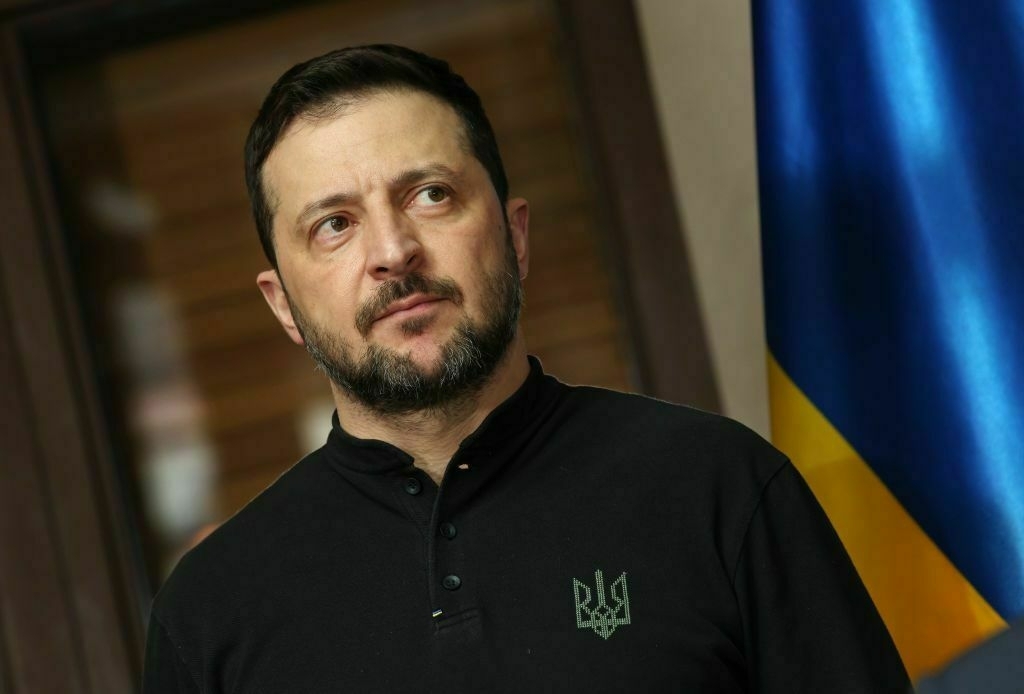
-
Blitz: “I would say to Trump - Ukraine must win!”
-
Ukraine war latest: Kavkazskaya oil facility still burning; Ukraine returns over 4,000 POWs from Russian captivity since 2022
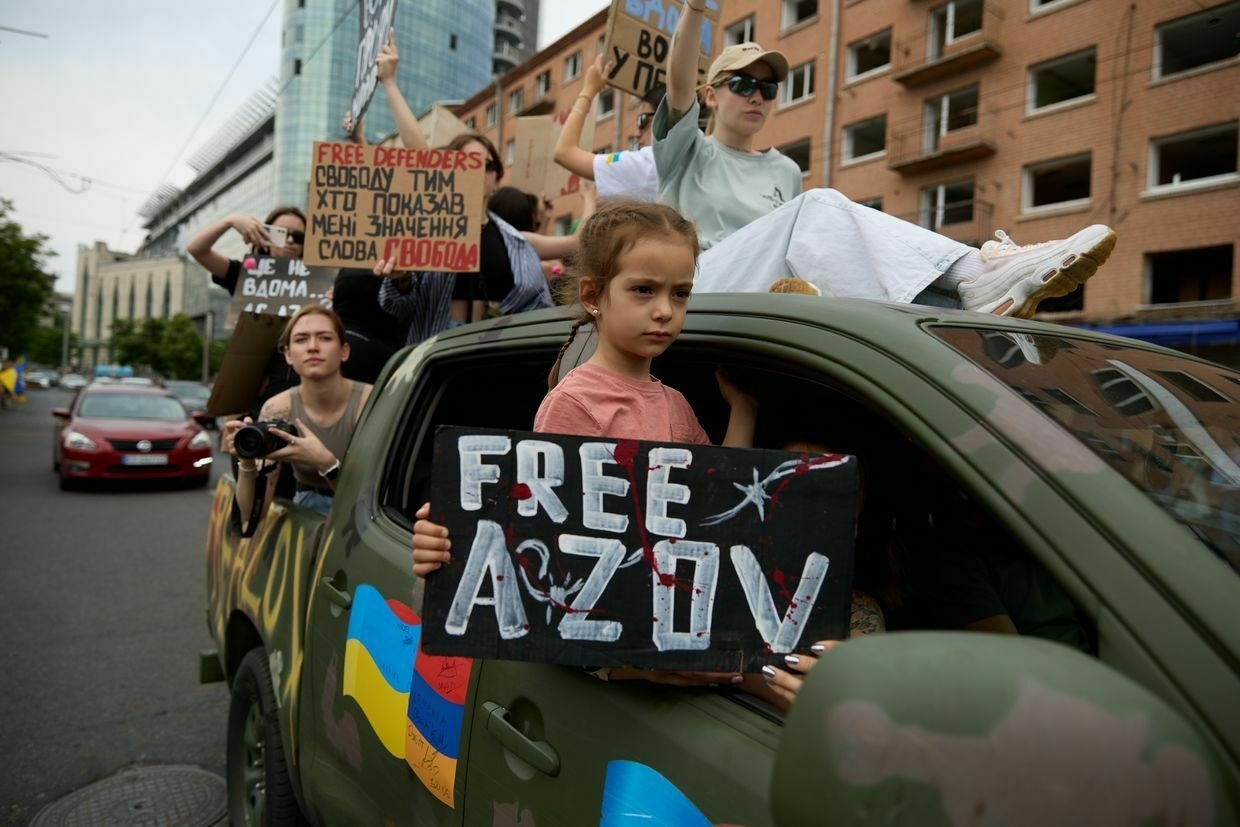
Key developments on March 21:
- Zelensky, Pavel meet in Kyiv to discuss security guarantees for Ukraine
- Ukraine has brought back over 4,000 prisoners of war from Russian captivity since start of full-scale invasion, Zelensky says
- Russia’s Kavkazskaya oil facility still burning after two days, more explosions reported
- Ukraine accuses Russia of false flag attack on Sudzha gas metering station in Kursk Oblast
- Trump says ‘dividing up lands’ within negotiations between Russia, Ukraine ‘is being negotiated as we speak’
- UK discussing deploying fighter jets to Ukraine under potential peace deal, Telegraph reports
President Volodymyr Zelensky discussed the war with Russia and European efforts to provide security guarantees for Ukraine during the meeting with his Czech counterpart Petr Pavel in Kyiv on March 21.
Pavel arrived in Kyiv earlier in the day. The day prior, the Czech president met with Ukrainian officials in Odesa.
During Pavel’s visit to Odesa, Russia launched Shahed-type drones at the city. Three people were injured during the attack, and civilian infrastructure was damaged.
Pavel and Zelensky discussed the situation on the front line, European efforts to gain security guarantees for Ukraine, and cooperation in defense production.
The Ukrainian president also thanked Pavel for the Czech contribution to the UK-led "coalition of the willing."
The parties also agreed to open a Unity Center for Ukrainians in Prague.
"Thank you for your visit and cooperation. Today, we signed a joint statement on strategic partnership between our countries. This reflects the real level of our relations. Thank you for this. Thank you for the Czech initiative and for all the help you have given to our people," Zelensky said.
The Czech Republic has been one of the most committed supporters of Ukraine since the beginning of Russia's full-scale invasion in February 2022.
In July 2024, Ukraine and Czechia signed a 10-year bilateral security deal.
According to the agreement, Czechia and Ukraine are expected to boost cooperation in the military tech sphere, including the production of ammunition, small arms, drones, electronic warfare, and heavy equipment.
The two countries also plan to set up joint enterprises and continue annual training of up to 4,000 Ukrainian military personnel.
Ukraine has brought back over 4,000 prisoners of war from Russian captivity since start of full-scale invasion, Zelensky saysUkraine has returned 4,306 prisoners of war (POWs) from Russian captivity since the start of the full-scale invasion, President Volodymyr Zelensky announced on March 21.
The Ukrainian government has been engaging with foreign partners and international organizations to return Ukrainian citizens home. In 2024, Ukraine managed to return 1,358 people from Russian captivity.
"Now, when we talk to the American side and our other partners about how to end the war, we talk about the release of prisoners as one of the first steps," Zelensky said.
The president emphasized that all the necessary services are working to bring Ukrainians back from Russian captivity.
Zelensky's statement came shortly after Ukraine brought home 197 Ukrainian soldiers. One hundred seventy-five of them were returned as part of the one-for-one exchange with Russia, and another 22 Ukrainian service members were returned through negotiations outside of the swap.
The swap was negotiated by U.S. President Donald Trump and Russian President Vladimir Putin on March 18.
Following a call with Trump, the Kremlin announced that it would conduct a one-for-one prisoner exchange with Ukraine. Moscow also claimed that it would release 23 severely wounded Ukrainian soldiers, but only transferred 22.
Trump’s push for regime change in Ukraine has only boosted ZelenskyThe debate over Ukraine’s elections and future leadership is intensifying. With peace talks gaining momentum, calls for elections are growing louder, and both the Russian and American sides are questioning Ukrainian President Volodymyr Zelensky’s legitimacy. However, criticism from the Kremlin and t…The Kyiv IndependentOlena Yermakova
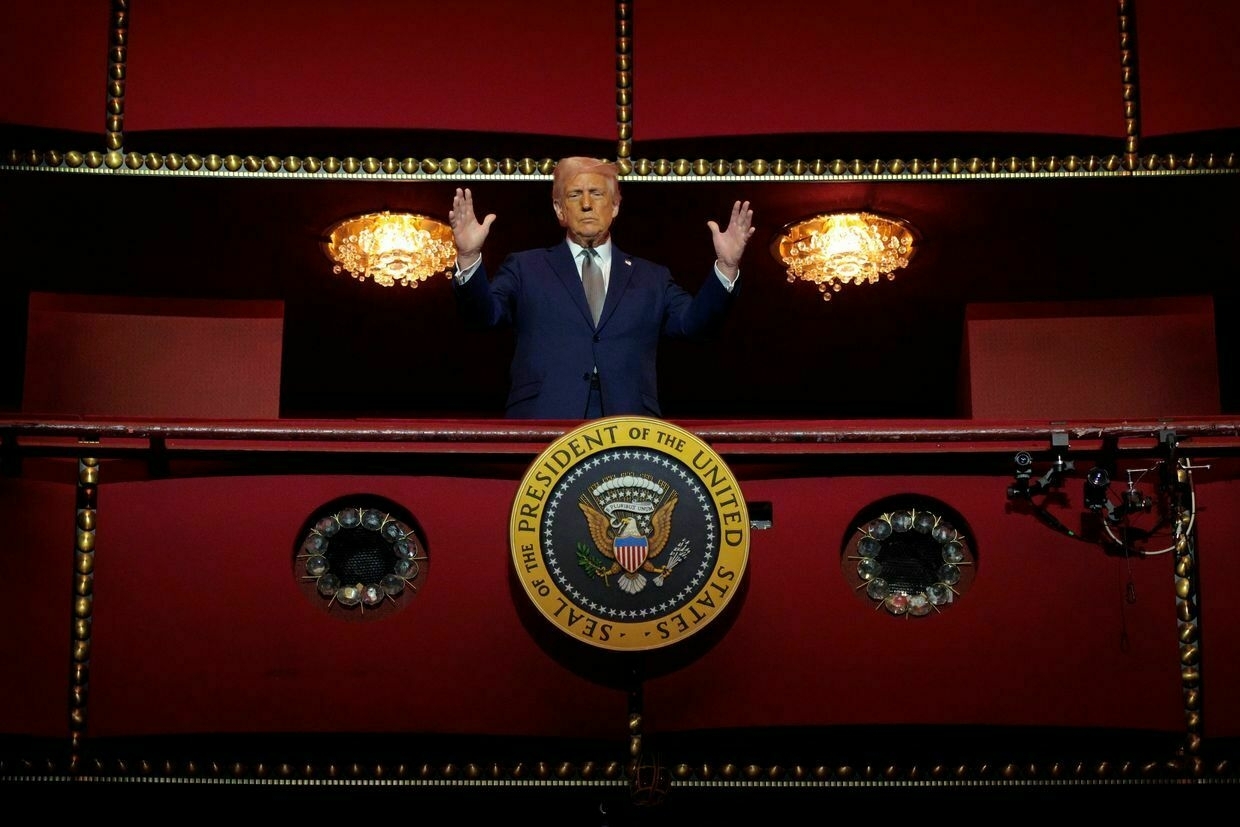
Russia's Kavkazskaya oil facility still burning after two days, more explosions reportedA Russian oil pumping station Krasnodar Krai is still on fire after reportedly being struck by Ukrainian drones on March 19, with further explosions reported overnight.
"During the extinguishing process, due to depressurisation of the burning tank, there was an explosion of oil products and release of burning oil," regional officials said in a post on Telegram on March 21.
Ukrainian drones attacked the Kavkazskaya oil pumping station, damaging infrastructure and causing a fire, pro-Kremlin news outlet Shot and regional authorities previously claimed.
The attack reportedly damaged a pipeline connecting storage tanks, initially sparking a fire that covered an area of about 20 square meters.
The fire now covers an area of 10,000 square meters and two firefighters have been injured while tackling the blaze.
The regional operational headquarters said on March 19 that 30 on-duty personnel were evacuated and that the facility had suspended operations.
The Kavkazskaya oil transshipment point is crucial in Russia's energy exports, connecting a railroad oil terminal and the Kropotkinskaya oil pumping station. It is part of the Caspian Pipeline Consortium system, which pumps up to 6 million metric tons of oil annually.
The Ukrainian military has not commented on the reported attacks. Russia has attempted to use the attack as evidence that Ukraine has already broken a partial ceasefire agreed upon by Russian President Vladimit Putin in a call with U.S. President Donald Trump on March 18.
"We believe that the Kyiv regime has already broken the ceasefire proposed by the U.S. president," Russian Foreign Ministry spokesperson Maria Zakharova said on March 20, in comments reported by Reuters.
Despite Zakharova's comments, Russia has not relented in its attacks on civilian targets in Ukraine, and continues to launch hundreds of kamikaze drones at cities across the country each night.
The strike on the Kavkazskaya oil pumping station follows Ukraine's Feb. 17 drone attack on the Kropotkinskaya oil pumping station, also in Krasnodar Krai, where seven drones reportedly hit key infrastructure.
Kyiv has intensified its campaign against Russia's energy and military infrastructure to disrupt Moscow's war effort. On March 17, Ukrainian drones struck a fuel and energy facility in Russia's Astrakhan Oblast, igniting a fire, regional Governor Igor Babushkin claimed.
‘Match made in heaven’ — Why the US will fail to drive a wedge between Russia, ChinaIt’s no secret that U.S. officials have been trying to drive a wedge between Russia and its key ally, China. Former United States Special Envoy for Ukraine and Russia Keith Kellogg was among the government officials who made the intention public, saying that the U.S. would try toThe Kyiv IndependentKarol Luczka
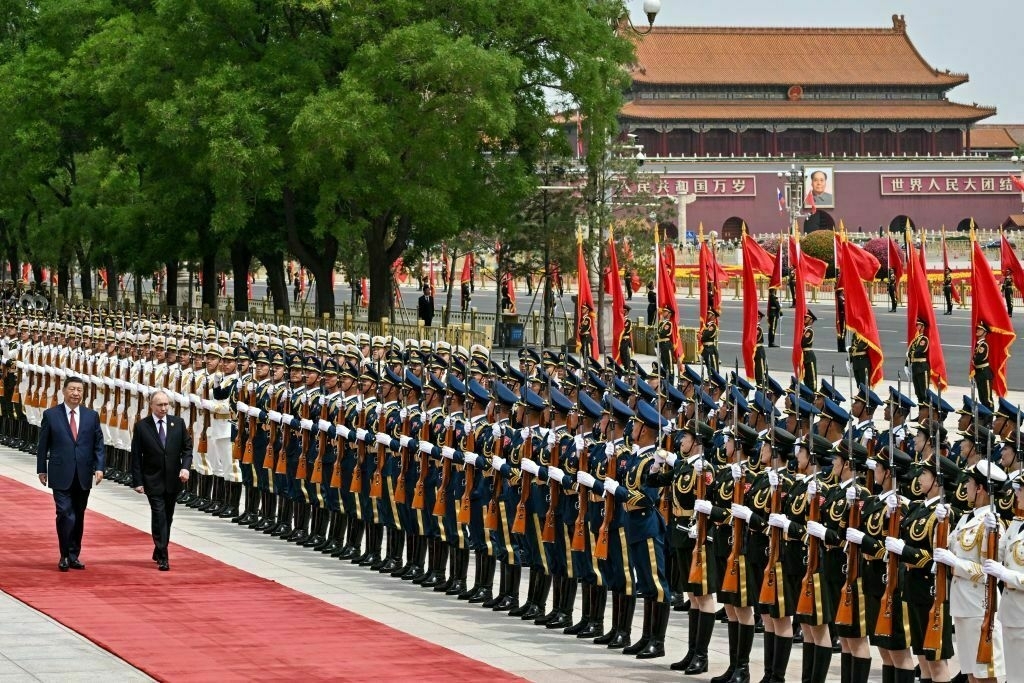
Ukraine accuses Russia of false flag attack on Sudzha gas metering station in Kursk OblastUkraine on March 21 accused Russia of deliberately attacking the Sudzha gas metering station in Kursk Oblast in an attempt to pin the blame on Kyiv.
Russian media earlier claimed Ukrainian forces had struck the key gas transit facility, which plays a crucial role in Russian gas exports to Europe.
The Russian Defense Ministry claimed that Ukraine allegedly planned to blow up the station, accusing Kyiv of orchestrating a "provocation."
In a post on Facebook, the General Staff said the accusations were "baseless," and part of a "discrediting campaign against Ukraine."
"The mentioned station was repeatedly shelled by the Russians themselves," it added.
According to the Ukrainian military, Russia had previously struck the same station with guided aerial bombs, including an attack three days ago.
The General Staff also claimed that Russian forces had used the main gas pipeline near the facility to conceal troop movements.
"The Russians continue to produce numerous fakes and seek to mislead the international community. We ask you to trust only official sources, verify the information, and not succumb to manipulation," the statement added.
Earlier this month Ukraine released video of what it said were Russian sabotage and assault groups using a gas pipeline to gain a foothold on the outskirts of Sudzha in Russia's Kursk Oblast.
The latest incident comes as Ukraine confirmed its retreat from the town of Sudzha following a rapid Russian advance.
Kyiv initially launched a cross-border incursion into Kursk Oblast in August 2024 but has reportedly lost much of the territory in recent weeks.
Trump says 'dividing up lands' within negotiations between Russia, Ukraine 'is being negotiated as we speak'U.S. President Donald Trump said on March 21 that as part of the negotiations to end the war, the parties will have an agreement on territorial division.
Trump's statement comes ahead of the U.S. separate talks with Russia and Ukraine scheduled for March 24 in Saudi Arabia.
"Pretty soon, we'll have a full ceasefire, and then we're going to have a contract," Trump said during a press briefing, adding that the future deal includes "dividing up the lands."
"It's being negotiated as we speak," Trump said without specifying the format of the talks.
During the briefing, Trump also dodged a question about imposing new sanctions on Russia as it continues to attack Ukraine.
"Well, they're fighting against each other," Trump said.
Russia occupied and illegally annexed Crimea at the start of its war against Ukraine in 2014. After the outbreak of the full-scale invasion in 2022, Moscow also illegally declared annexation of partially occupied Donetsk, Luhansk, Zaporizhzhia, and Kherson oblasts.
President Volodymyr Zelensky has rejected recognizing Russian occupation of Ukrainian territories in any peace talks, calling it a "red line" that Kyiv will not cross. Ukraine's Constitution states that the "territory of Ukraine within its present border is indivisible and inviolable."
The Semafor outlet reported earlier this week that the Trump administration is considering recognizing Crimea as part of a peace deal. Washington has not confirmed this claim.
‘Conditions for Ukraine’s surrender’ — Why Putin’s demands for ceasefire make no senseRussian President Vladimir Putin’s conditions for a ceasefire are unrealistic and tantamount to demanding that Ukraine disarm itself and surrender, analysts say. Putin said on March 13 that Russia was ready to agree to the U.S.-backed 30-day-long ceasefire in Ukraine but then followed by listing a…The Kyiv IndependentOleg Sukhov
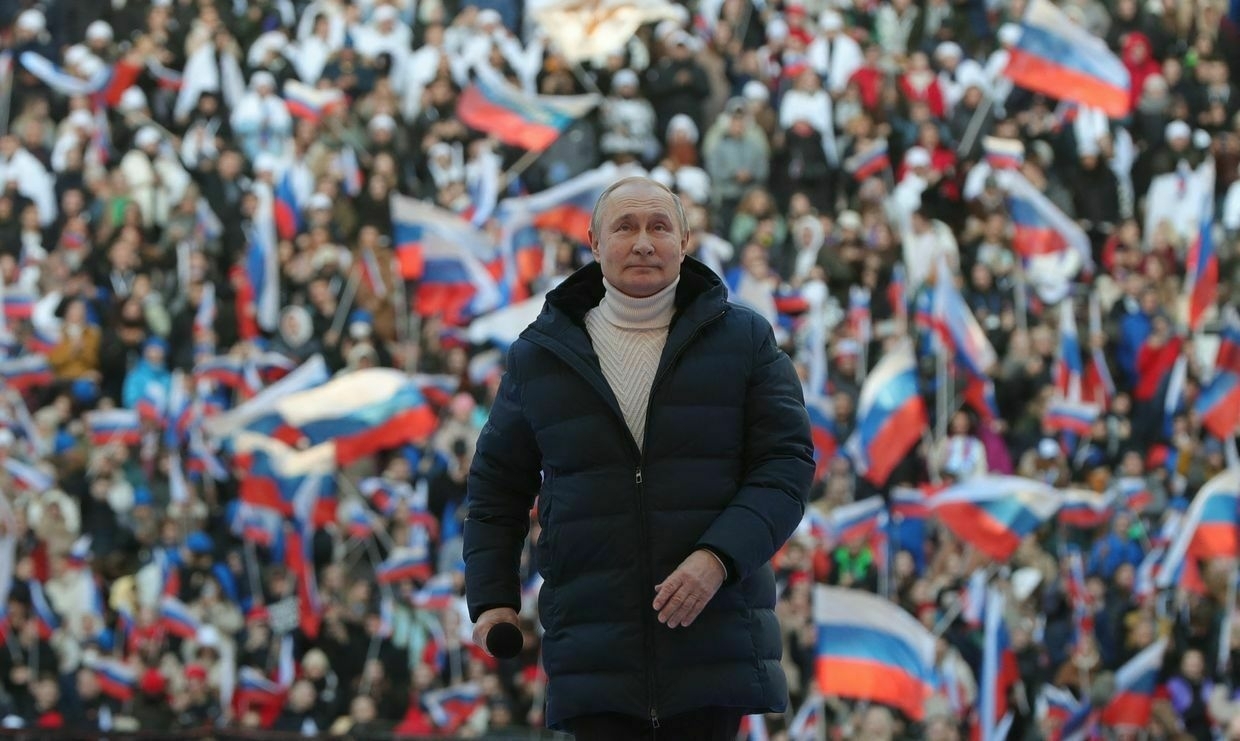
UK discussing deploying fighter jets to Ukraine under potential peace deal, Telegraph reportsBritish military leaders have discussed deploying Royal Air Force (RAF) fighter jets to Ukraine as part of a potential peace agreement, the Telegraph reported on March 20, citing unnamed sources familiar with the matter.
According to the report, the discussion took place at the Permanent Joint Headquarters, which oversees all of Britain's overseas military operations.
The plan is part of a broader "coalition of the willing" initiative led by the U.K. and France, aimed at providing security guarantees to Kyiv.
The peacekeeping initiative was first introduced by British Prime Minister Keir Starmer during a March 2 summit in London, where leaders from European nations and Canada discussed military support for Ukraine.
Starmer participated in additional talks at Northwood Headquarters, hosted by Lt. Gen. Nick Perry, the chief of joint operations, alongside representatives from over 30 countries.
A senior RAF source told the Telegraph that providing "overhead cover" was a key topic of discussion, particularly in scenarios where British troops might enter Ukraine.
The RAF could reportedly deploy either Typhoon or U.S.-made F-35 fighter jets to conduct air patrols, given their advanced air-to-air capabilities.
Starmer has pledged that British forces would be involved in securing a peace deal if U.S. President Donald Trump successfully negotiates one with Russian President Vladimir Putin.
Washington has backed the idea of European-led peacekeeping forces monitoring a potential ceasefire but has not offered concrete security guarantees to Ukraine.
More than 30 countries have expressed willingness to contribute to a peacekeeping force, with the U.K. and France leading the initiative.
Canada and Australia have also indicated their openness to participating, according to Starmer's office. Trump previously claimed on Feb. 24 that Putin would allow European peacekeepers to operate in Ukraine as part of a settlement, though Russian Foreign Minister Sergey Lavrov publicly rejected the idea.
Note from the author:
Ukraine War Latest is put together by the Kyiv Independent news desk team, who keep you informed 24 hours a day, seven days a week. If you value our work and want to ensure we have the resources to continue, join the Kyiv Independent community.
-
Ukraine has brought back over 4,000 prisoners of war from Russian captivity since start of full-scale invasion, Zelensky says
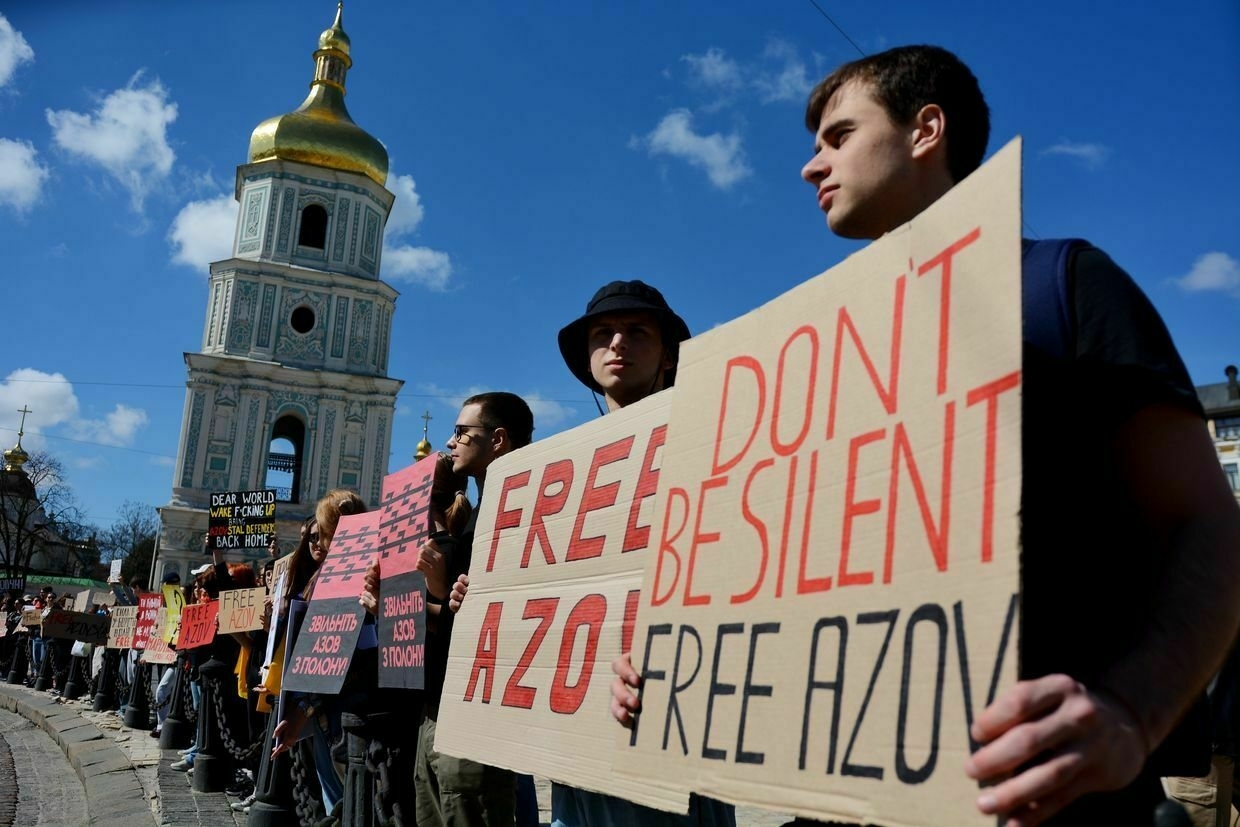
Ukraine has returned 4,306 prisoners of war (POWs) from Russian captivity since the start of the full-scale invasion, President Volodymyr Zelensky announced on March 21.
The Ukrainian government has been engaging with foreign partners and international organizations to return Ukrainian citizens home. In 2024, Ukraine managed to return 1,358 people from Russian captivity.
“Now, when we talk to the American side and our other partners about how to end the war, we talk about the release of prisoners as one of the first steps,” Zelensky said.
The president emphasized that all the necessary services are working to bring Ukrainians back from Russian captivity.
Zelensky’s statement came shortly after Ukraine brought home 197 Ukrainian soldiers. One hundred seventy-five of them were returned as part of the one-for-one exchange with Russia, and another 22 Ukrainian service members were returned through negotiations outside of the swap.
The swap was negotiated by U.S. President Donald Trump and Russian President Vladimir Putin on March 18.
Following a call with Trump, the Kremlin announced that it would conduct a one-for-one prisoner exchange with Ukraine. Moscow also claimed that it would release 23 severely wounded Ukrainian soldiers, but only transferred 22.
‘Conditions for Ukraine’s surrender’ — Why Putin’s demands for ceasefire make no senseRussian President Vladimir Putin’s conditions for a ceasefire are unrealistic and tantamount to demanding that Ukraine disarm itself and surrender, analysts say. Putin said on March 13 that Russia was ready to agree to the U.S.-backed 30-day-long ceasefire in Ukraine but then followed by listing a…The Kyiv IndependentOleg Sukhov
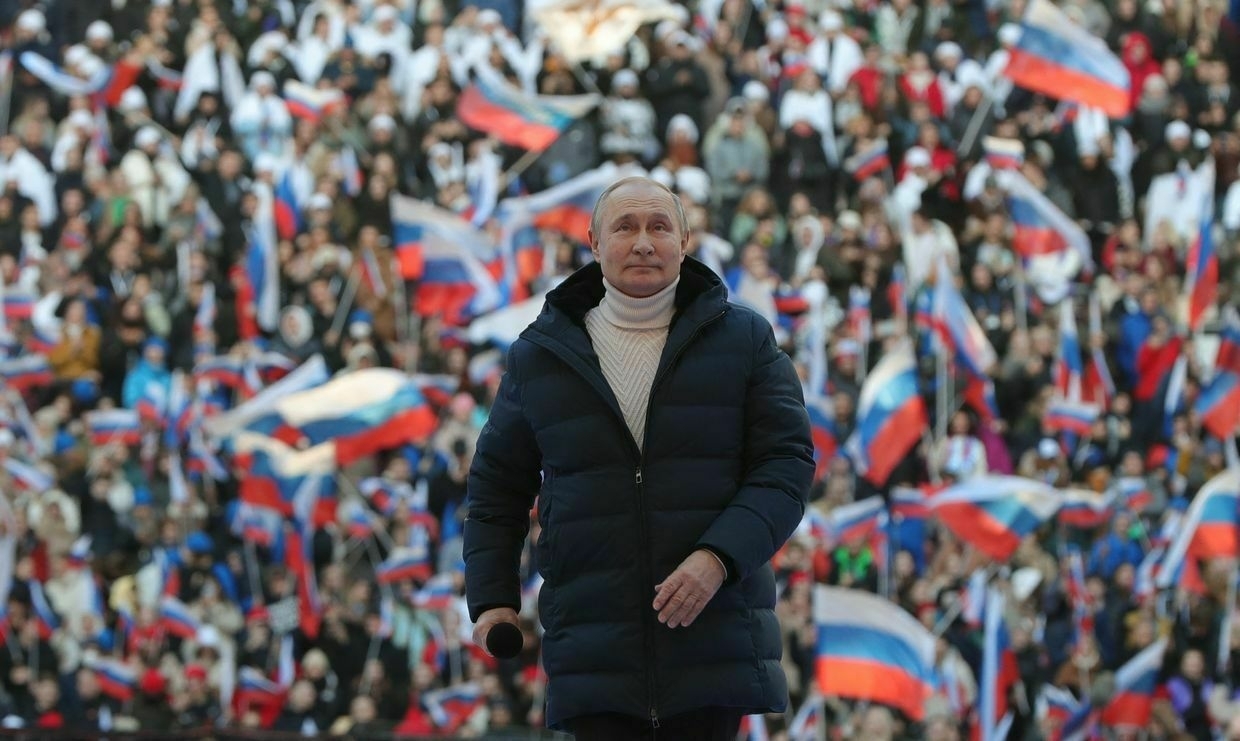
-
‘Match made in heaven’ — Why the US will fail to drive a wedge between Russia, China
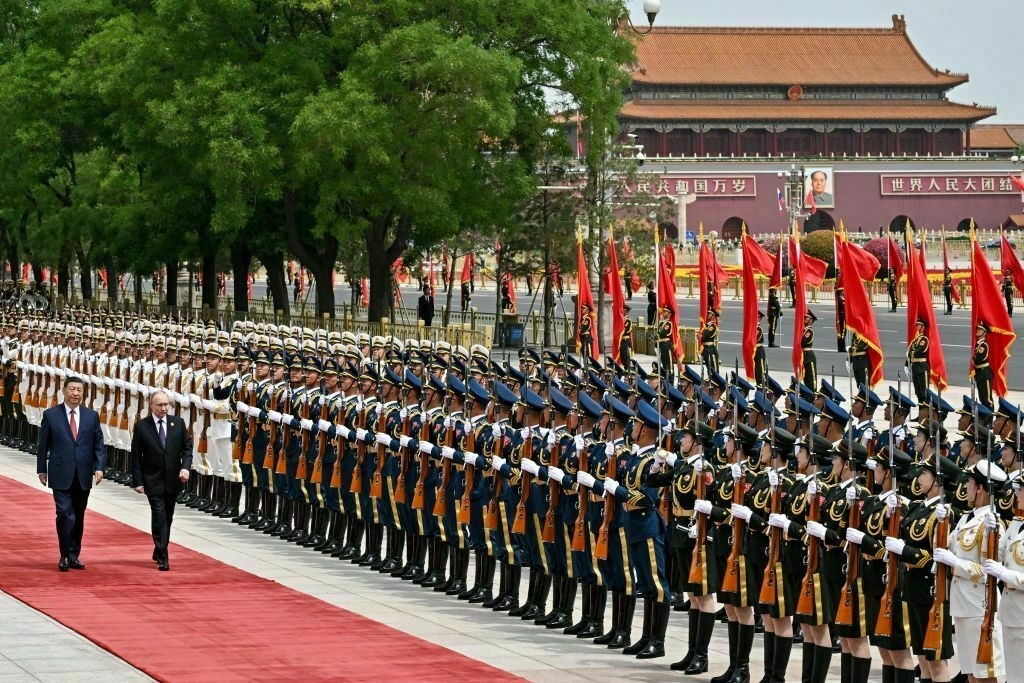
It’s no secret that U.S. officials have been trying to drive a wedge between Russia and its key ally, China.
Former United States Special Envoy for Ukraine and Russia Keith Kellogg was among the government officials who made the intention public, saying that the U.S. would try to “break (Vladimir) Putin’s alliances."
Kellogg was later demoted, with the word Russia removed from his job title.
U.S. State Secretary Marco Rubio echoed Kellogg’s sentiment, saying that having a relationship with Russia would allow Moscow to be less dependent on China. Yet, the state secretary was a bit more realistic in his expectations.
“I don’t know if we’ll ever be successful completely at peeling them off of a relationship with the Chinese,” Rubio told far-right Breitbart News on Feb. 25.
Dubbed the “reverse Kissinger” (or reverse Nixon), experts say the strategy envisions the U.S. playing on tensions between Moscow and Beijing. They also say it’s a fundamentally flawed approach.
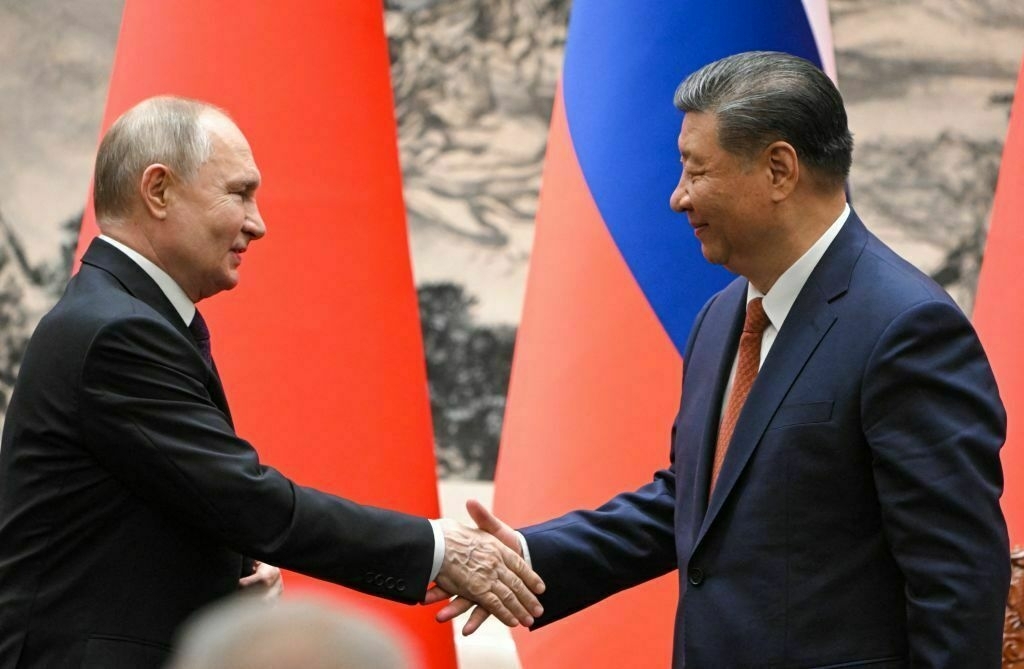
Russia’s President Vladimir Putin and China’s President Xi Jinping shake hands during a signing ceremony following their talks in Beijing on May 16, 2024. (Sergei Guneyev/POOL/AFP via Getty Images) For Russia and China, international law is “built in an unfair way, excluding China, Russia and other countries from decision-making on the international arena,” Temur Umarov, a research fellow at the Berlin-based Carnegie Russia Eurasia Center, told the Kyiv Independent.
“They think this system should be reformed, and they see themselves as alternative centers to Washington."
This relationship is a “match made in heaven,” he added.
‘Conditions for Ukraine’s surrender’ — Why Putin’s demands for ceasefire make no senseRussian President Vladimir Putin’s conditions for a ceasefire are unrealistic and tantamount to demanding that Ukraine disarm itself and surrender, analysts say. Putin said on March 13 that Russia was ready to agree to the U.S.-backed 30-day-long ceasefire in Ukraine but then followed by listing a…The Kyiv IndependentOleg Sukhov
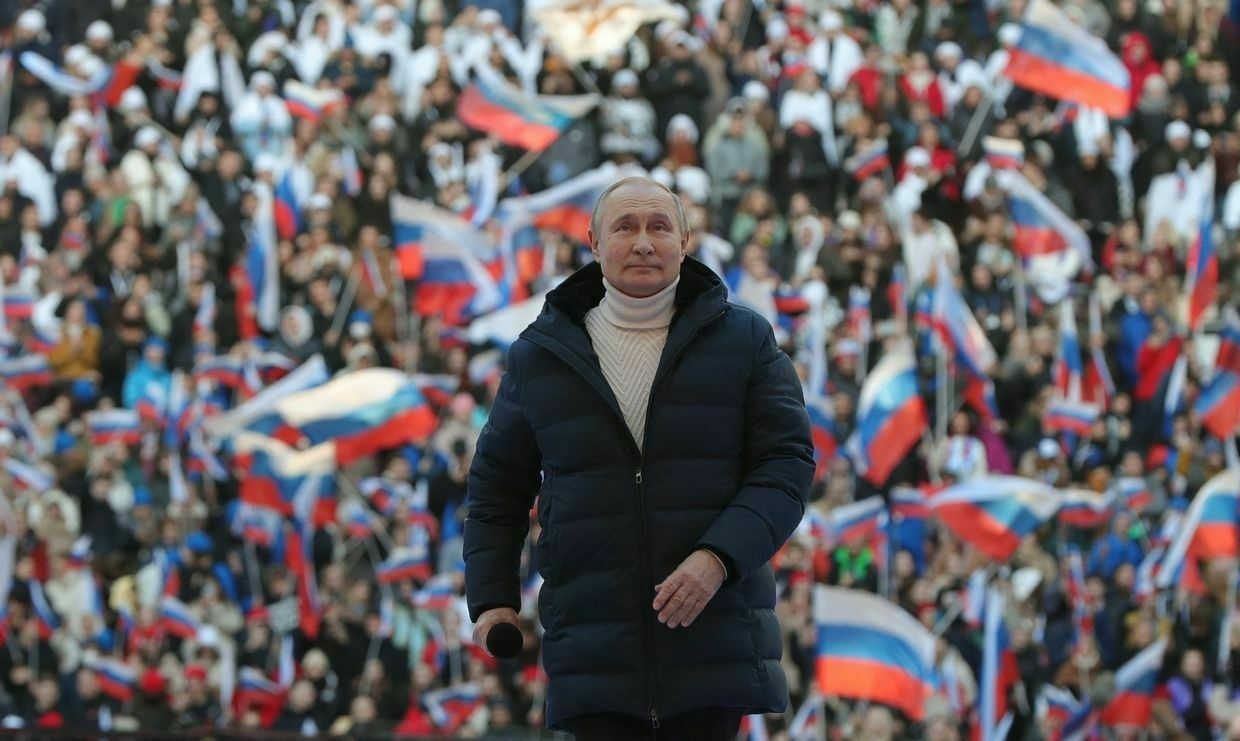
A fundamentally flawed strategyDecades ago, the United States embarked on a charm offensive in an attempt to capitalize on the Sino-Soviet split. Then President Richard Nixon’s photogenic 1972 visit to China featured the U.S. leader exchanging warm smiles with Chinese tyrant Mao Zedong.
This visit was far more than pictures.
Spearheaded by then-State Secretary Henry Kissinger, these contacts helped warm relations between the U.S. and China, leaving the USSR isolated in the face of the new Chinese-American friendship.
Sign up for our newsletterWTF is wrong with Russia?<span data-sanitized-id="wtfr-snippet-info" data-sanitized-class="wtfr-snippet__info"></span> <button data-sanitized-id="wtfr-snippet-subscribe-btn" data-sanitized-class="wtfr-snippet__form-btn"> <span data-sanitized-class="wtfr-snippet__form-label">Sign up</span> </button> </div>Fast forward to 2025, the question asked by experts worldwide is whether Donald Trump is trying to repeat Nixon's 1970s experiment the other way around — pulling a weaker Russia away from a much more powerful China.
The answer to that question, for now, is a flat no.
Five decades ago, the USSR and China were in the middle of a major split, culminating in armed combat across their border on the Amur River. In 2025, Russia and China show no signs of wanting to loosen their friendship.
A 'match made in heaven' with few weak spotsLike any relationship, the Chinese-Russian one is not perfect. One point of divergence, according to Brookings Institution researcher Patricia Kim, who spoke with the Kyiv Independent, is Russia's increasingly warm relations with North Korea.
"(Pyongyang) is providing lethal assistance to Russia in its war against Ukraine in return for military technology assistance, which makes China nervous," Kim explained.
Kim added that Beijing was also interested in acting as an intermediary in negotiations on the war in Ukraine, so direct contacts between Russia and the U.S. make China worried about being sidelined in the process.
Links between Moscow and Beijing are, however, much stronger than any potential disagreements that the two sides could have. Beyond their anti-Western ideologies, Beijing and Moscow are strongly linked to one another through their economies, with Russia exporting oil, gas, and timber in exchange for Chinese manufactured goods.
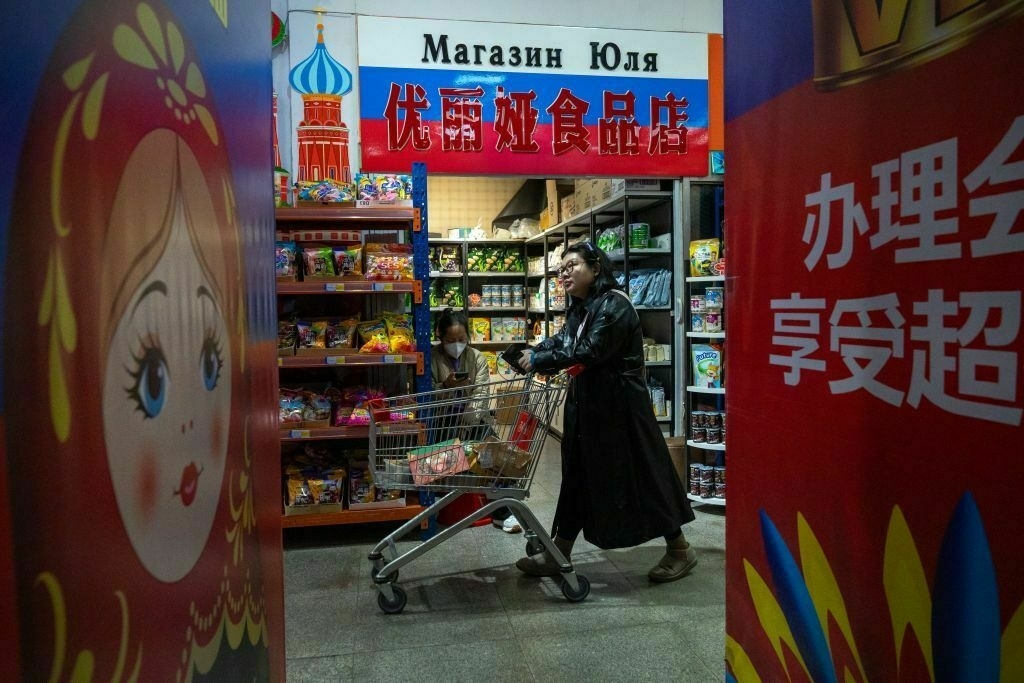
A customer at an Epinduo supermarket in Heihe, Heilongjiang province, China, on Monday, March 20, 2023. (Bloomberg via Getty Images) This interdependency grew especially after the start of Russia's full-scale invasion of Ukraine when the EU introduced sanctions on Russian gas. Three years on, the EU market remains closed, making Beijing one of the few major clients still available.
"China appears satisfied with this arrangement," according to Callum Fraser, a research fellow at the London-based think tank RUSI, who spoke to the Kyiv Independent. "In fact, Beijing can take advantage of Russia's vulnerable position and negotiate discounts on gas," Fraser explained.
As a result, China came to be the dominant player in this economic relationship, buying "as much gas as it needs," according to Fraser, but refusing Moscow's advances to sell more. Chinese leader Xi Jinping, for instance, did not agree to Putin's proposal to build a second leg of the existing Power of Siberia gas pipeline, which links the two countries.
Russian-Chinese cooperation does not end with gas and oil exports.
"China's military industry is based on Soviet-era technologies, and what Russia can provide is something which just fits into China's own military complex," Umarov told the Kyiv Independent.
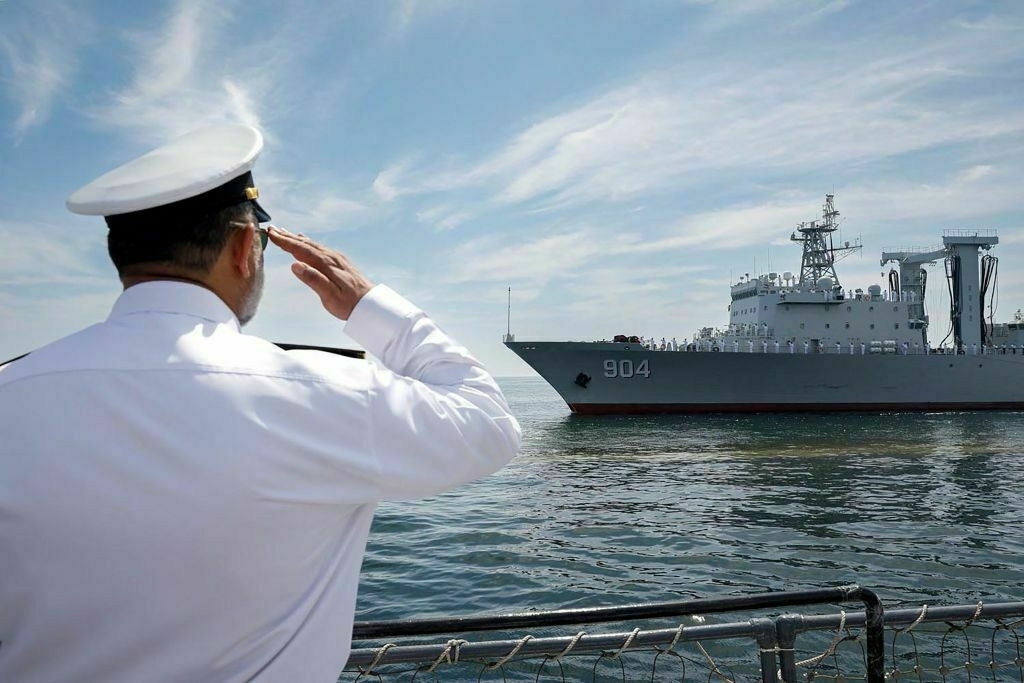
This handout photo made available by the Iranian Army Office on March 12, 2025 shows an unidentified navy officer attending a joint Iranian-Russian-Chinese military drill in the Gulf of Oman. (Iranian Army Office/AFP via Getty Images) Aside from weapons exports, Russia has other technologies inherited from the Soviet Union, such as its nuclear industry. Prior to the full-scale invasion of Ukraine, Russia "didn't really want to share this know-how (with China), but now (Moscow) doesn't really have any other options" due to its international isolation, Umarov explained.
Above the material component, the Russian-Chinese relationship is "driven by Beijing and Moscow's shared antipathy towards a 'Western-dominated' global order," Kim argued in turn.
Putin’s ‘ceasefire’ — Is Russia still attacking Ukraine?Editor’s note: The Kyiv Independent is tracking Russian attacks on civilians, civilian infrastructure, and energy infrastructure from March 19, as it is not clear if strikes launched by Russia overnight on March 18 were launched before or after Putin gave his order to the military to halt attacks.…The Kyiv IndependentChris York
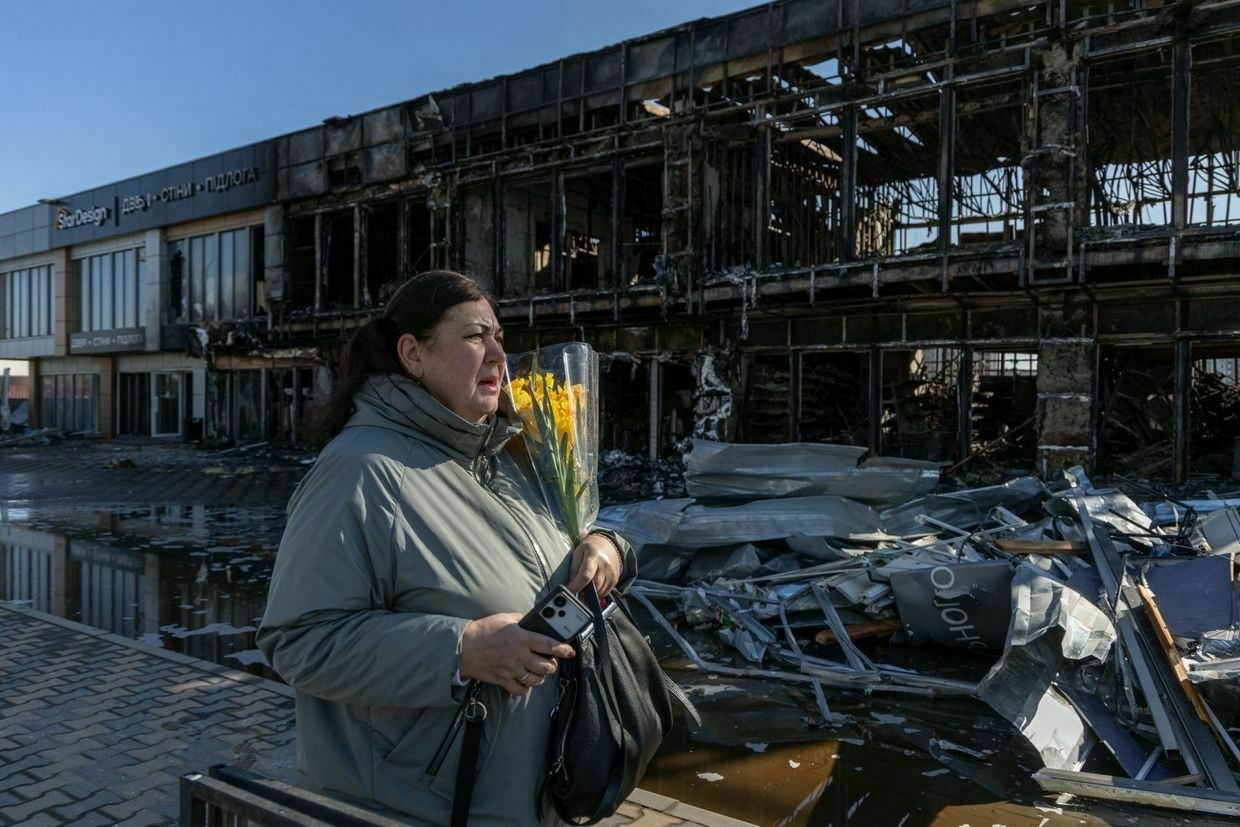
What does Trump want, and can he achieve it?For now, it's "very unclear" what the Trump administration wants to achieve with regards to Russia, Fraser explained to the Kyiv Independent. "Trump wants to get a ceasefire in Ukraine, and he wants to capitalize on the strong relationship which he claims to have with Vladimir Putin, in order to make trade deals."
In any case, any policy to weaken China is well perceived by the new U.S. administration, and warming relations with Russia is just one of the possible steps in this field, Fraser added.
"President Trump clearly sees himself as the ultimate negotiator, and he's made it clear that he wants to strike deals with both Moscow and Beijing," Kim said. "But he has yet to articulate clear views on what precisely he hopes to achieve by talking with both."
The issue with this approach is that China and Russia will not stop perceiving the U.S. as a threat anytime soon, regardless of Trump's views on NATO and American allies in Asia, Kim said. This means that the China-Russia partnership isn't likely to weaken anytime soon, as both sides see too much value in being close to one another.
"Moscow doesn't want to be seen as sacrificing its relationship with China for the sake of being closer to the United States," Umarov said. "For Moscow, this relationship is a strategic interest, and there are many reasons why it's just unimaginable for Russia to turn its back on China."
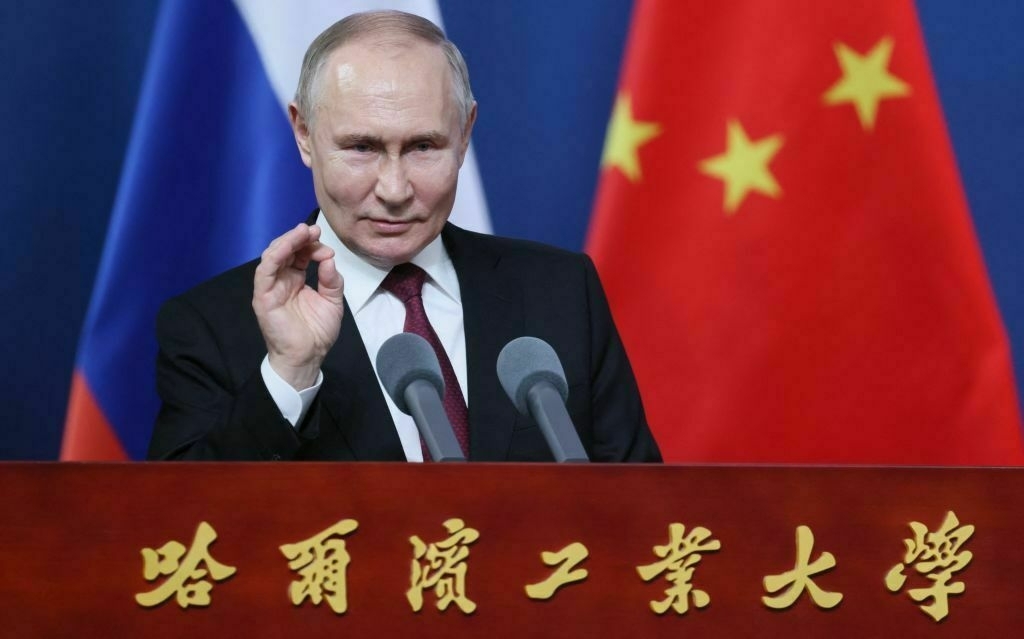
Russia's President Vladimir Putin meets with students at Harbin Institute of Technology in the northeastern city of Harbin on May 17, 2024. (Mikhail Metzel/POOL/AFP via Getty Images) Structural problems in the U.S.-Russia relationship also make it hard to imagine the two countries seriously warming relations. The U.S. simply does not have any strategic, economic, military or political advantages to hand to Russia, at least in comparison with what China can offer, Fraser explained.
One reason for this is that, unlike China, the U.S. does not need Russia's fossil fuel and other raw materials exports, as it can rely on its own reserves.
"None of this is going to disappear just because Donald Trump is posting something which seems to be sympathetic or supportive of Russia's current interests in Ukraine," Umarov argued.
Whatever the war's outcome, the success of an American "reverse Kissinger" strategy is doubtful. "People who are putting these thoughts into policy in the U.S. don't understand the current nature of the relationship between Moscow and Beijing," he added.
Trump wants a ceasefire between Ukraine and Russia – which side would gain more?U.S. President Donald Trump held a phone call with his Russian counterpart Vladimir Putin on March 18 to discuss a U.S.-backed ceasefire proposal. Putin claimed Russia would pause attacks on Ukraine’s energy infrastructure for 30 days, but did not commit to a broader ceasefire. Russia has declinedThe Kyiv IndependentOleg Sukhov
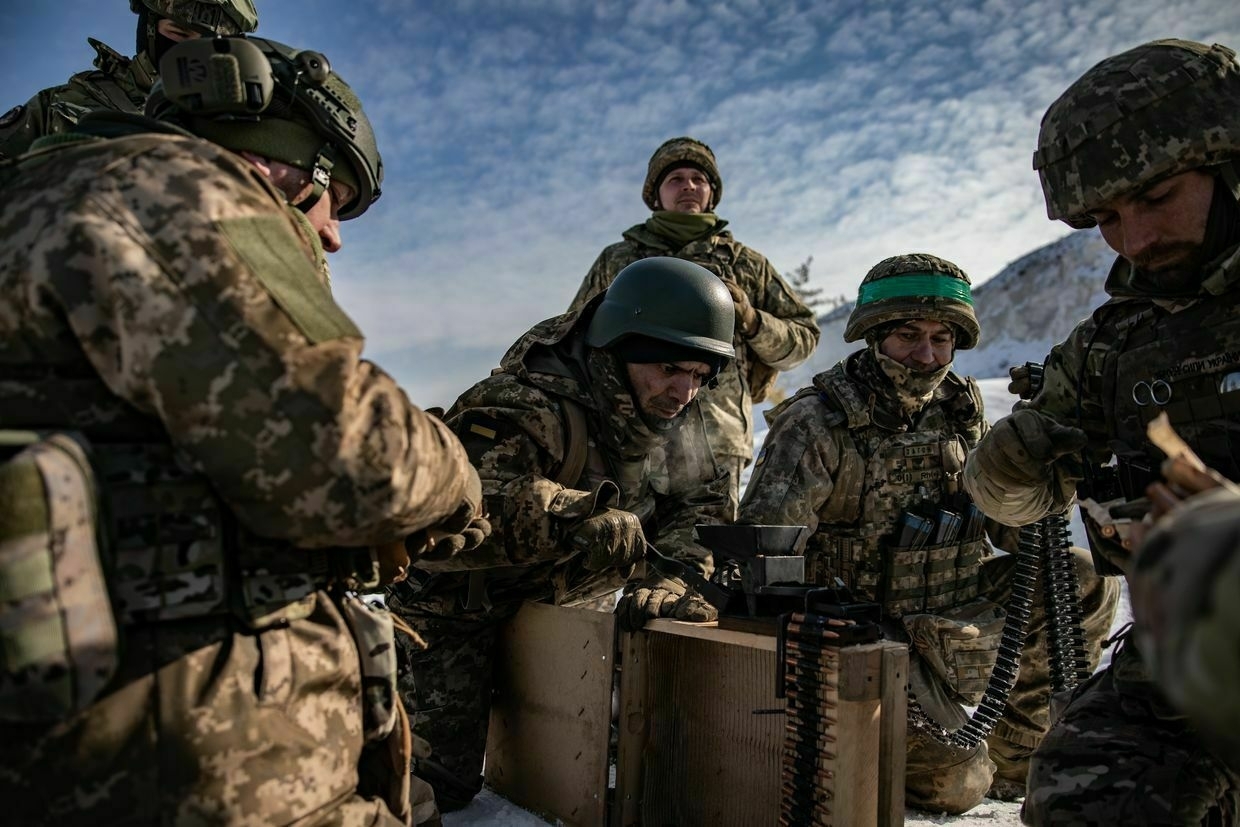
Trump says 'dividing up lands' within negotiations between Russia, Ukraine 'is being negotiated as we speak'
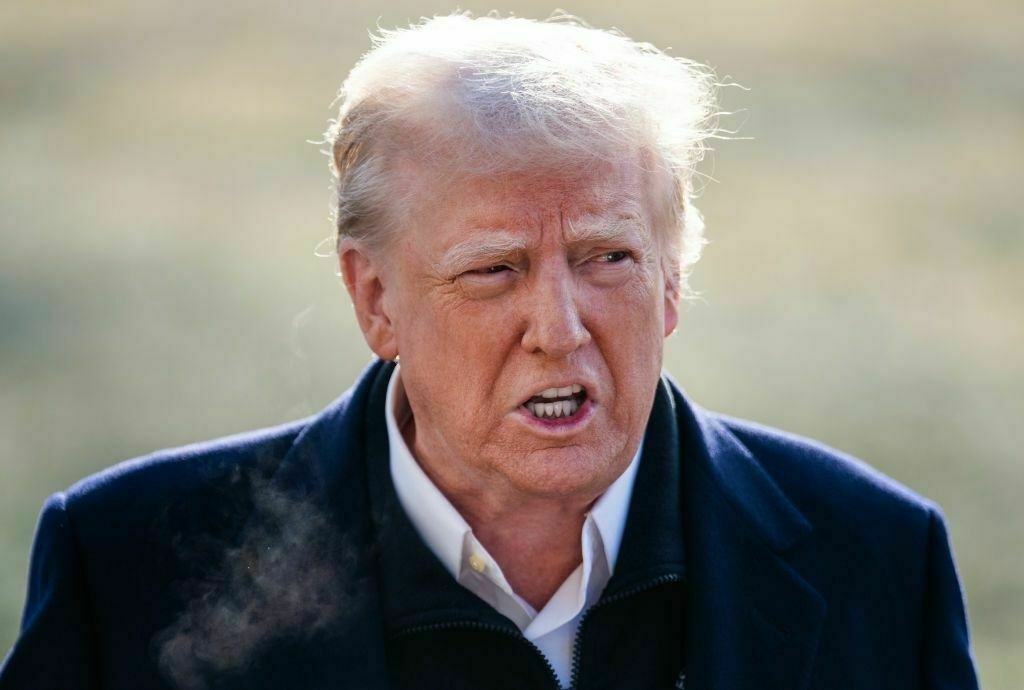
U.S. President Donald Trump said on March 21 that as part of the negotiations to end the war, the parties will have an agreement on territorial division.
Trump’s statement comes ahead of the U.S. separate talks with Russia and Ukraine scheduled for March 24 in Saudi Arabia.
“Pretty soon, we’ll have a full ceasefire, and then we’re going to have a contract,” Trump said during a press briefing, adding that the future deal includes “dividing up the lands."
“It’s being negotiated as we speak,” Trump said without specifying the format of the talks.
During the briefing, Trump also dodged a question about imposing new sanctions on Russia as it continues to attack Ukraine.
“Well, they’re fighting against each other,” Trump said.
Russia occupied and illegally annexed Crimea at the start of its war against Ukraine in 2014. After the outbreak of the full-scale invasion in 2022, Moscow also illegally declared annexation of partially occupied Donetsk, Luhansk, Zaporizhzhia, and Kherson oblasts.
President Volodymyr Zelensky has rejected recognizing Russian occupation of Ukrainian territories in any peace talks, calling it a “red line” that Kyiv will not cross. Ukraine’s Constitution states that the “territory of Ukraine within its present border is indivisible and inviolable."
The Semafor outlet reported earlier this week that the Trump administration is considering recognizing Crimea as part of a peace deal. Washington has not confirmed this claim.
UK discussing deploying fighter jets to Ukraine under potential peace deal, Telegraph reportsThe RAF could reportedly deploy either Typhoon or U.S.-made F-35 fighter jets to conduct air patrols, given their advanced air-to-air capabilities.The Kyiv IndependentTim Zadorozhnyy
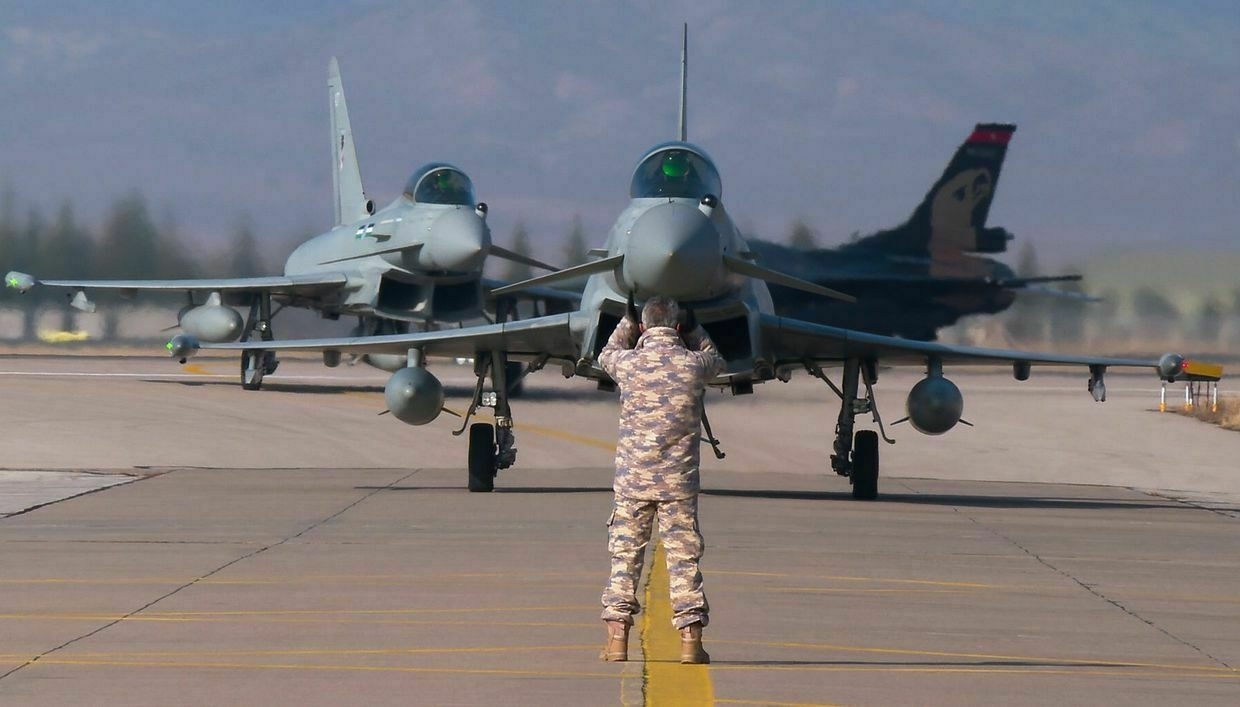
Ukraine won't interact with Russia during talks in Saudi Arabia on March 24, Foreign Ministry says
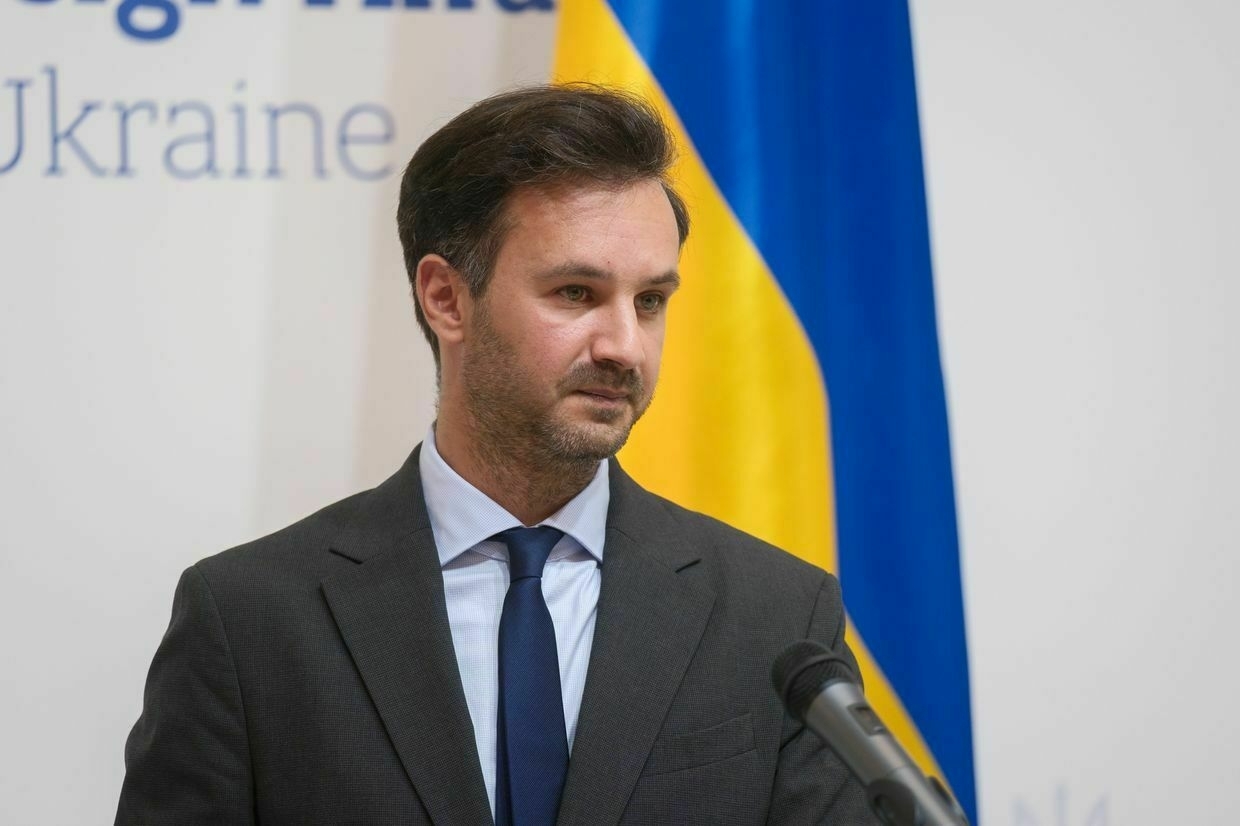
Ukrainian and Russian delegations will not interact directly during the March 24 talks in Saudi Arabia, Foreign Ministry spokesman Heorhii Tykhyi said on March 21 during a press briefing in Kyiv.
Tykhyi’s statement came as Special Envoy for Ukraine Keith Kellogg announced that the U.S. plans to hold indirect talks between Moscow and Kyiv in Saudi Arabia, with Russian and Ukrainian representatives present in separate rooms.
Ukraine does not know what format the U.S. will use to negotiate with Russia in Riyadh, Tykhyi said.
“This is their choice. But we are preparing for the talks in Saudi Arabia as bilateral Ukrainian-American ones,” the spokesperson said.
Ukraine is preparing for a technical but not a political round of negotiations with the U.S., according to Tykhyi.
“There will be a meeting of professional people from the Ukrainian and American sides who can figure out all the details of how (a ceasefire) should look. We need to understand how it will work, who will control it, how it will be monitored,” he said.
Tykhyi added that Foreign Minister Andriy Sybiha will not participate in the next round of talks.
The upcoming Russia-U.S. consultations in Riyadh will include Russian officials Grigory Karasin, chairman of the Federation Council Committee on International Affairs, and Sergei Beseda, an adviser to the director of Russia’s Federal Security Service (FSB).
The Ukrainian representatives have not yet been officially announced.
Ukrainian and U.S. delegations last met in Saudi Arabia on March 11, where Ukraine agreed to a U.S. proposal for a complete ceasefire. Russia did not agree to a complete ceasefire, and Russian missile and drone attacks against Ukraine have continued.
Trump wants a ceasefire between Ukraine and Russia – which side would gain more?U.S. President Donald Trump held a phone call with his Russian counterpart Vladimir Putin on March 18 to discuss a U.S.-backed ceasefire proposal. Putin claimed Russia would pause attacks on Ukraine’s energy infrastructure for 30 days, but did not commit to a broader ceasefire. Russia has declinedThe Kyiv IndependentOleg Sukhov
